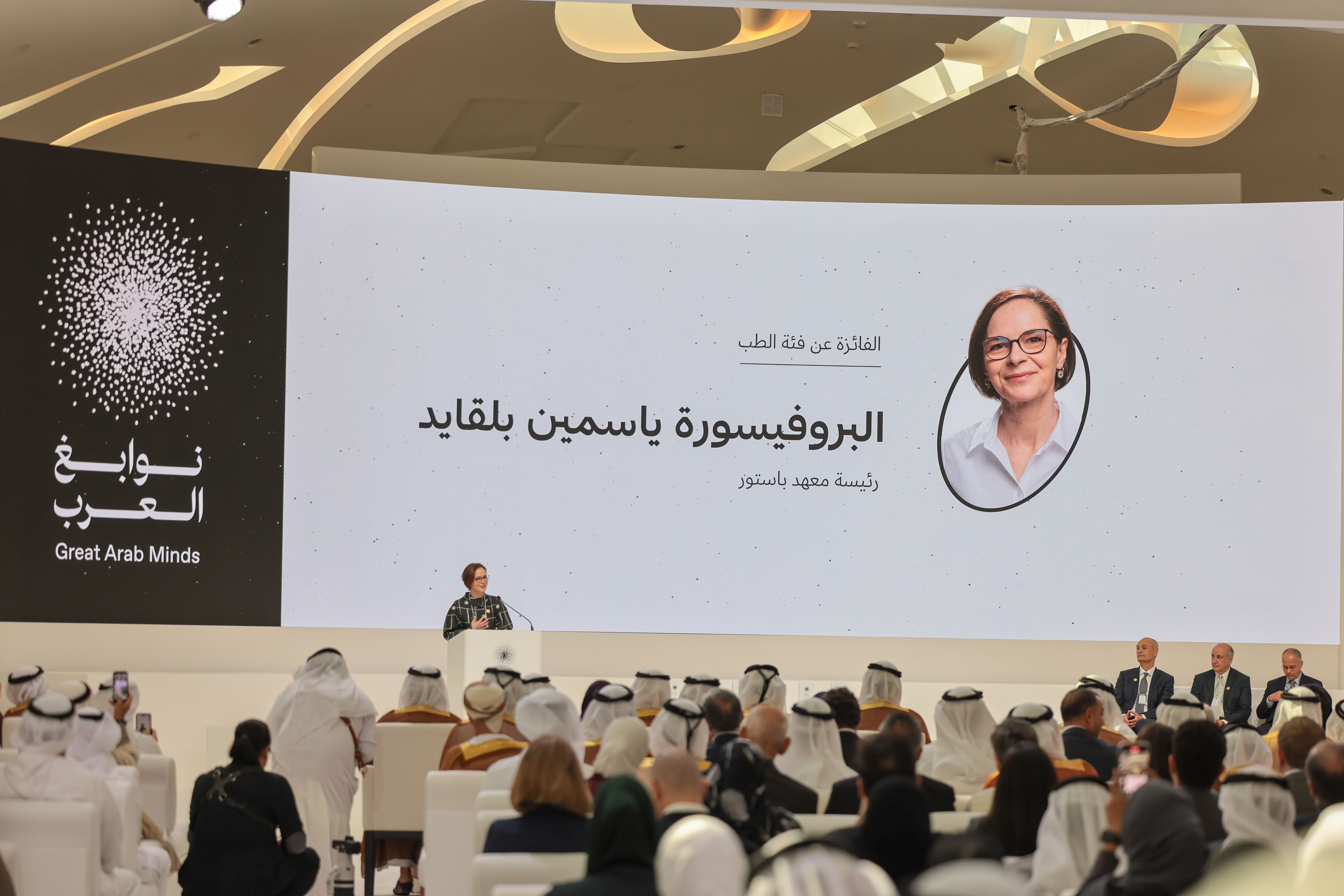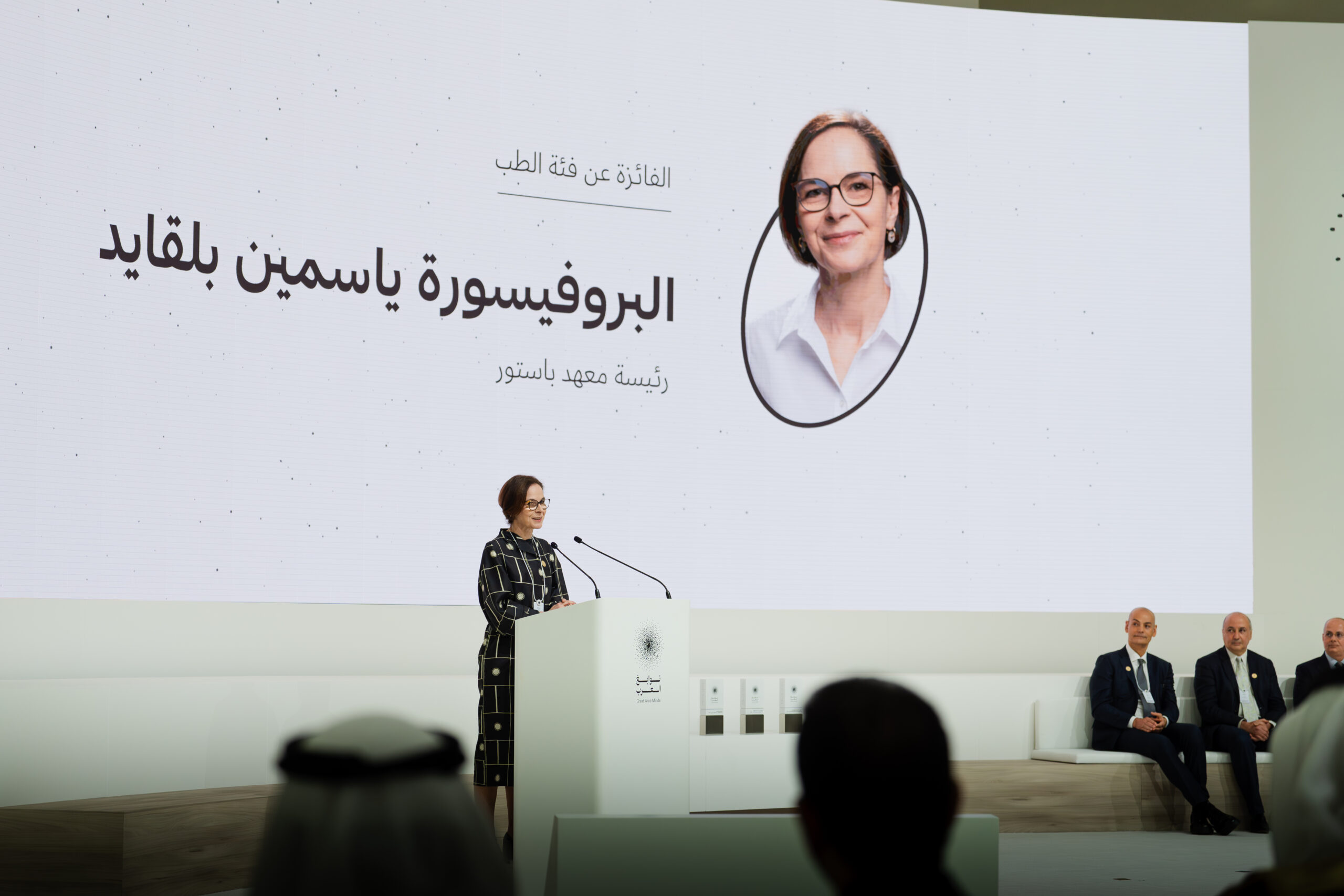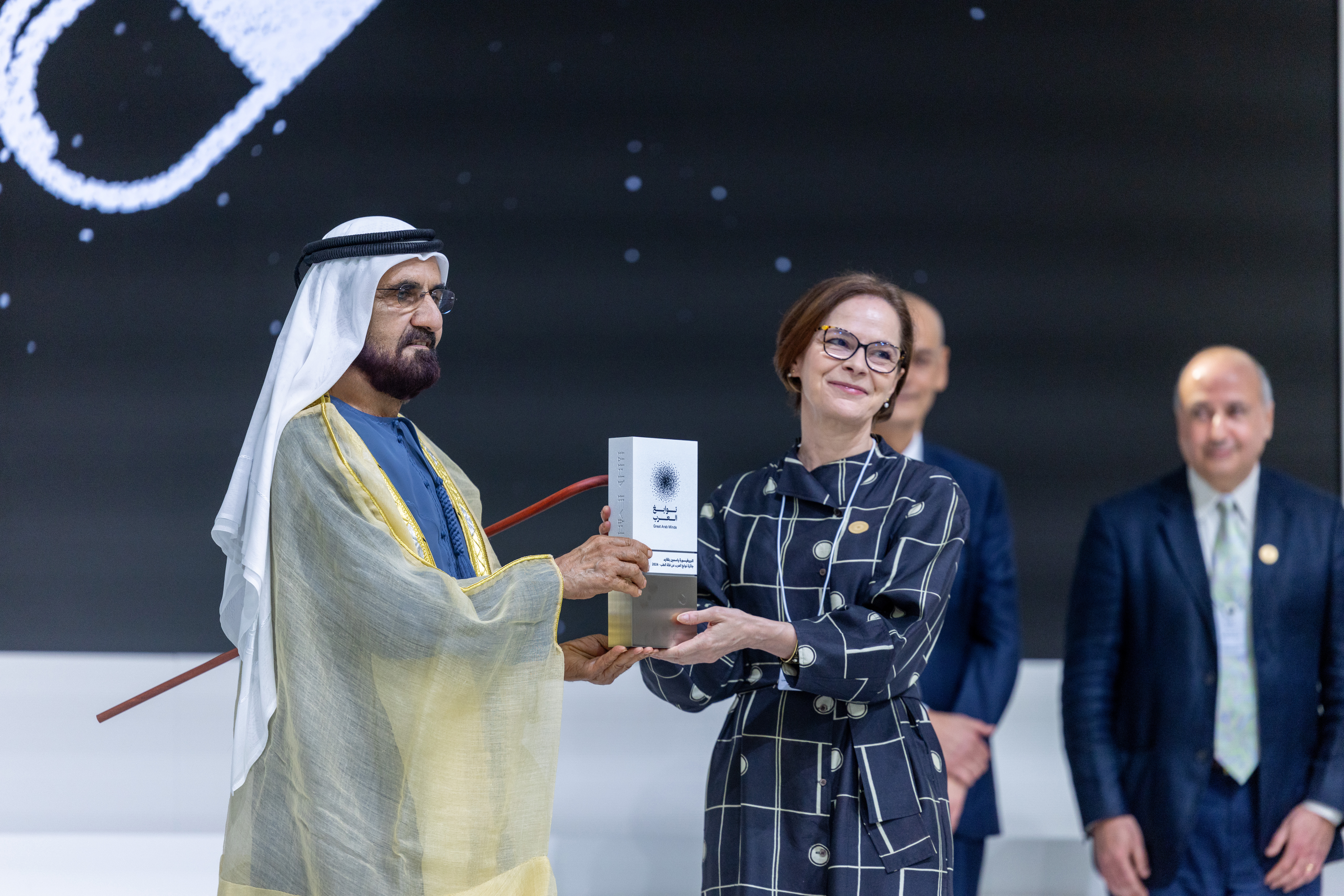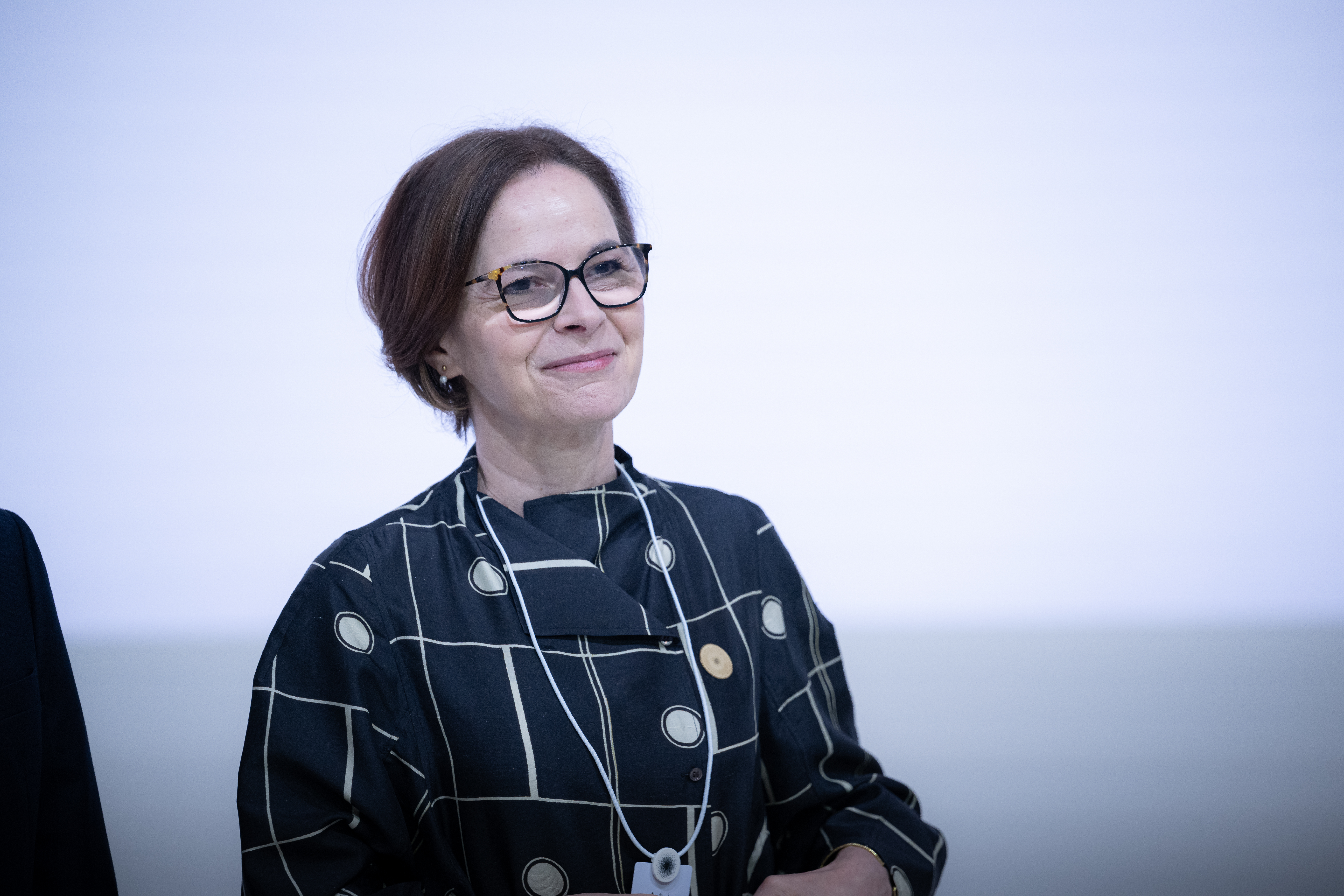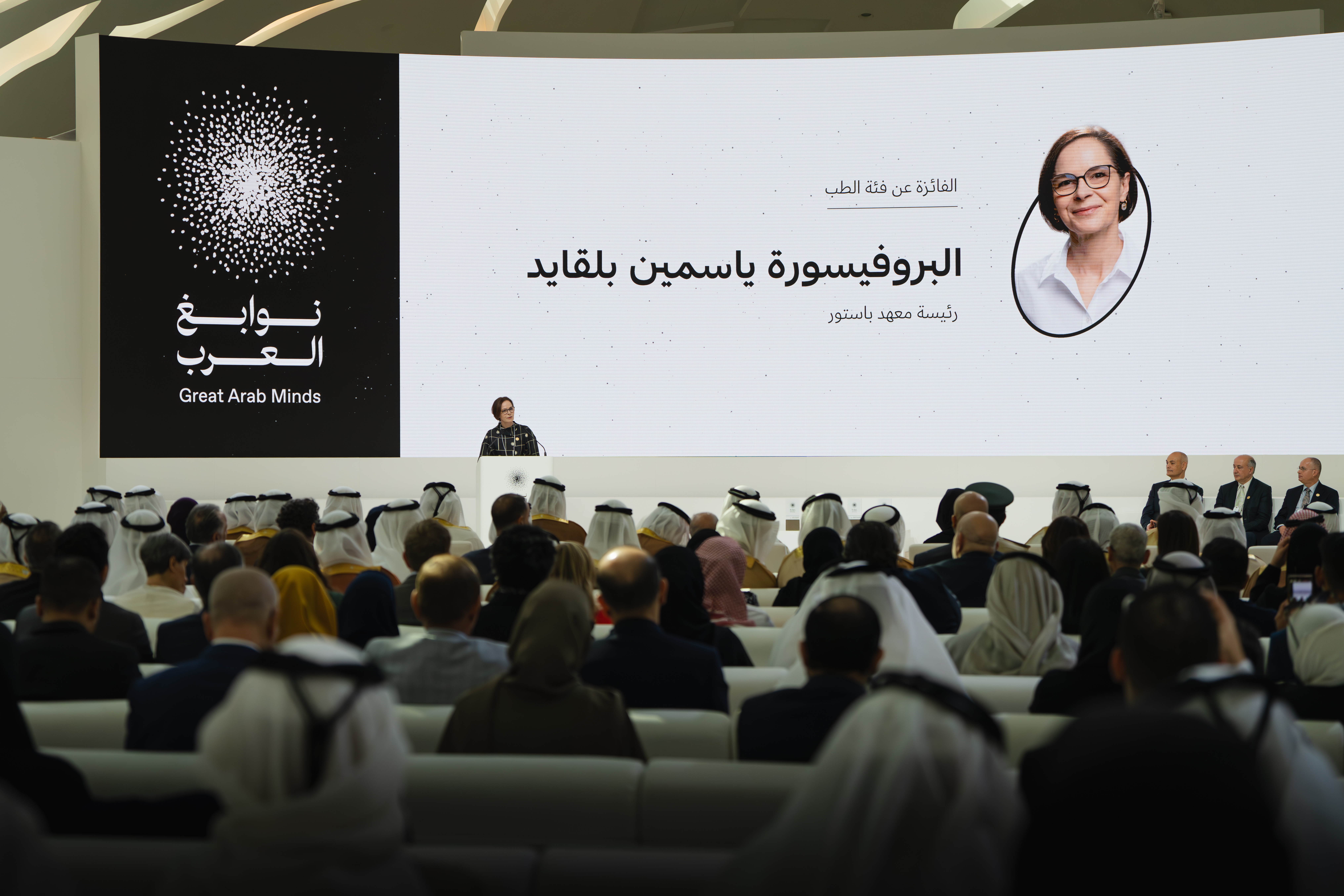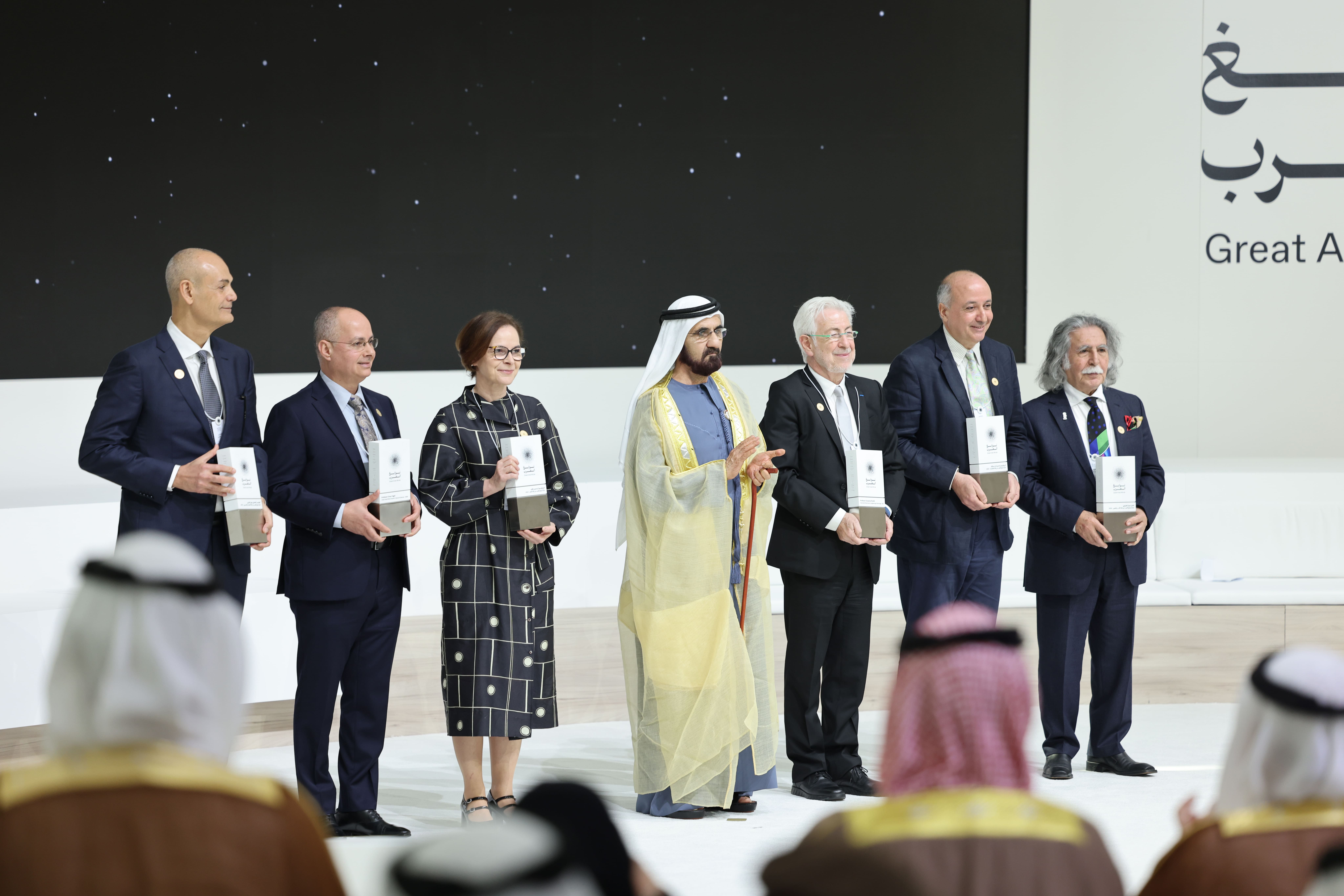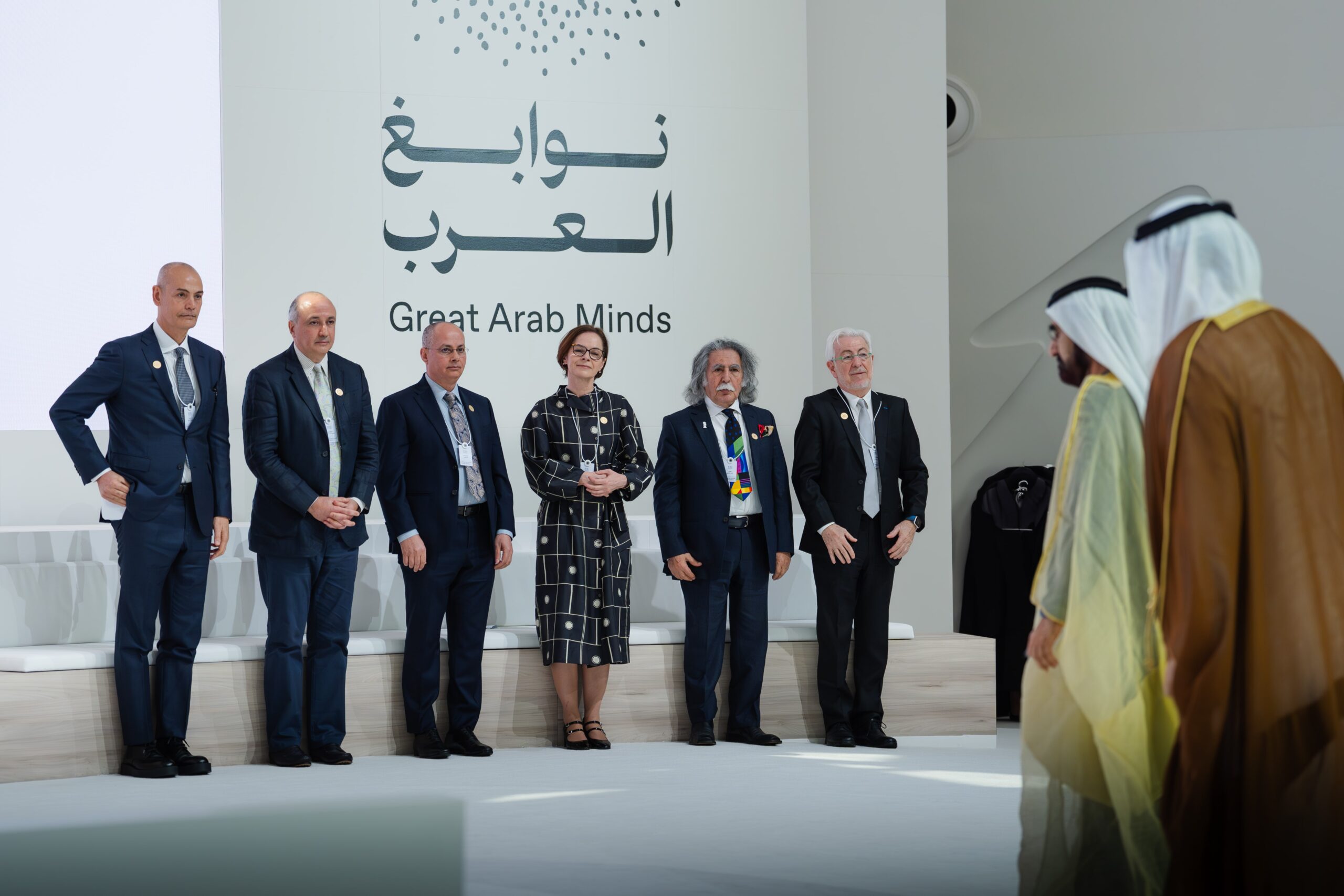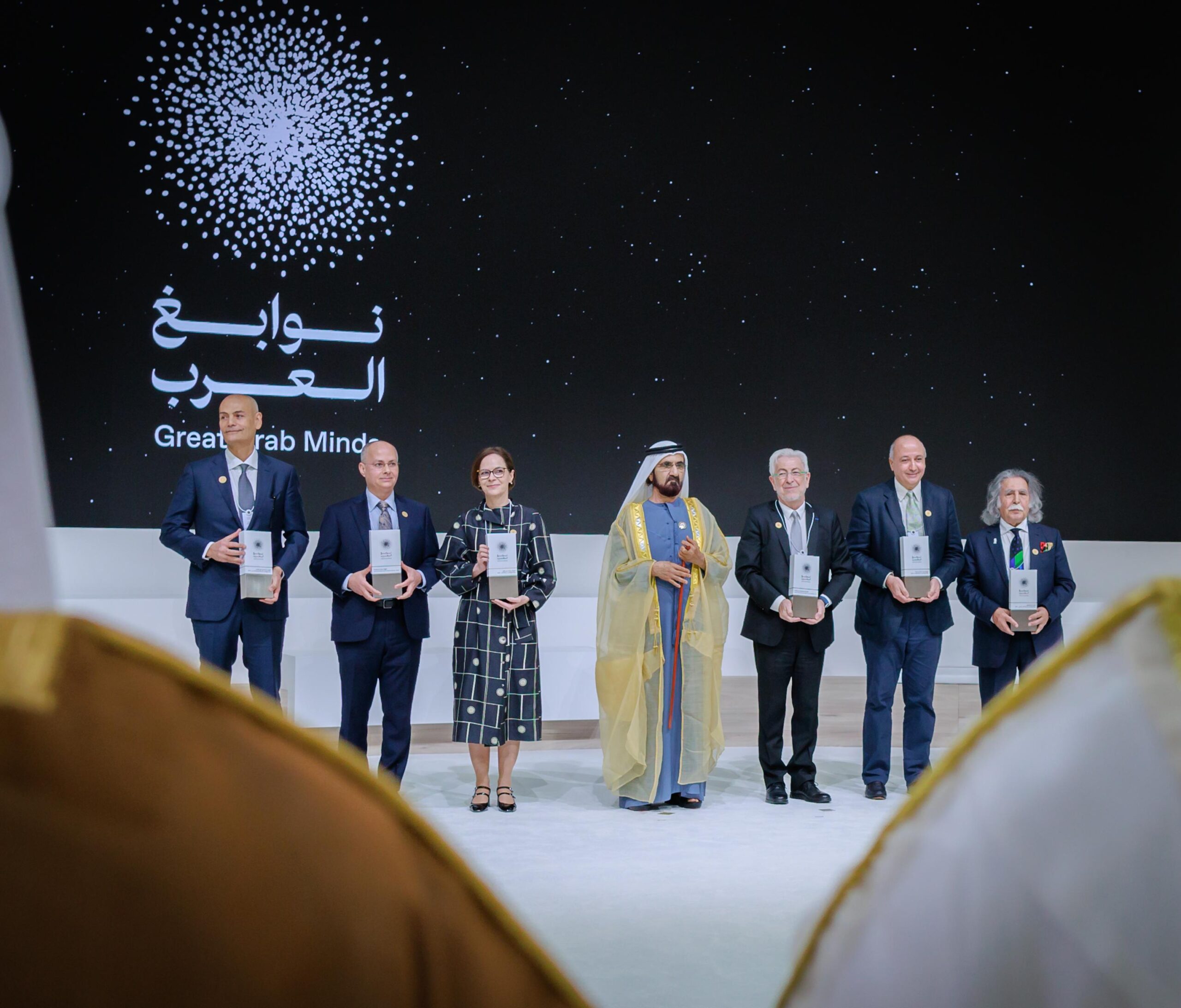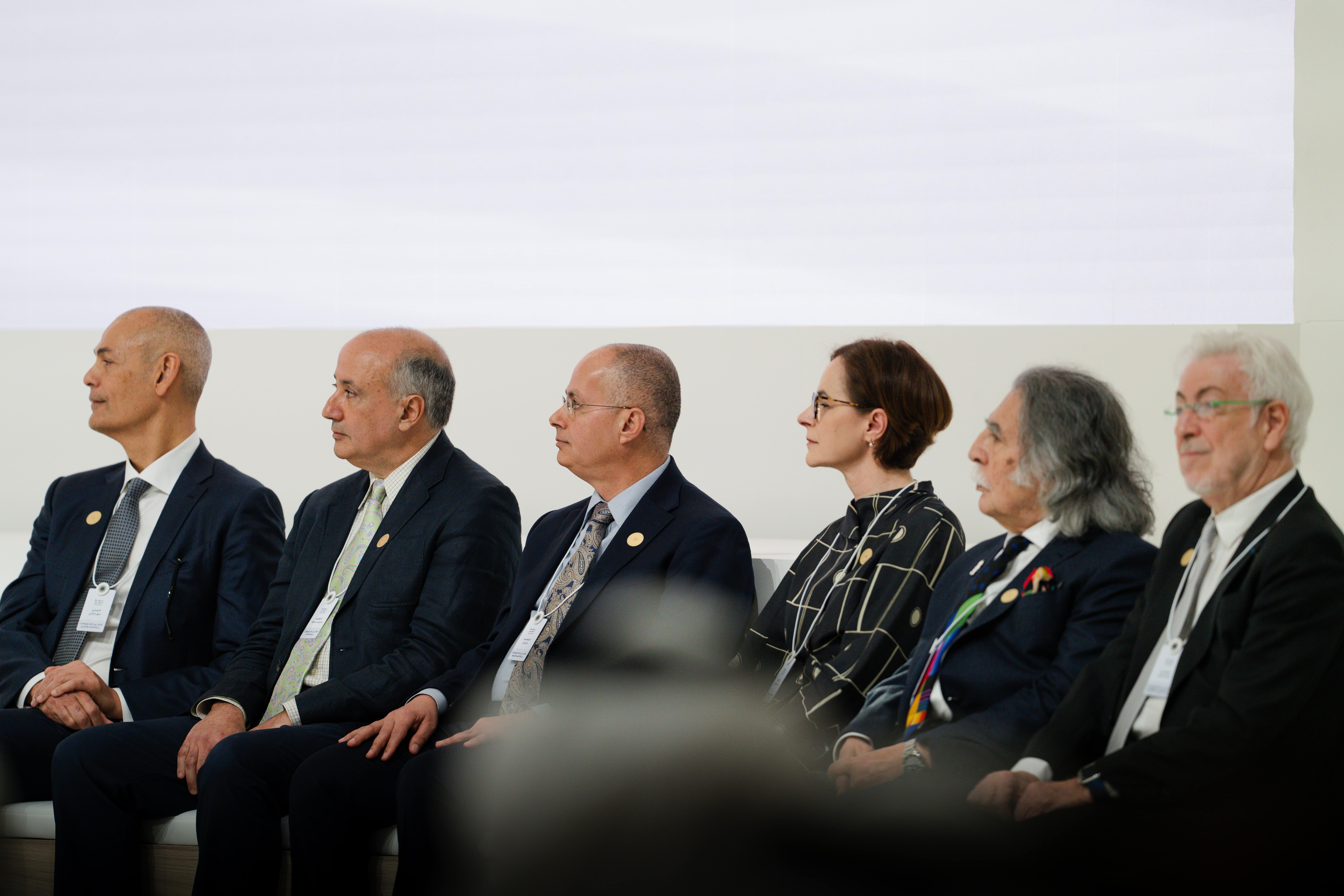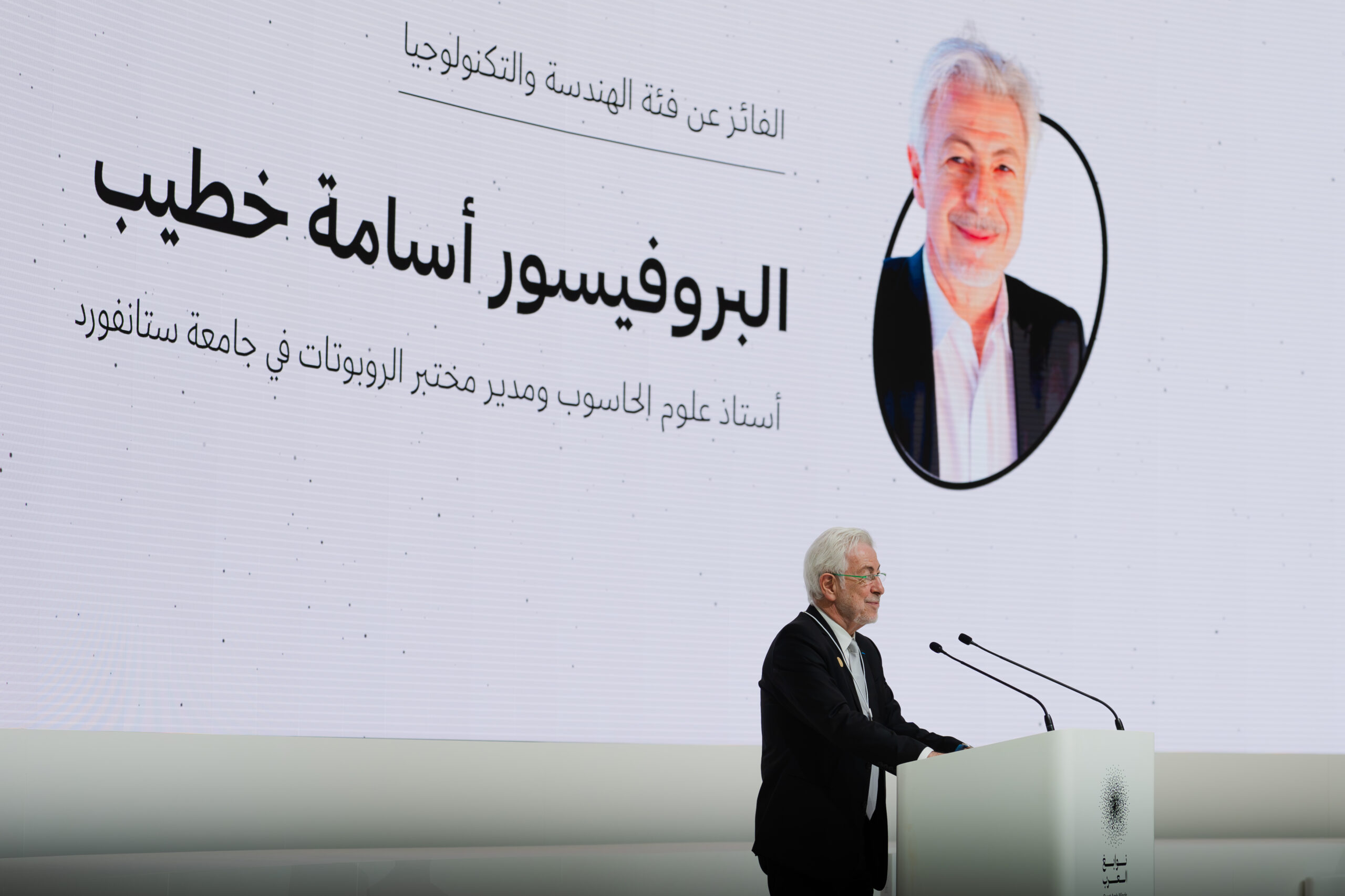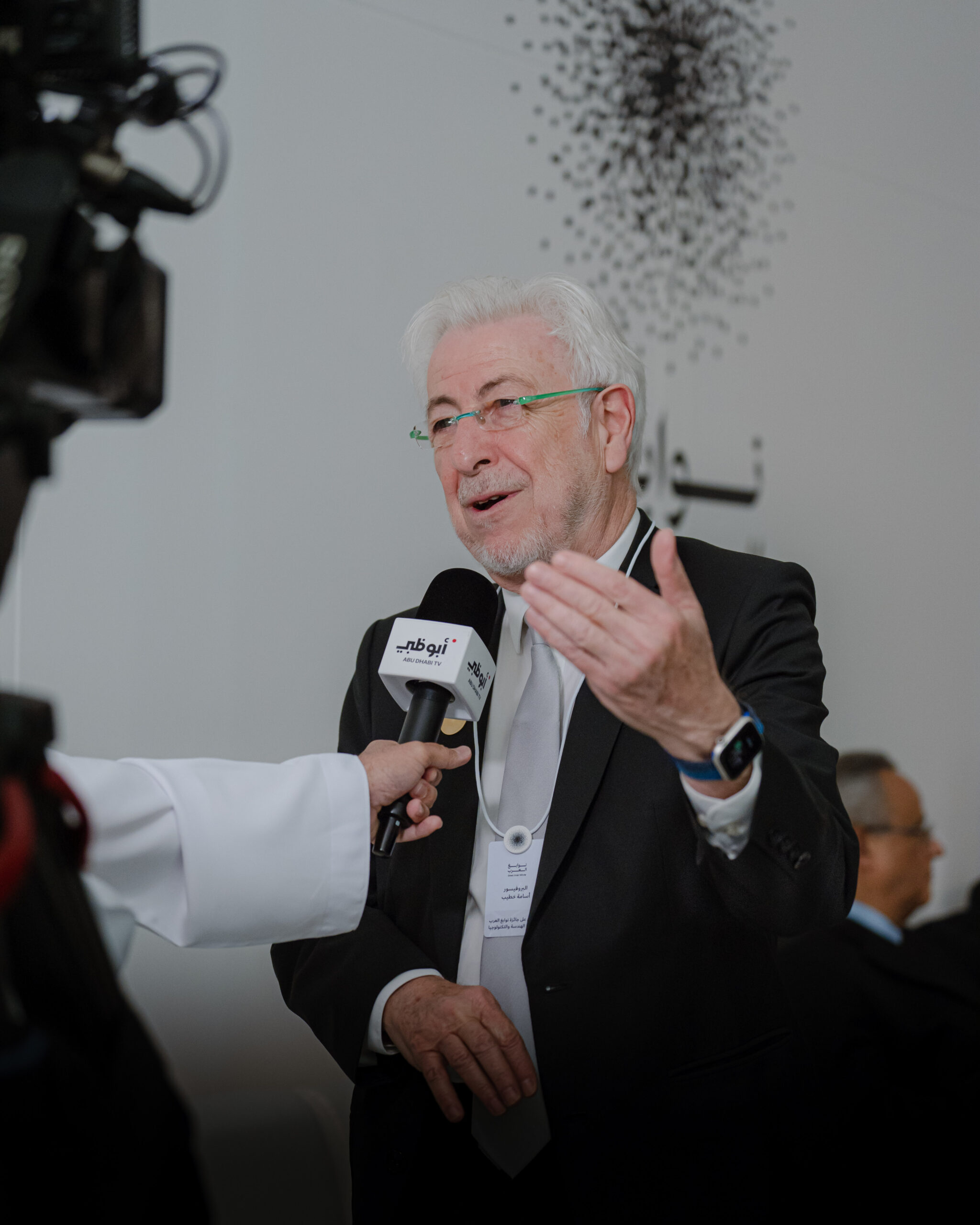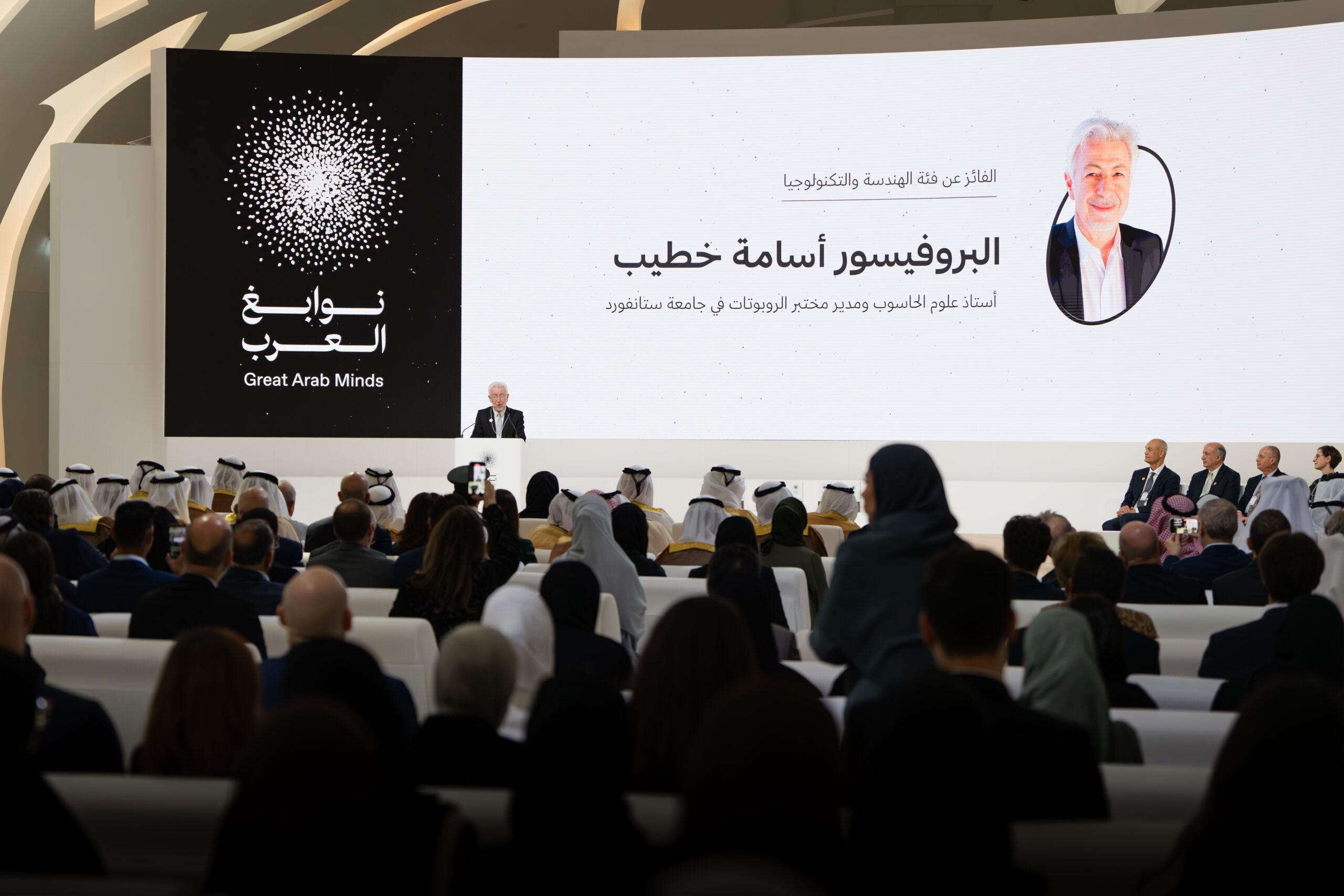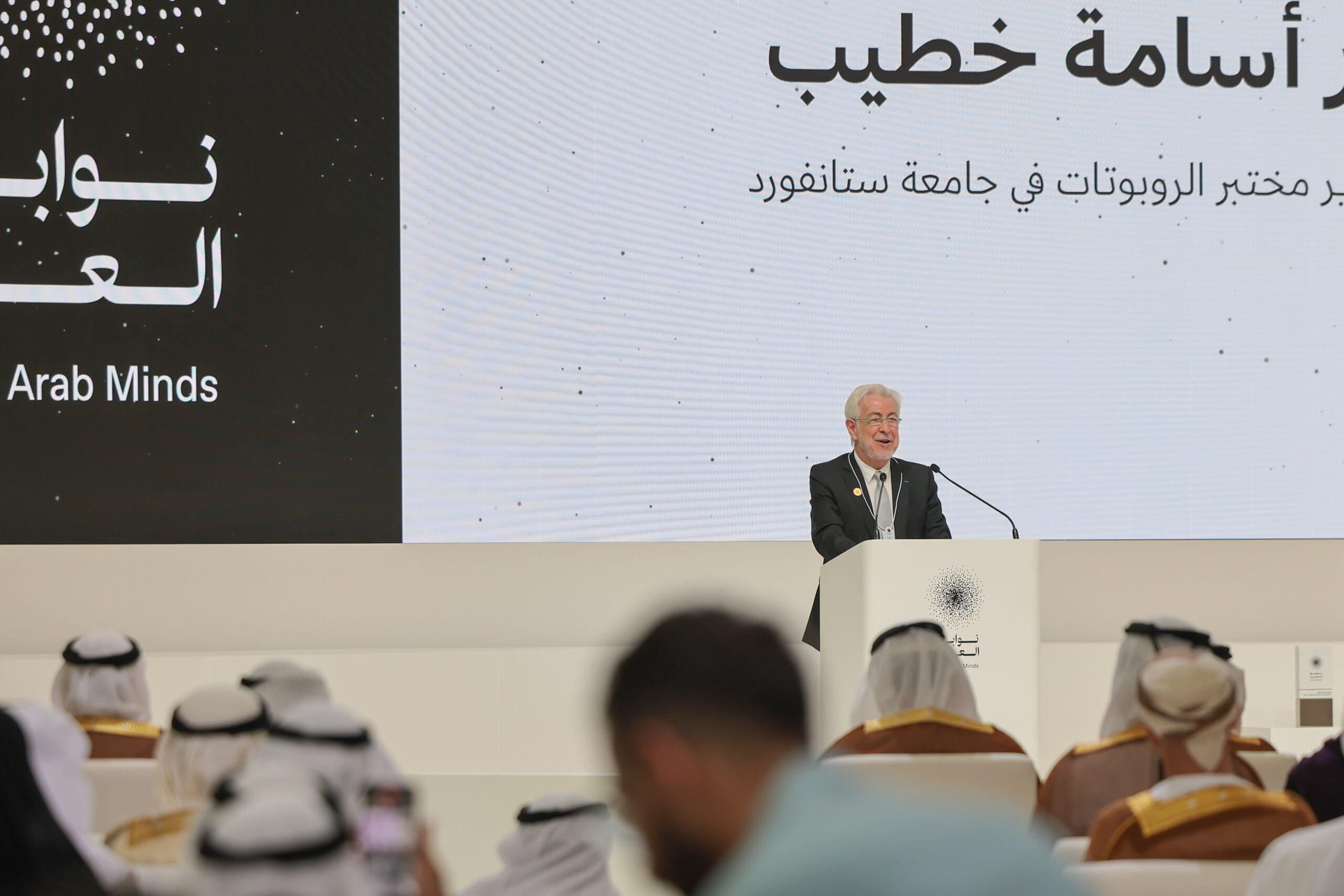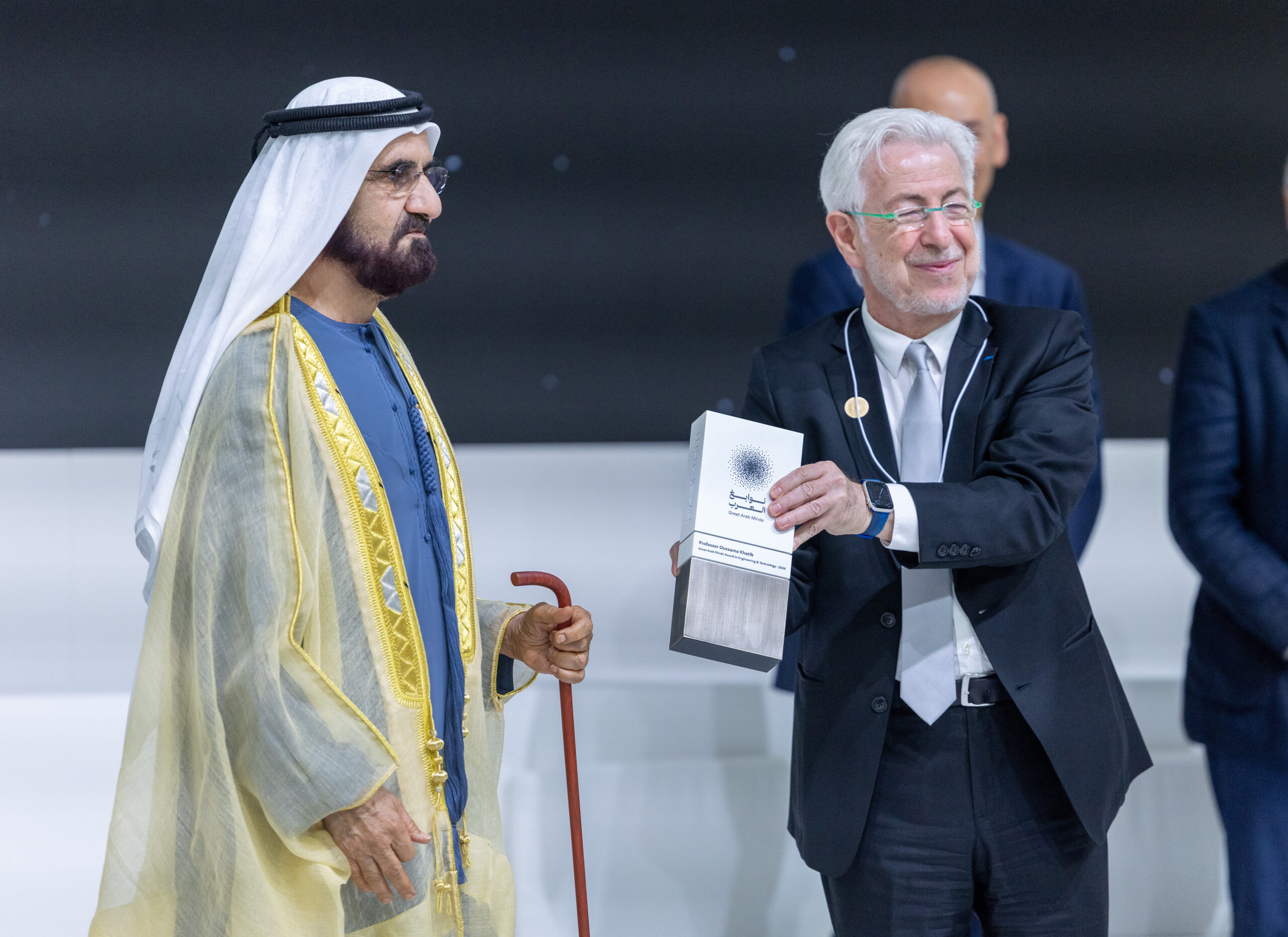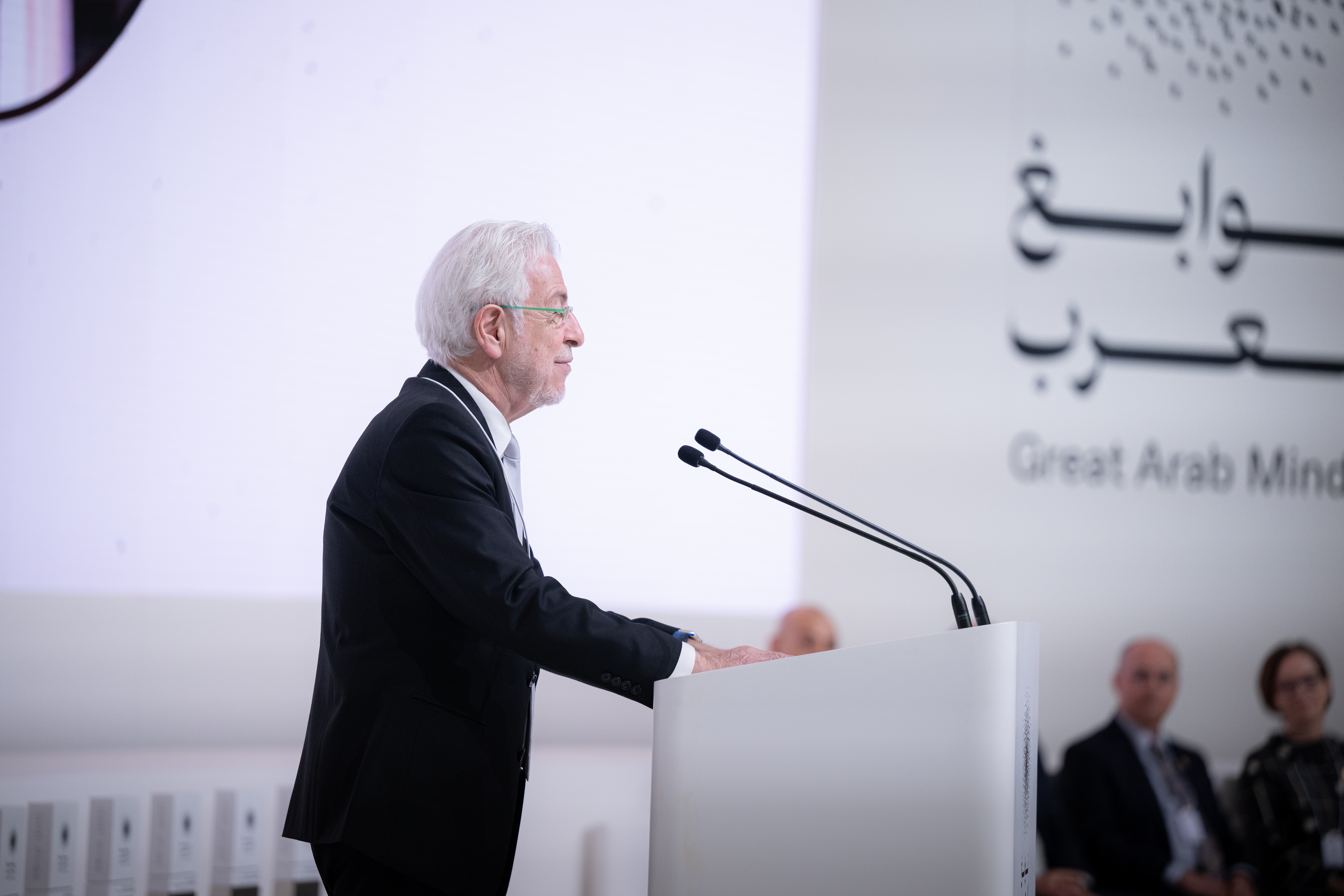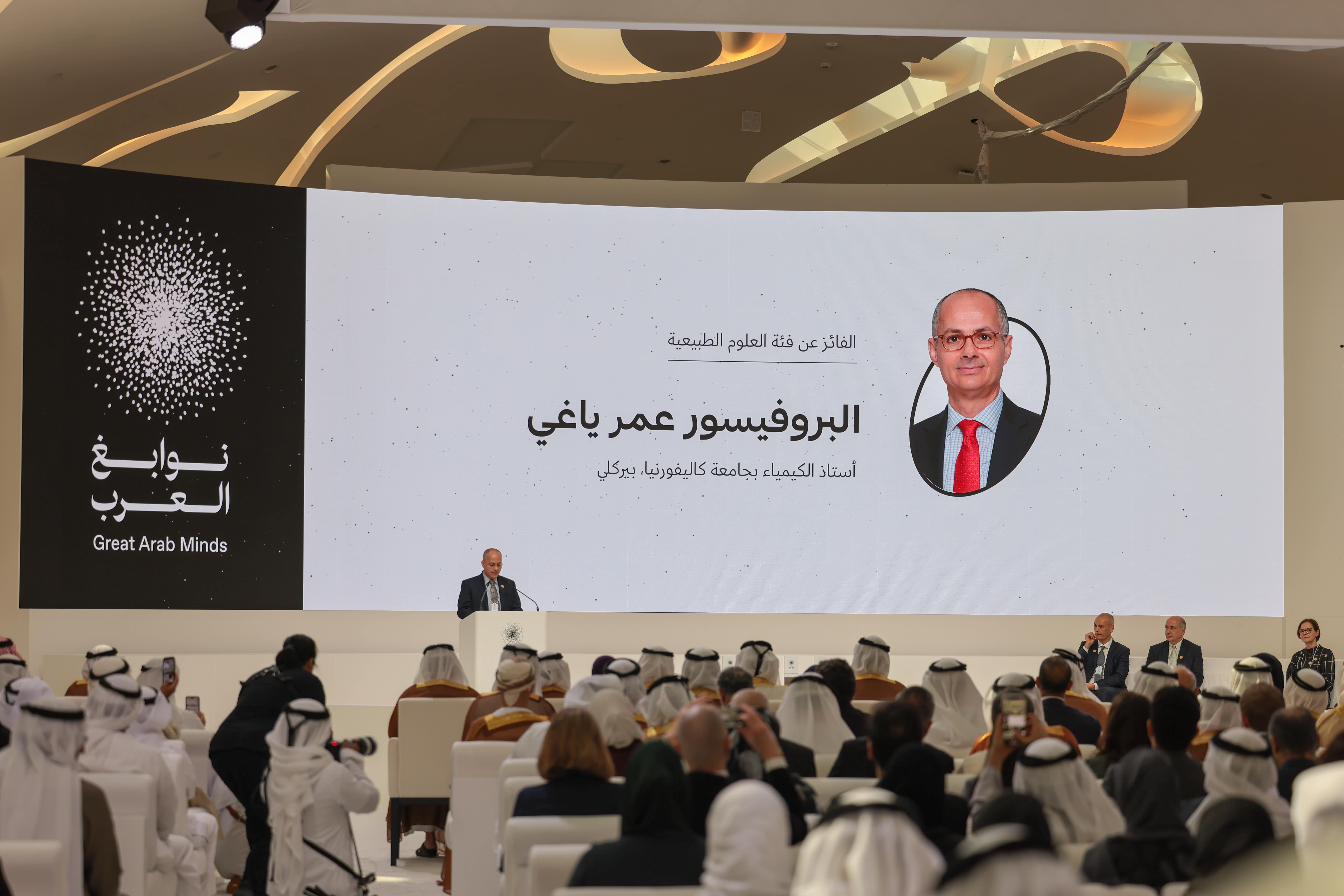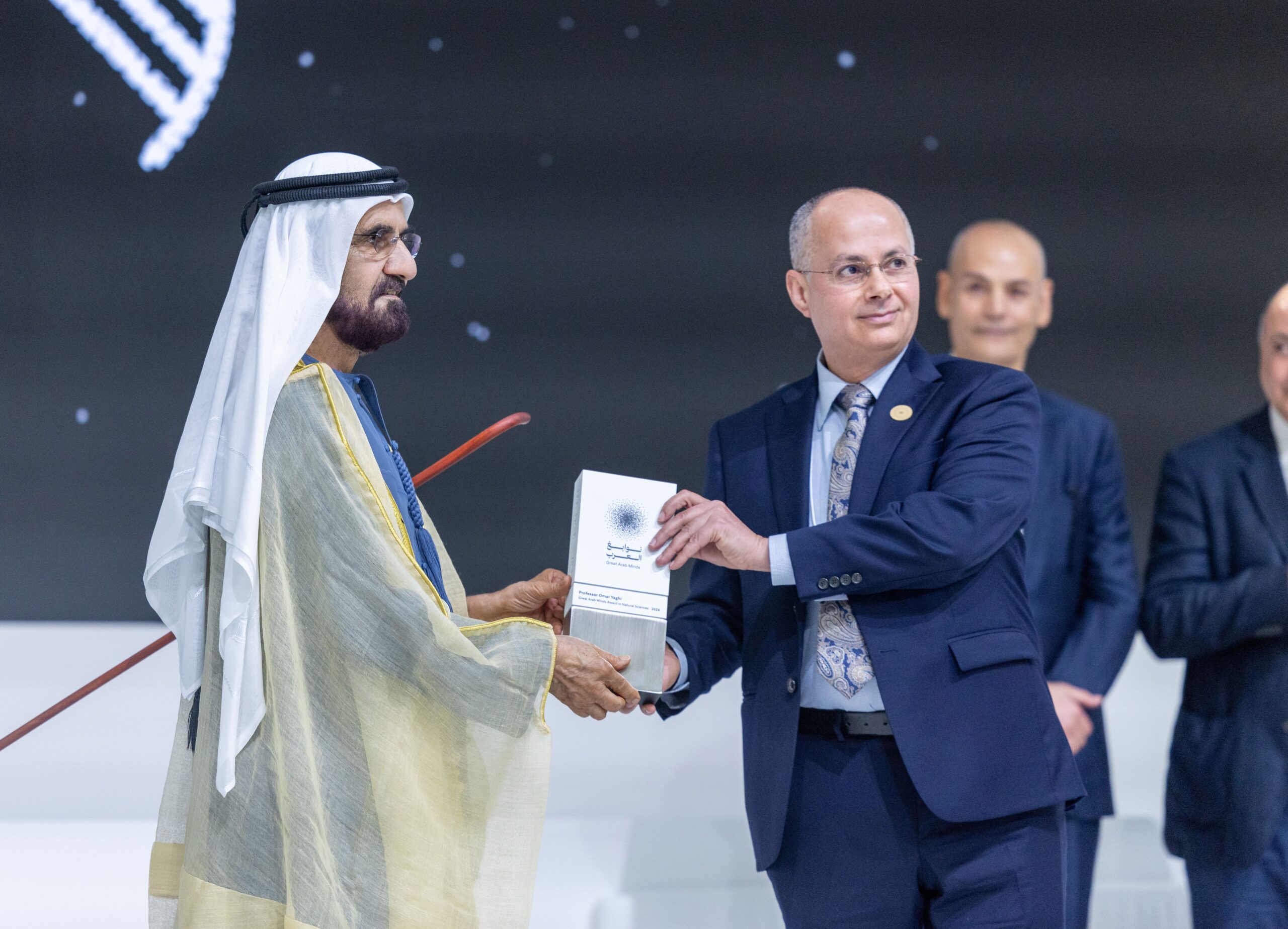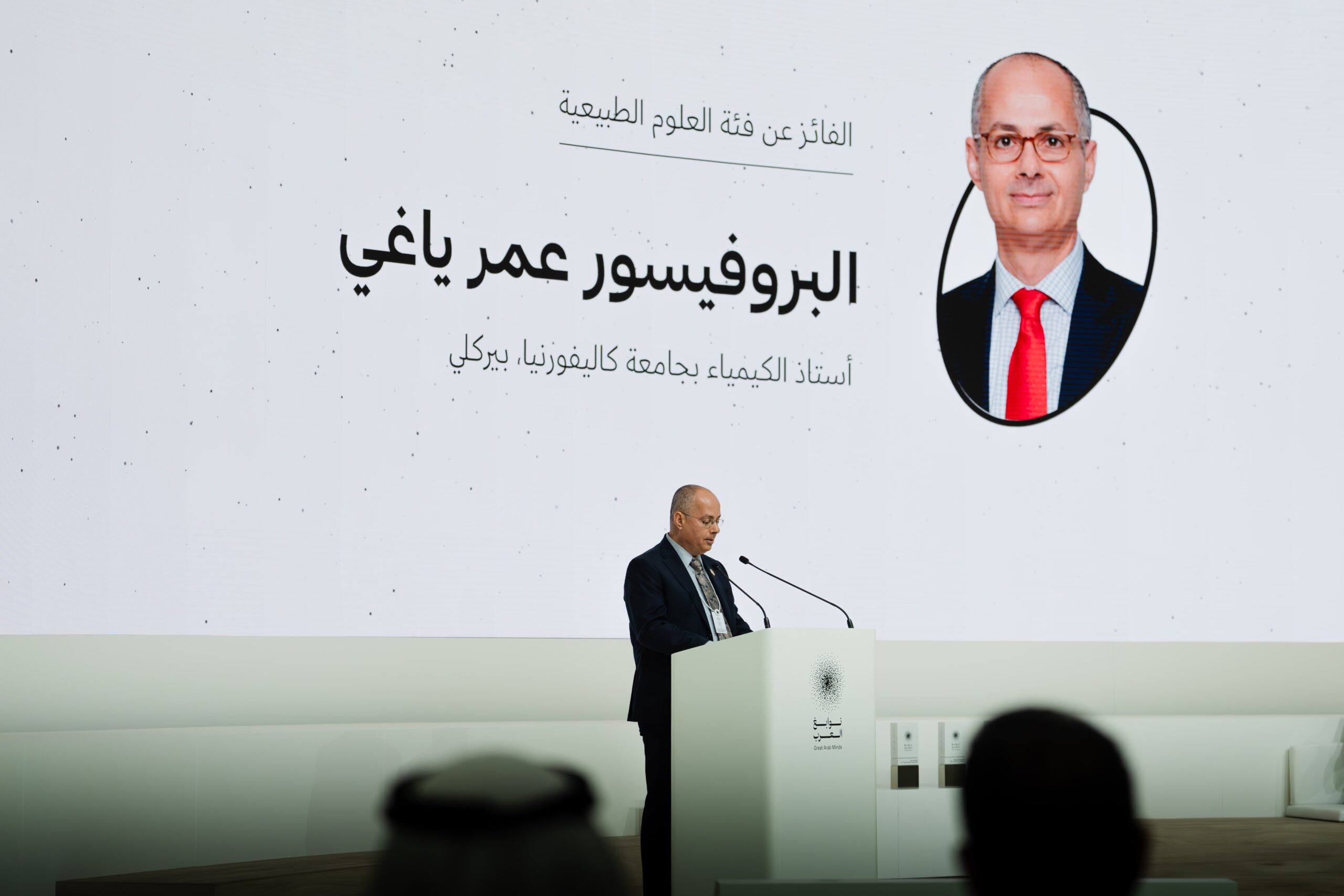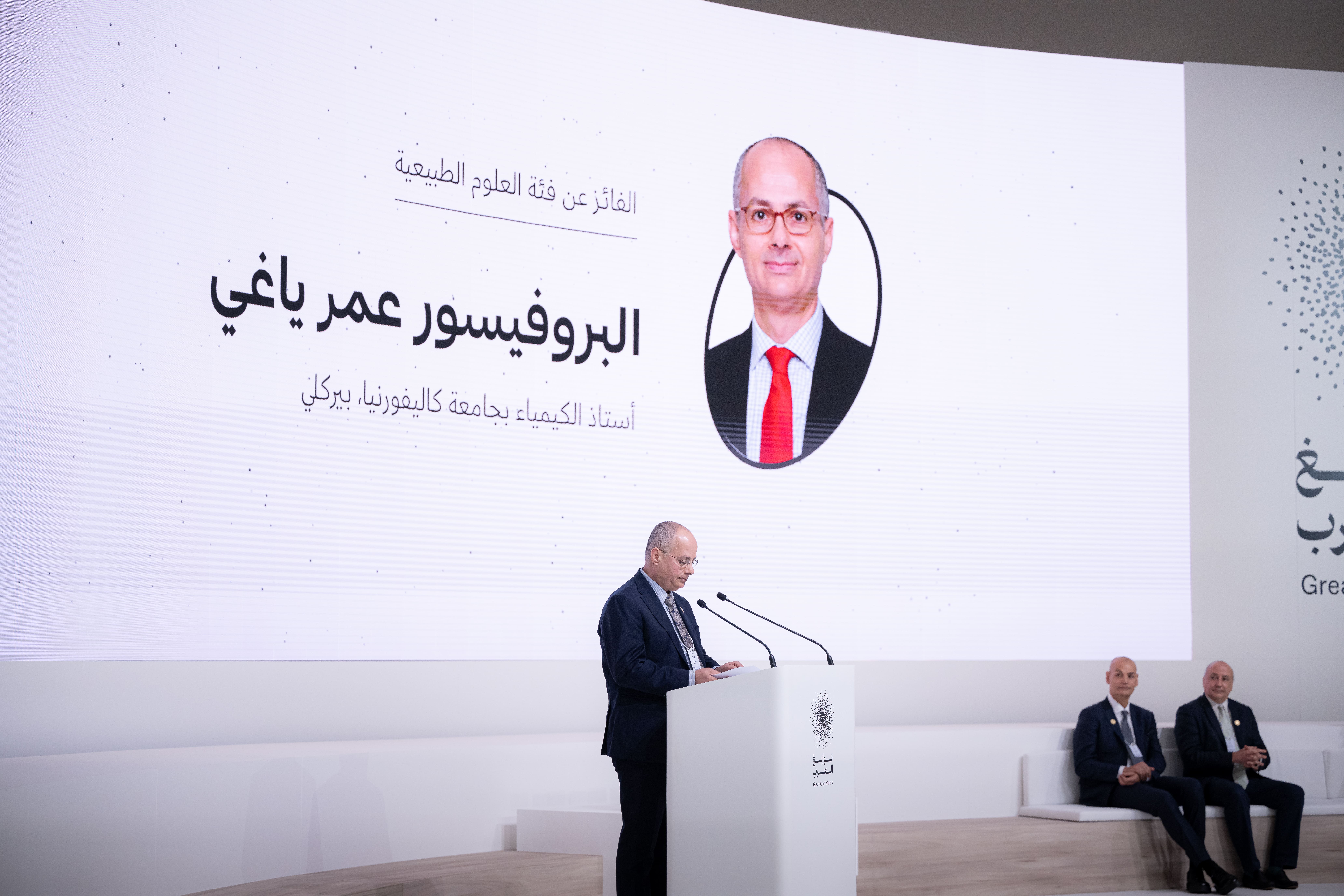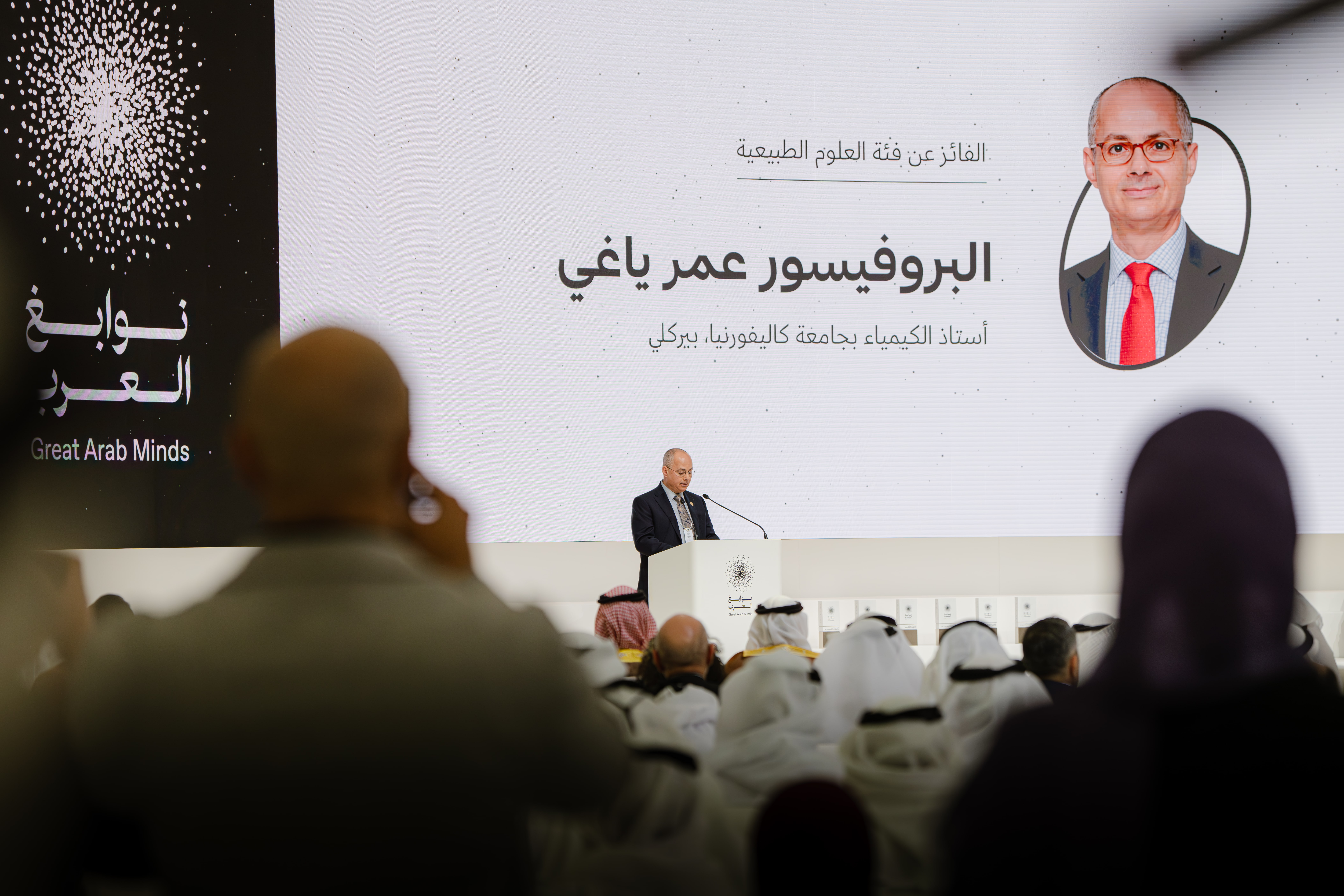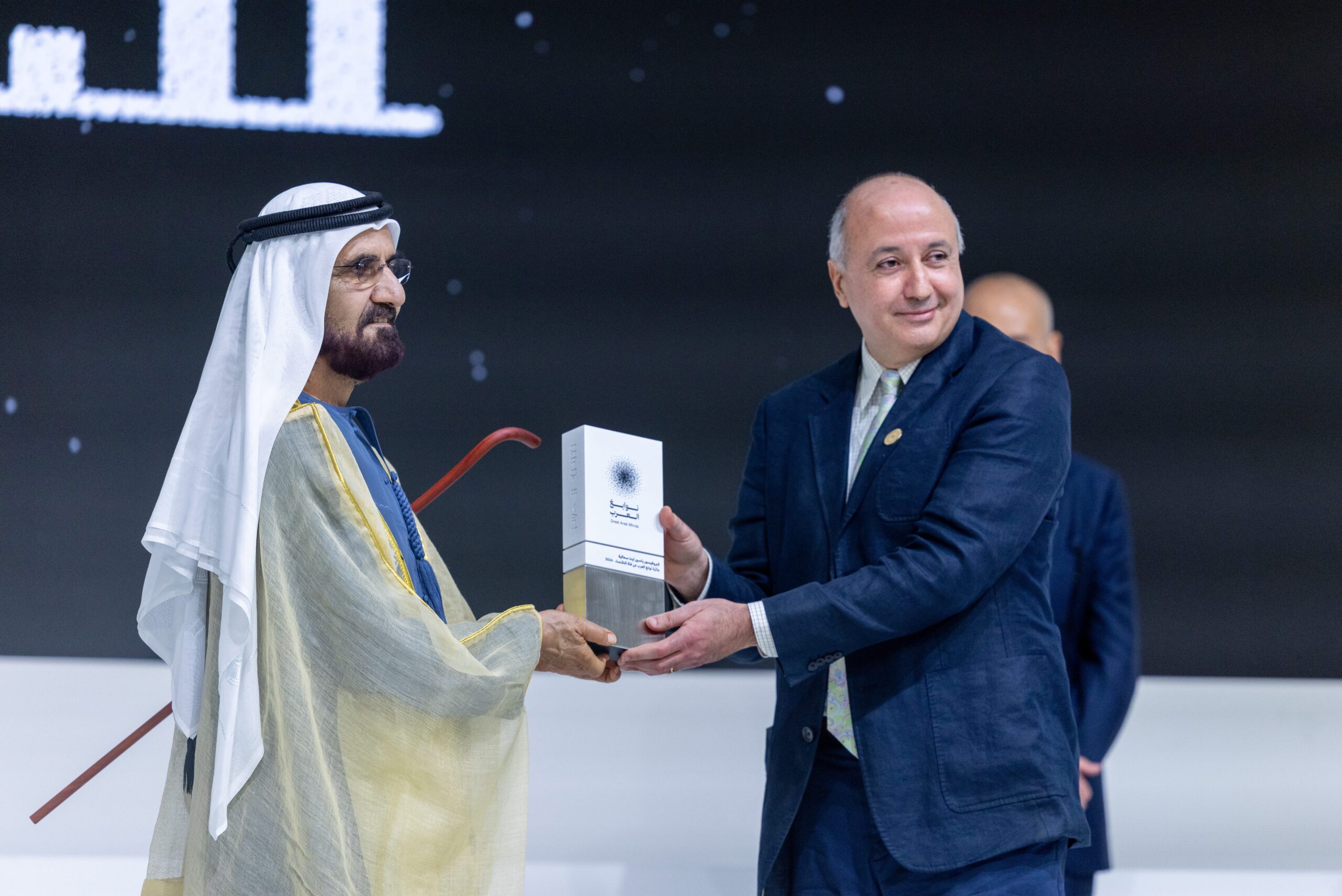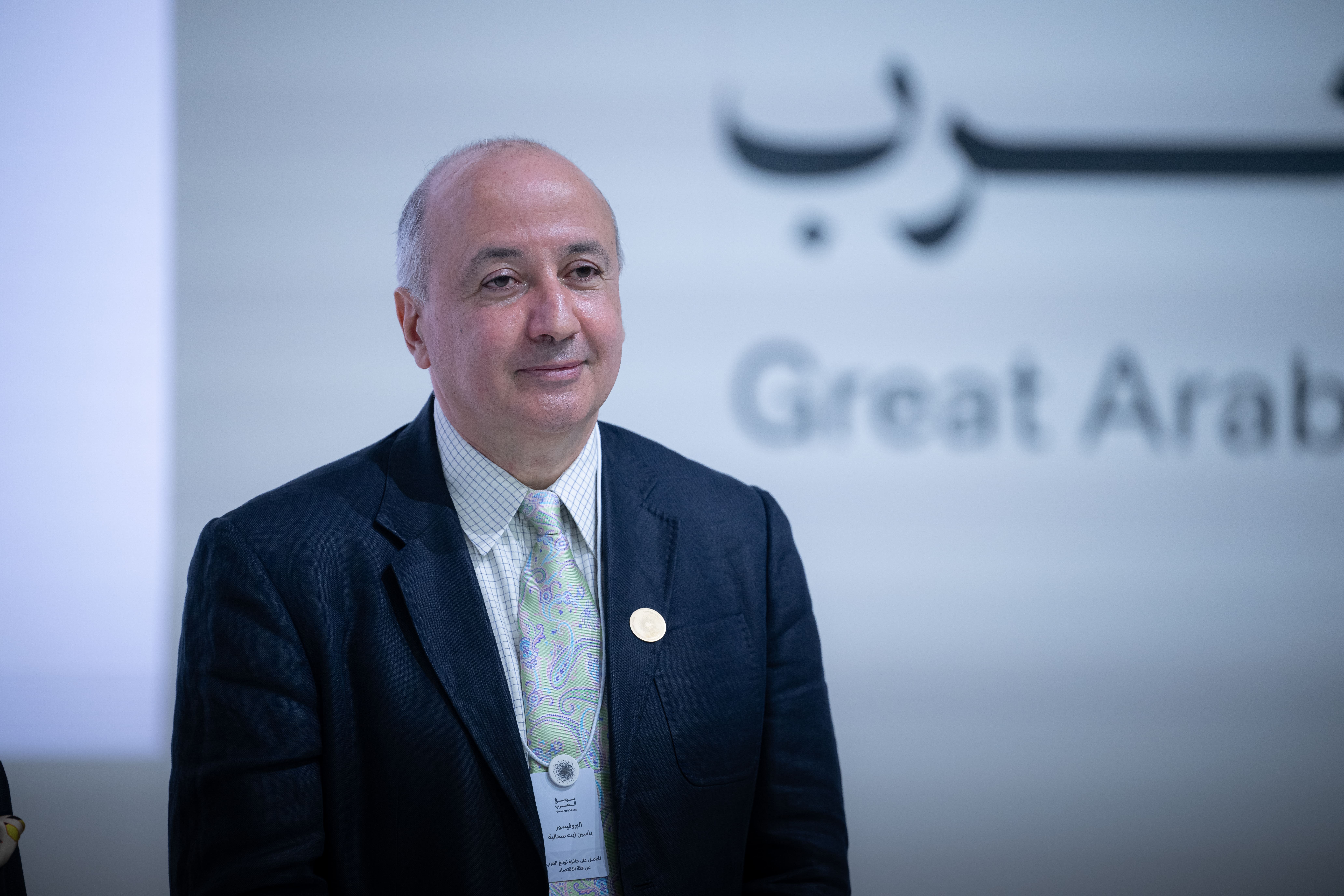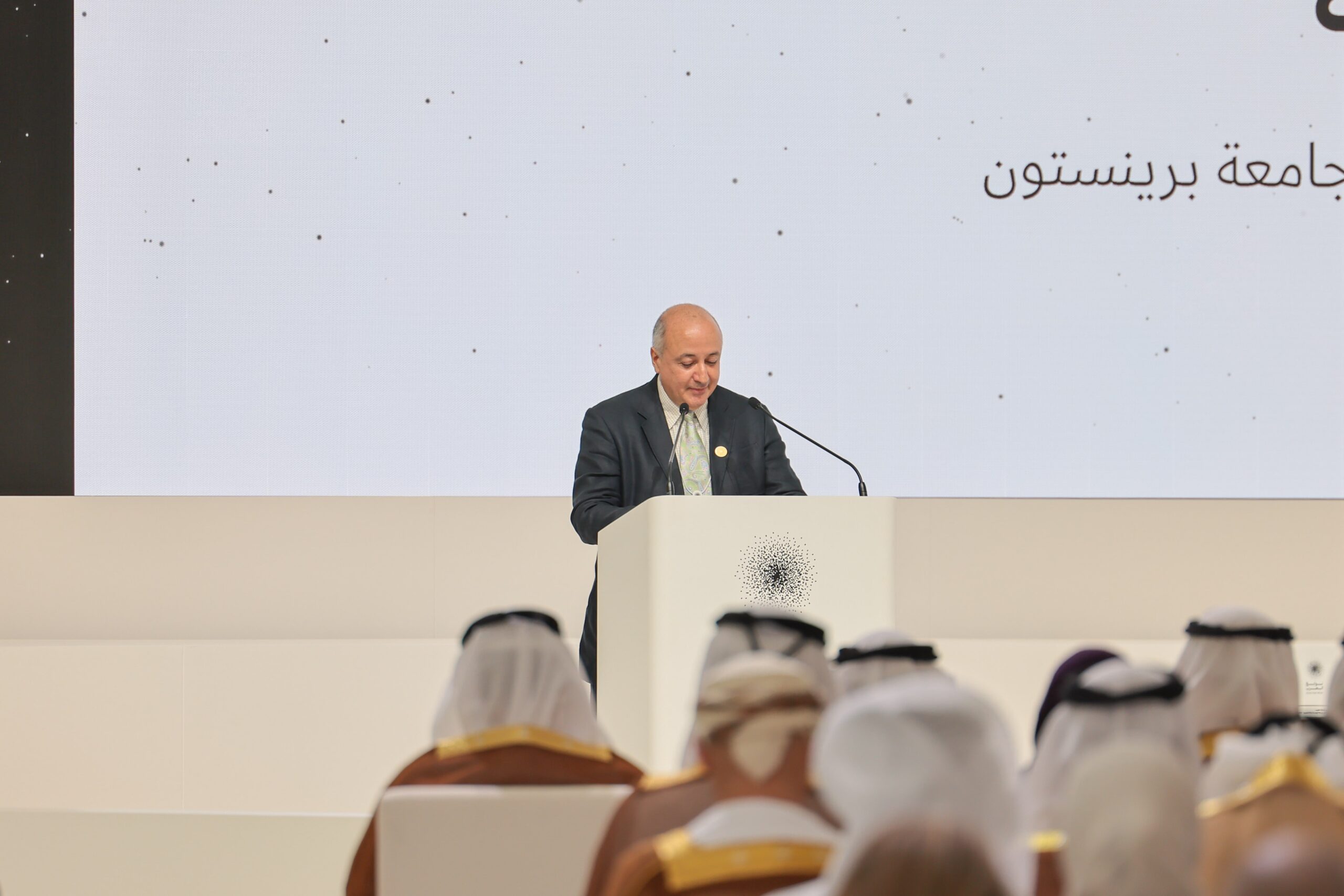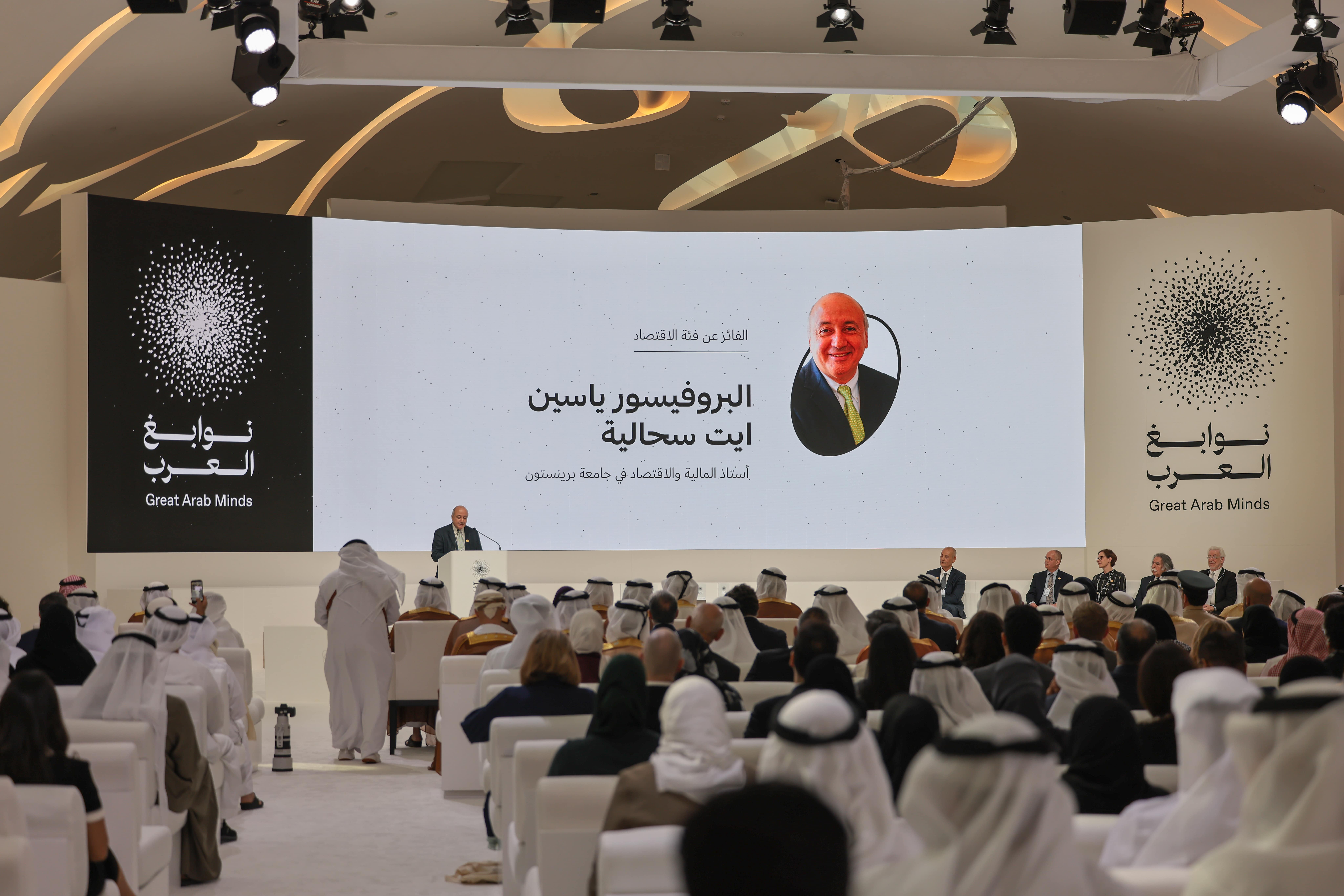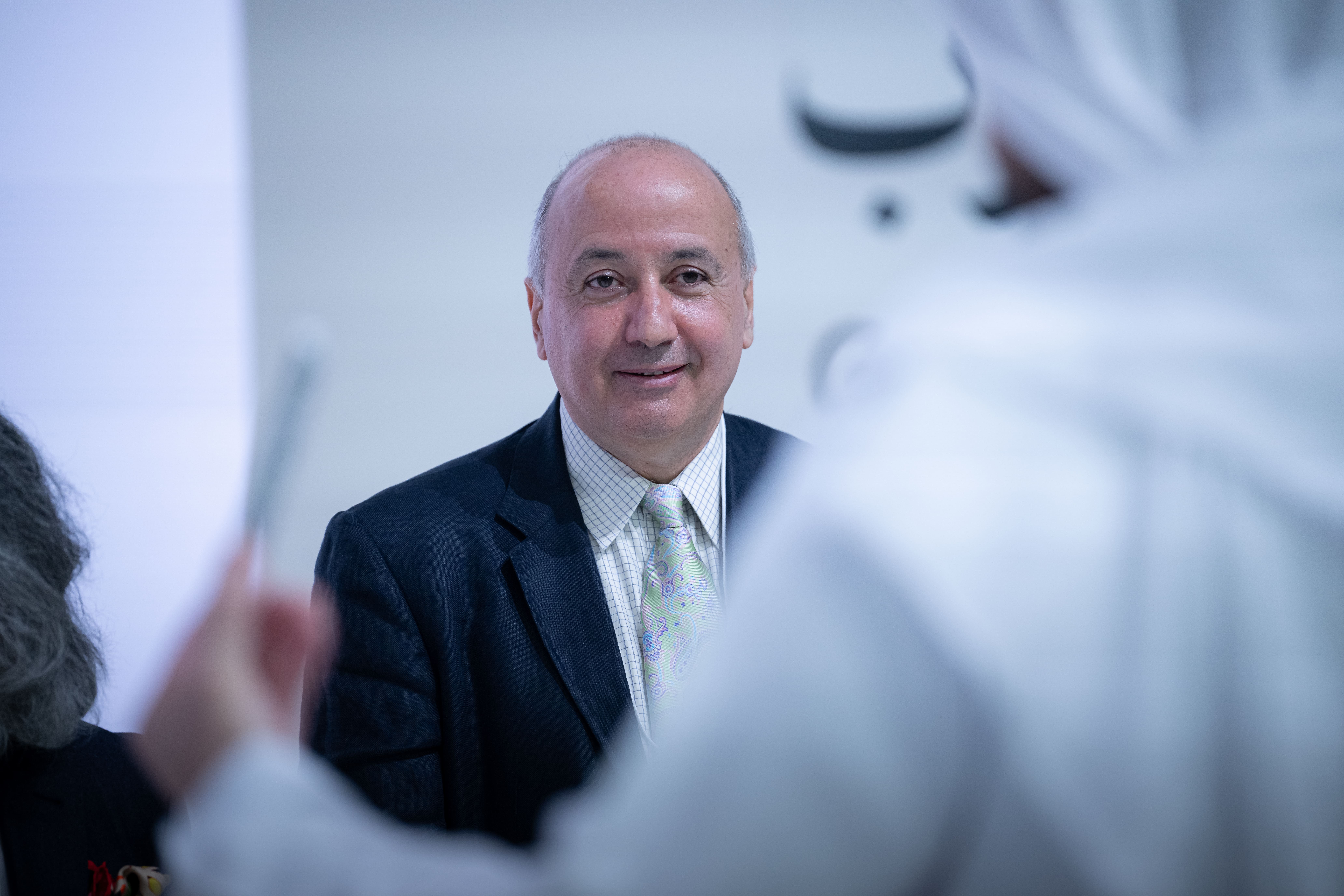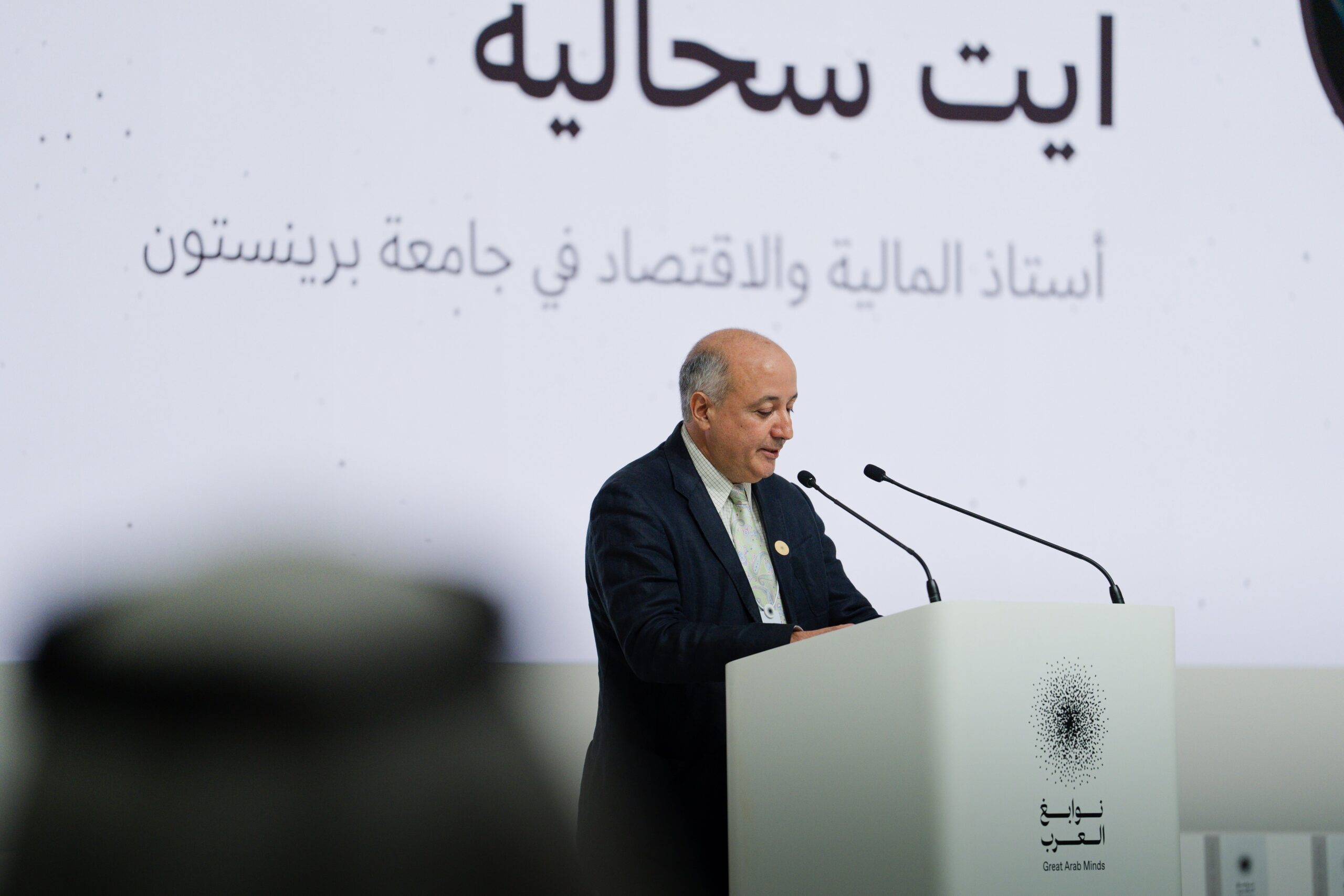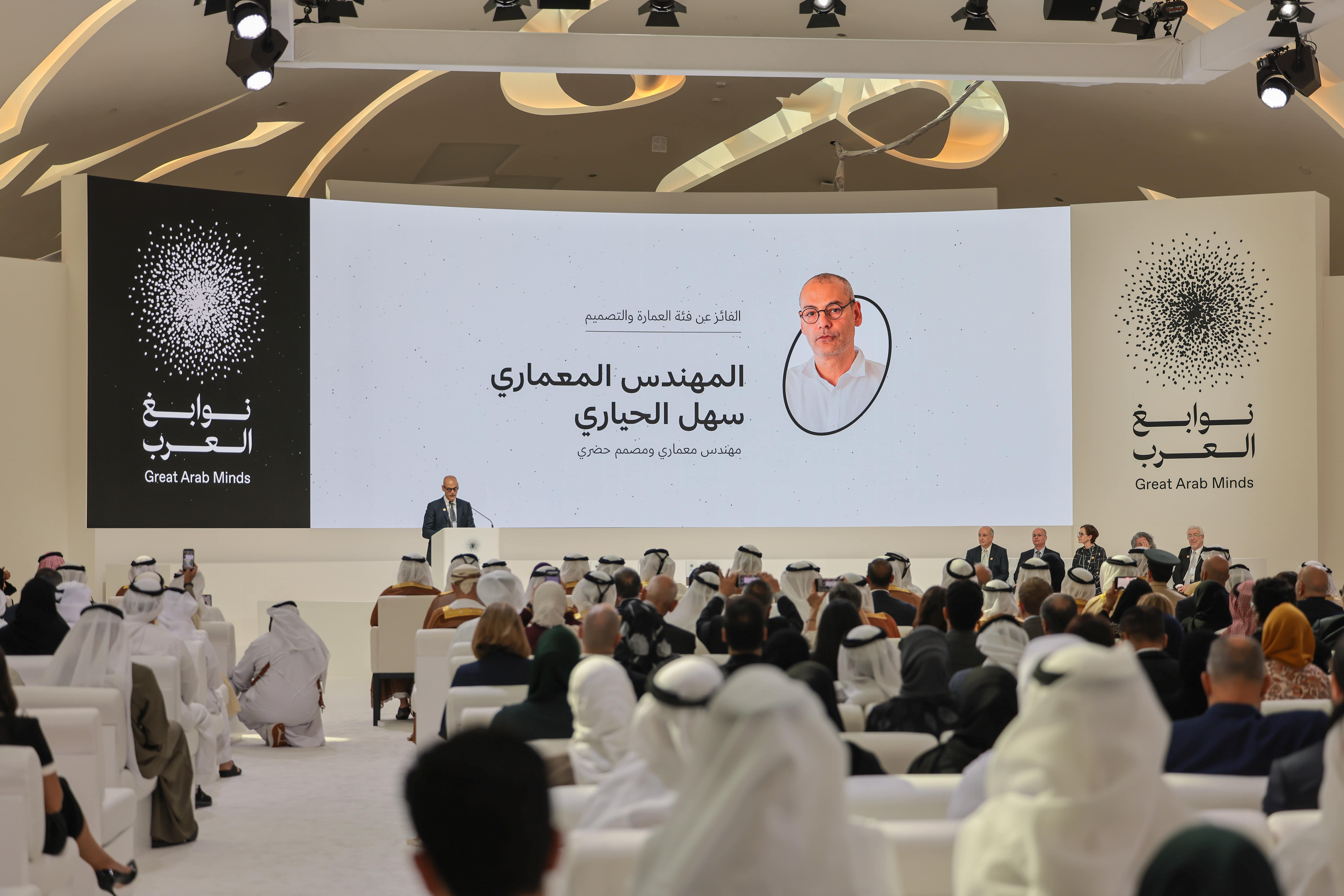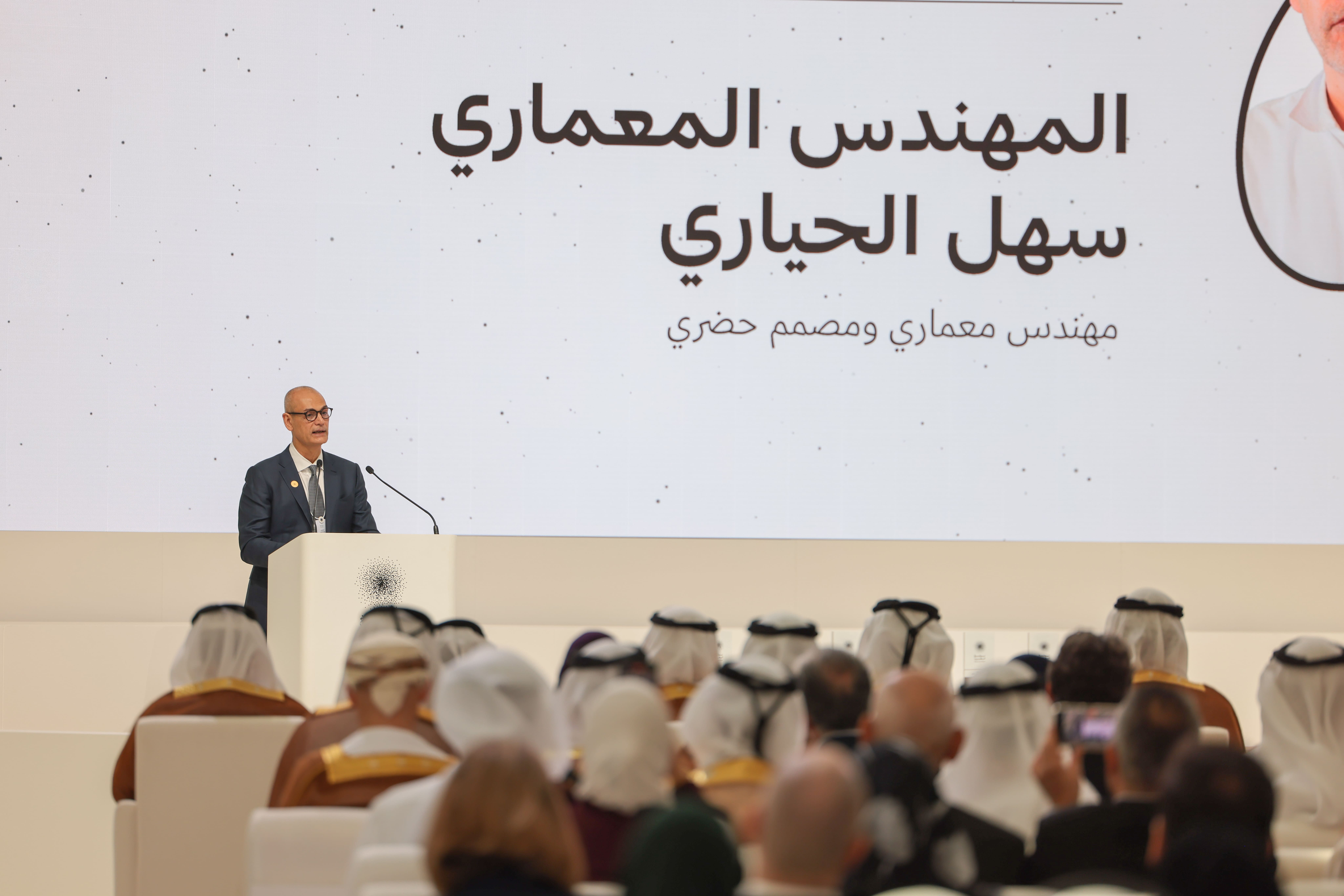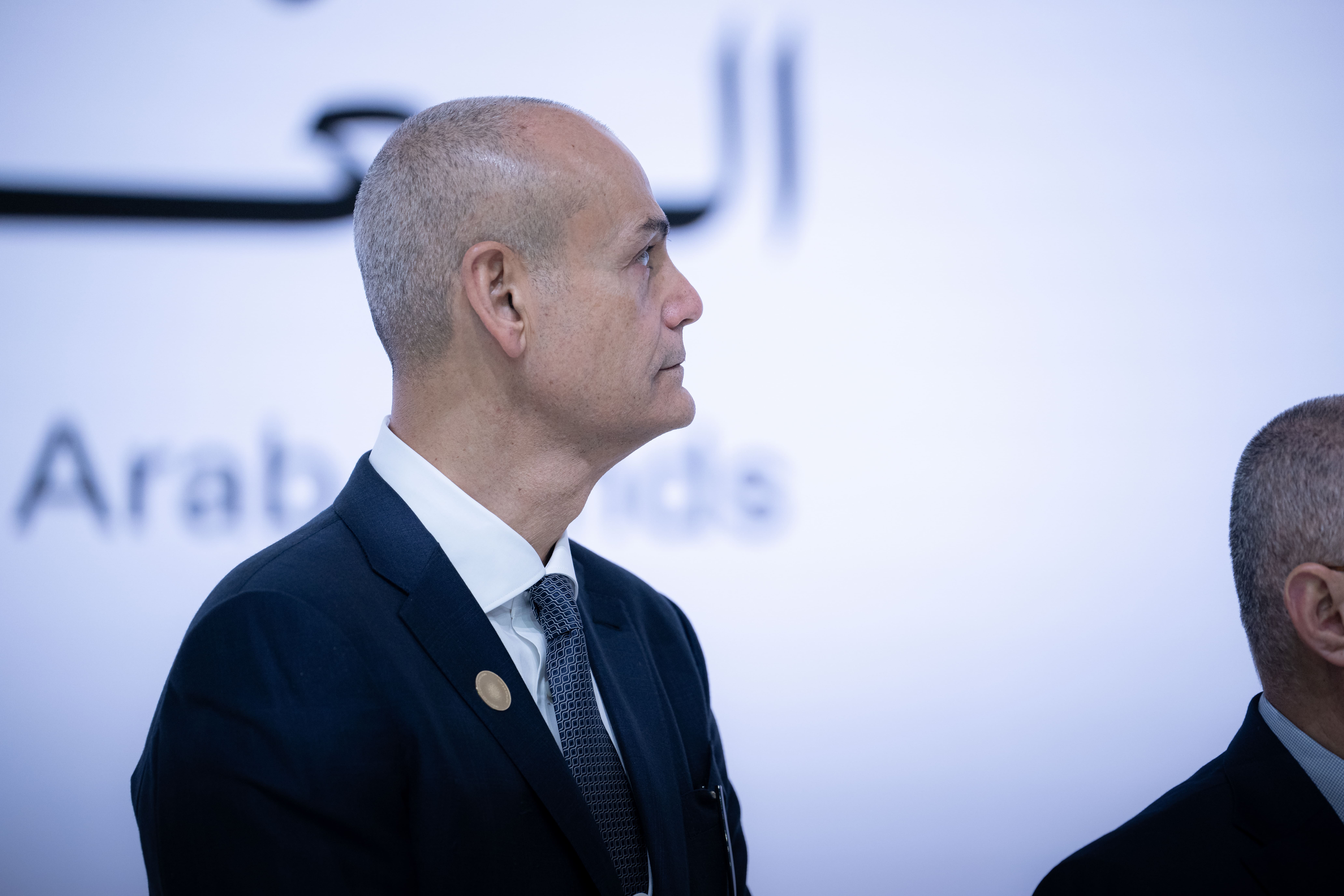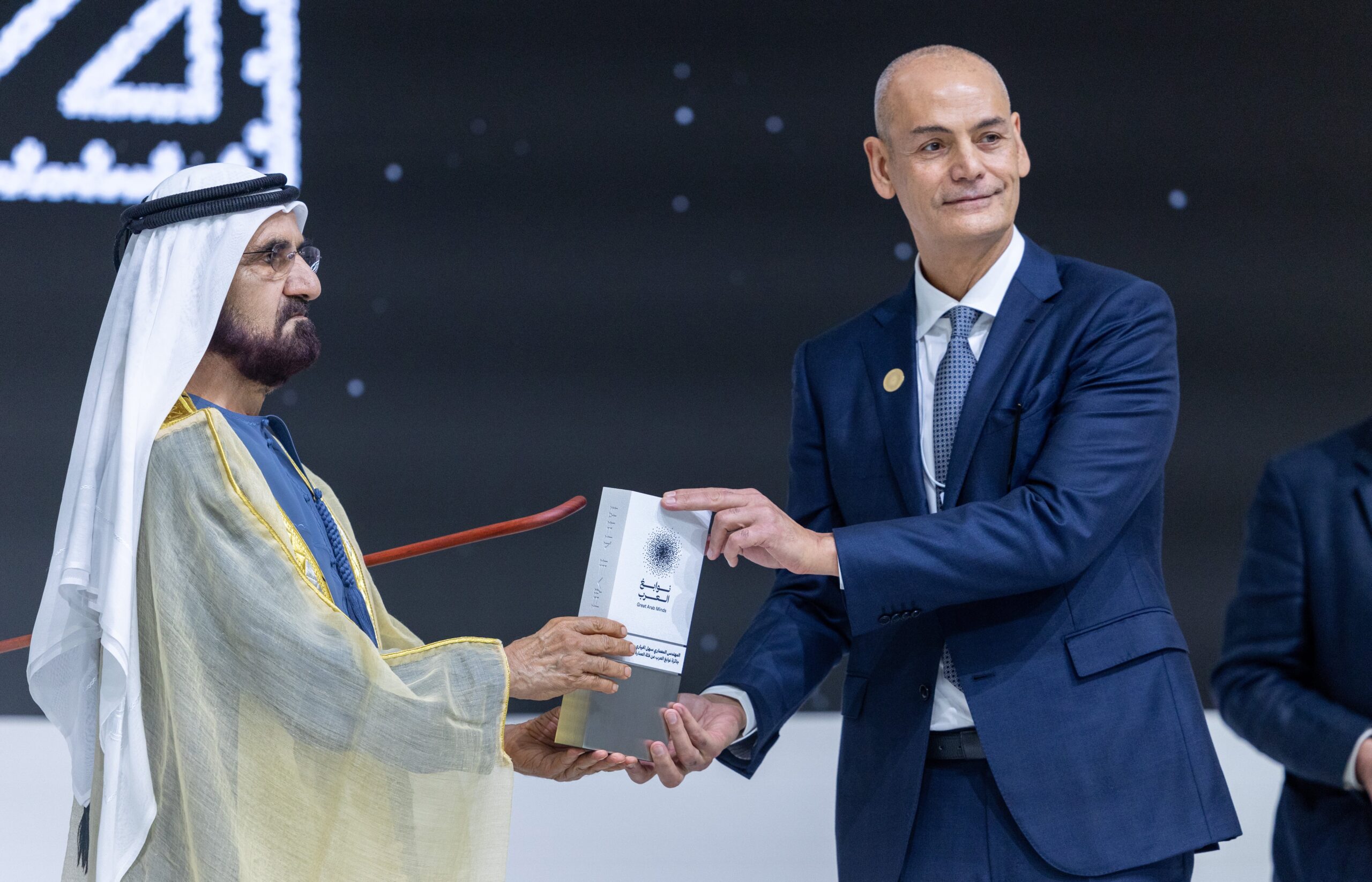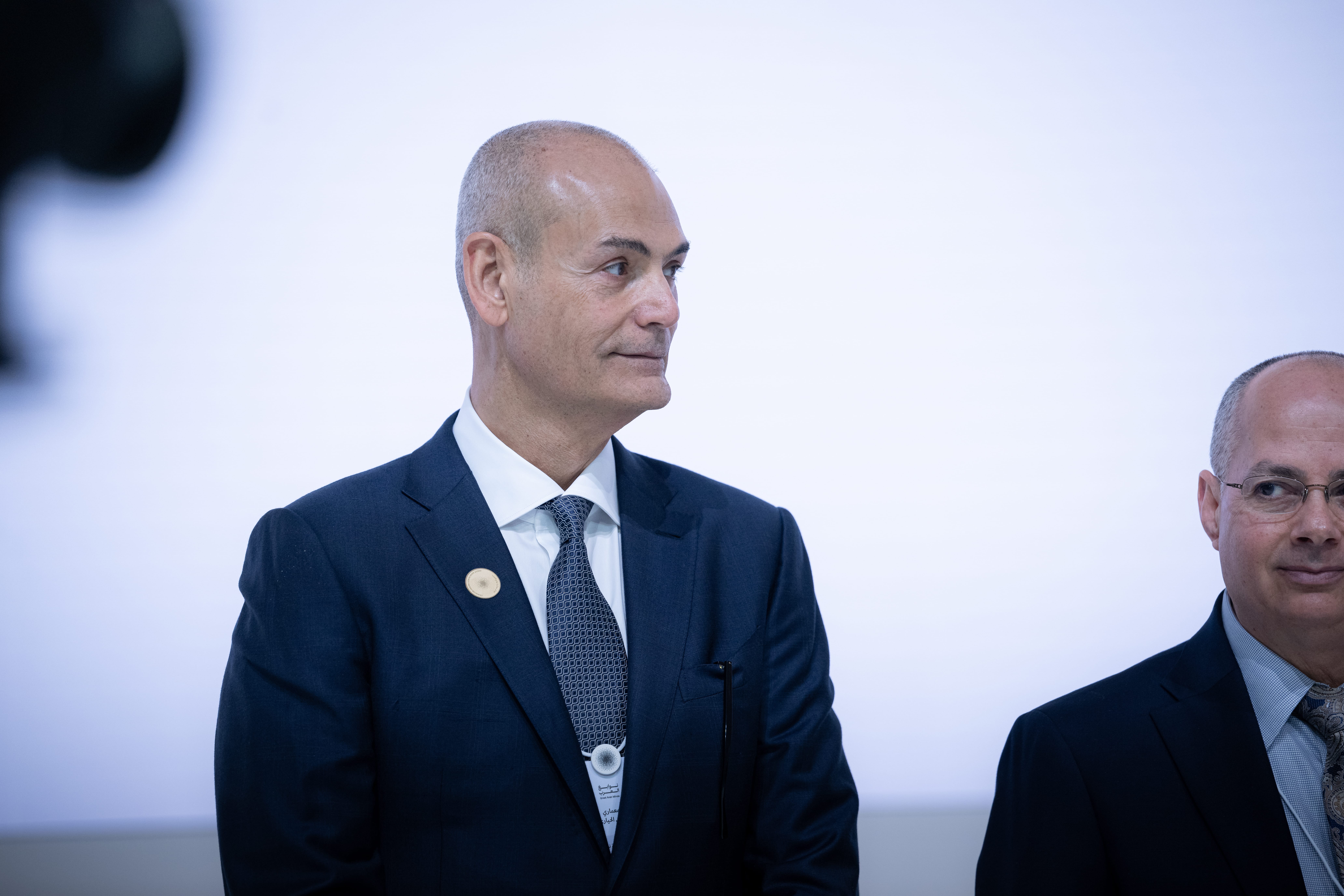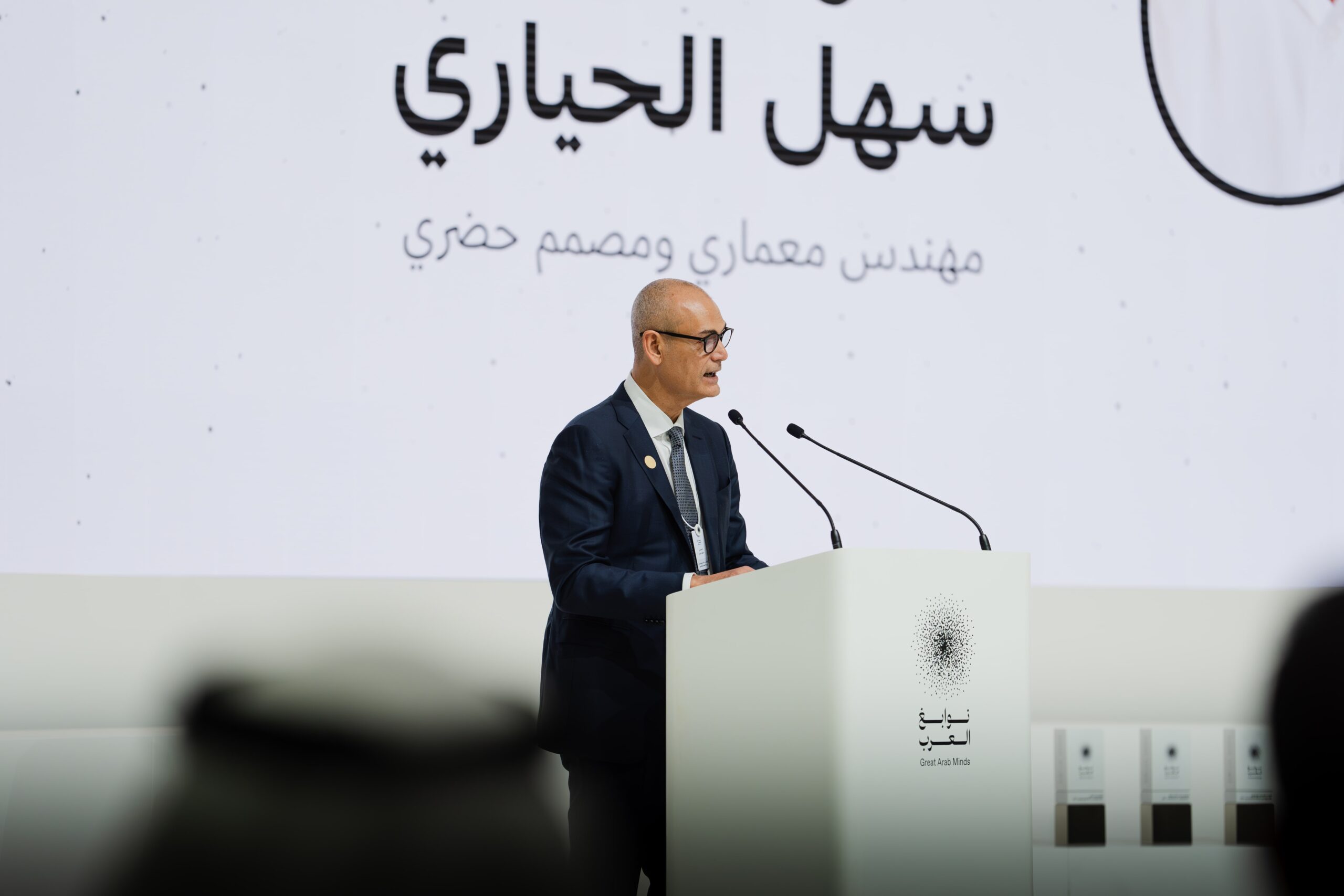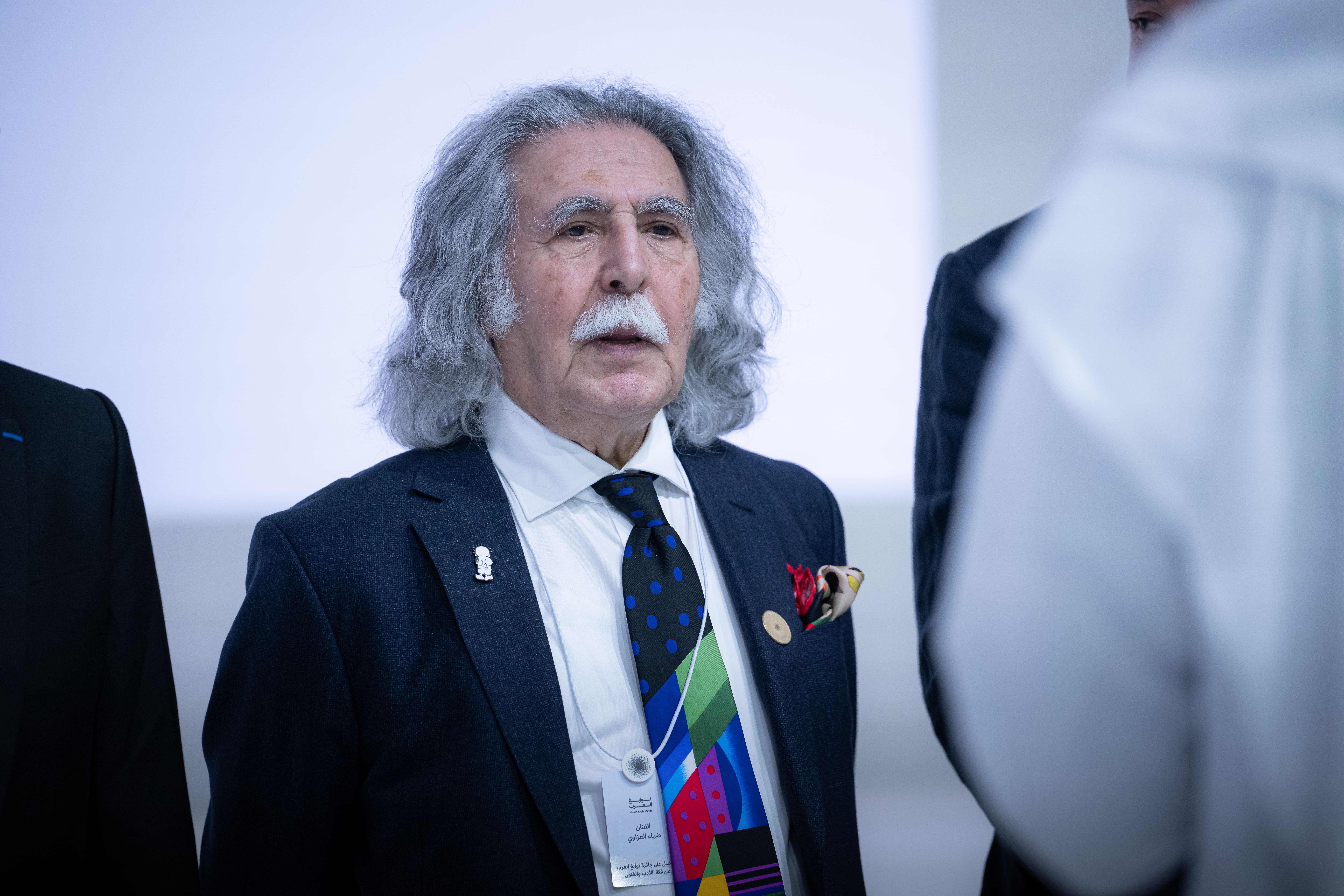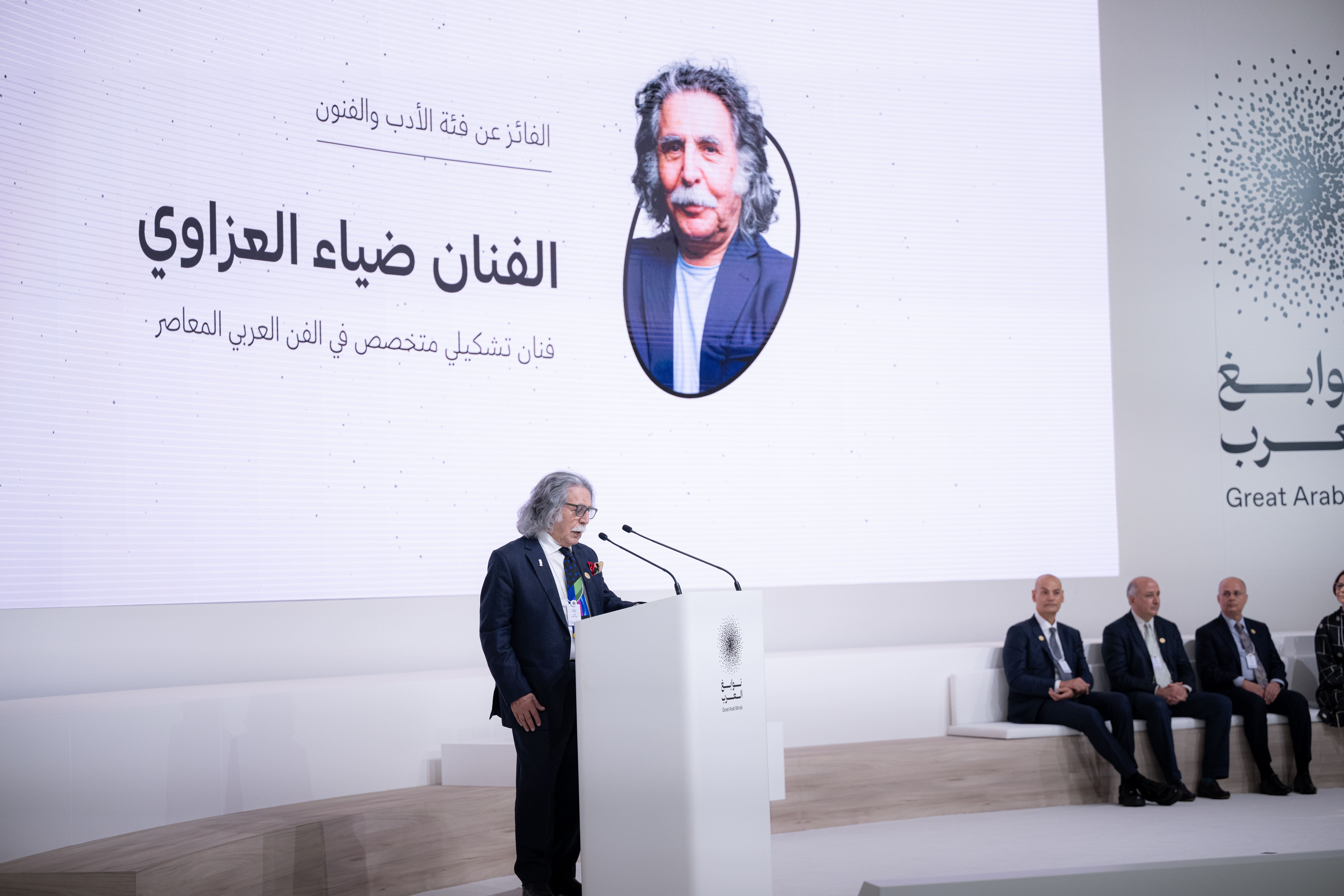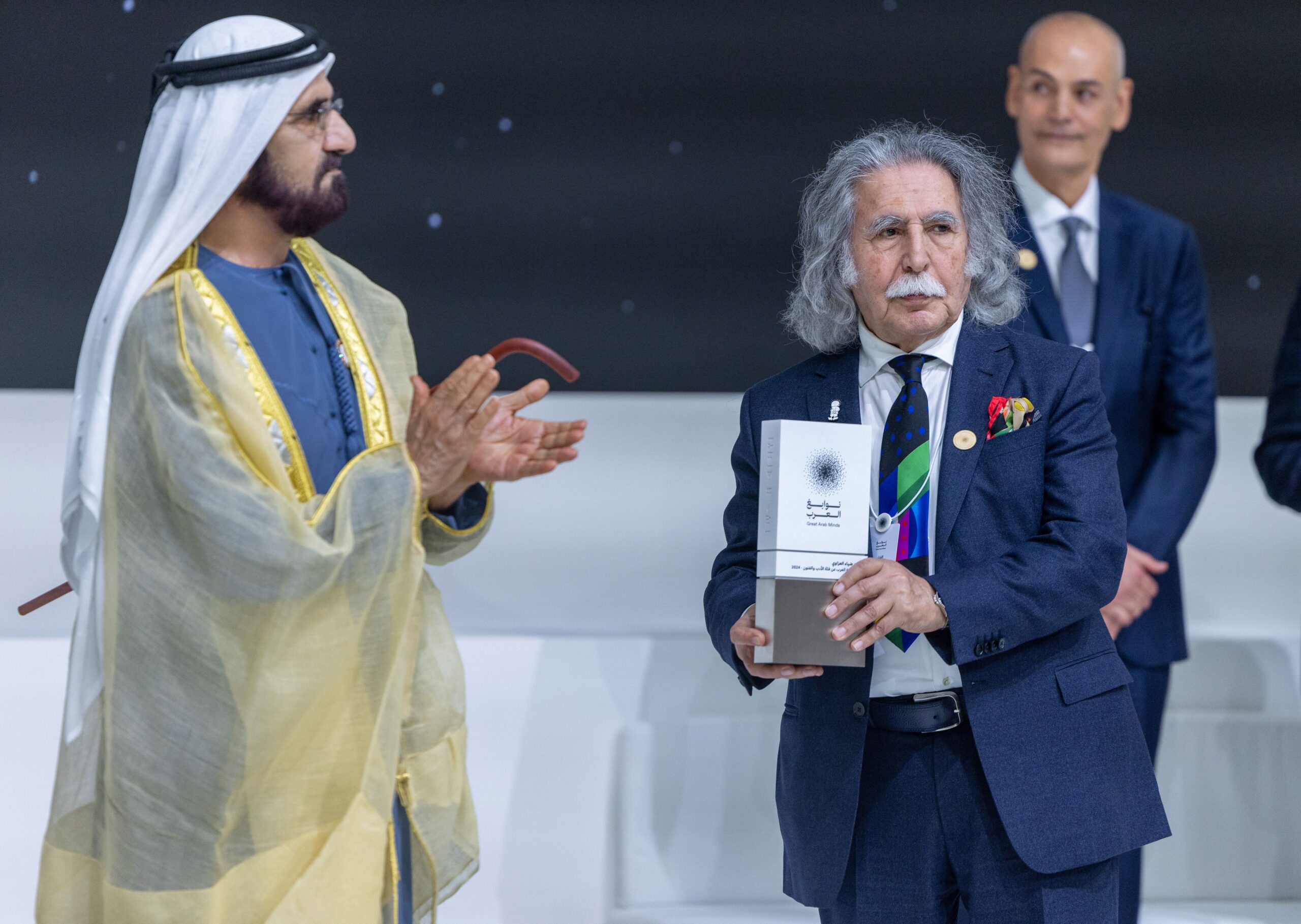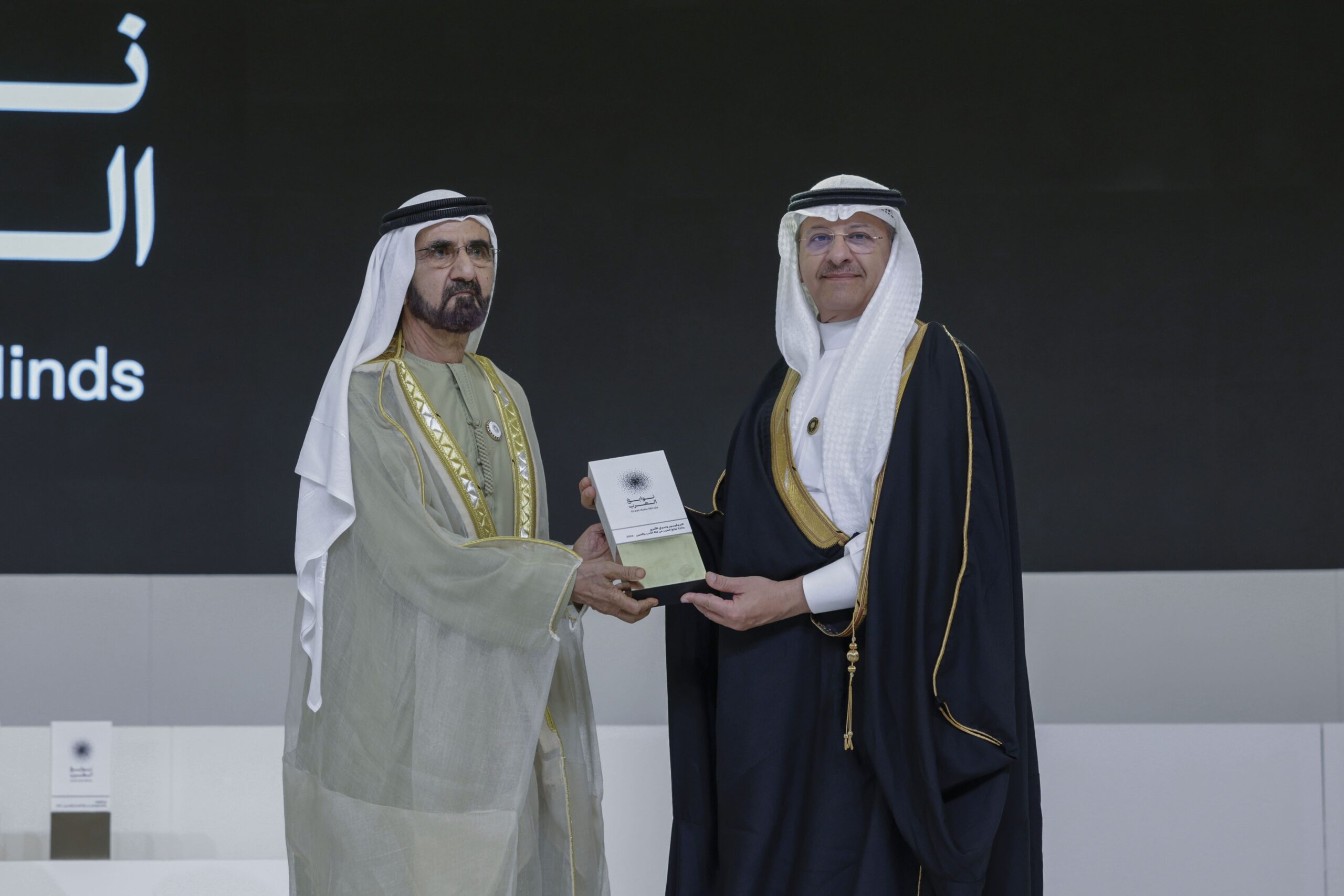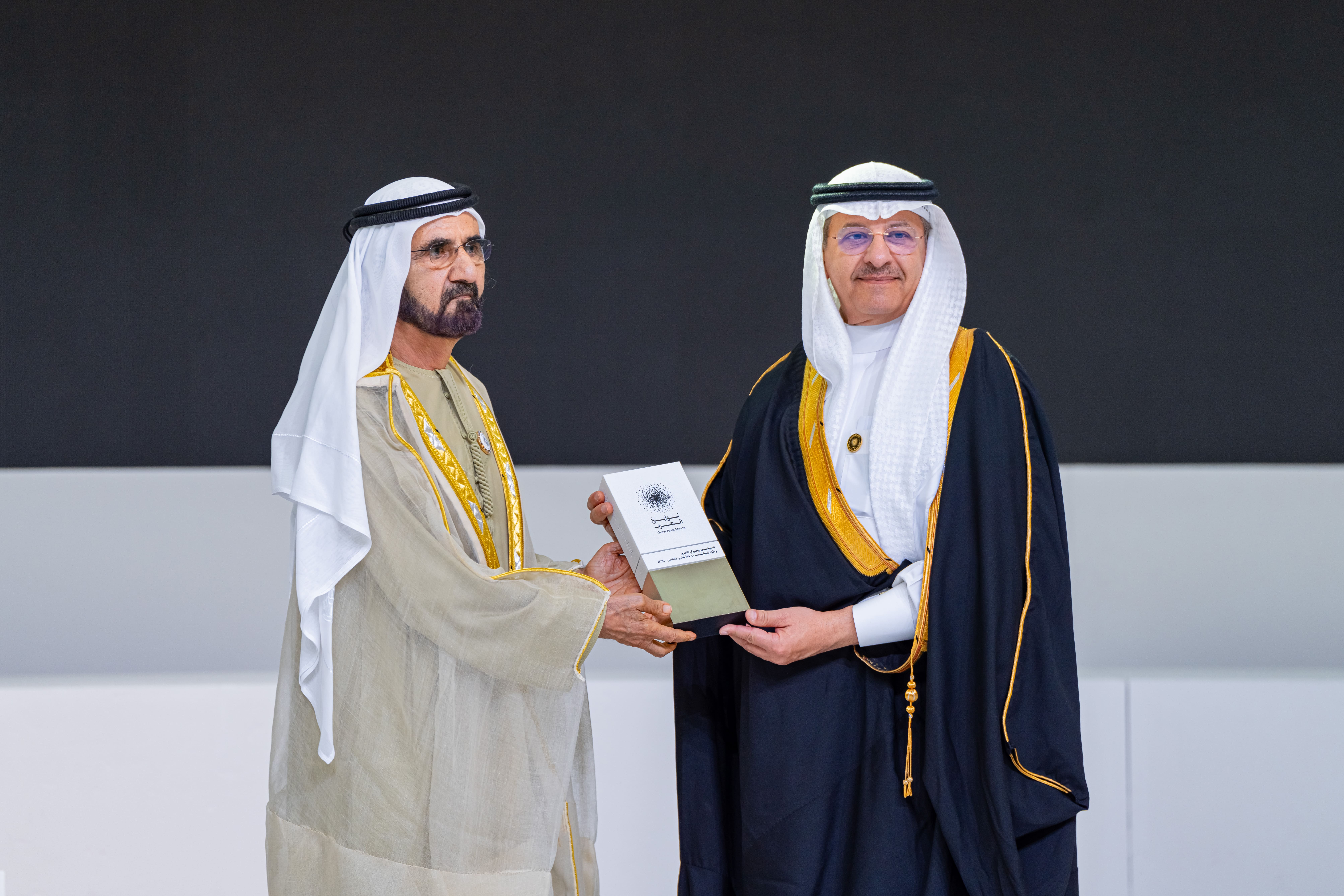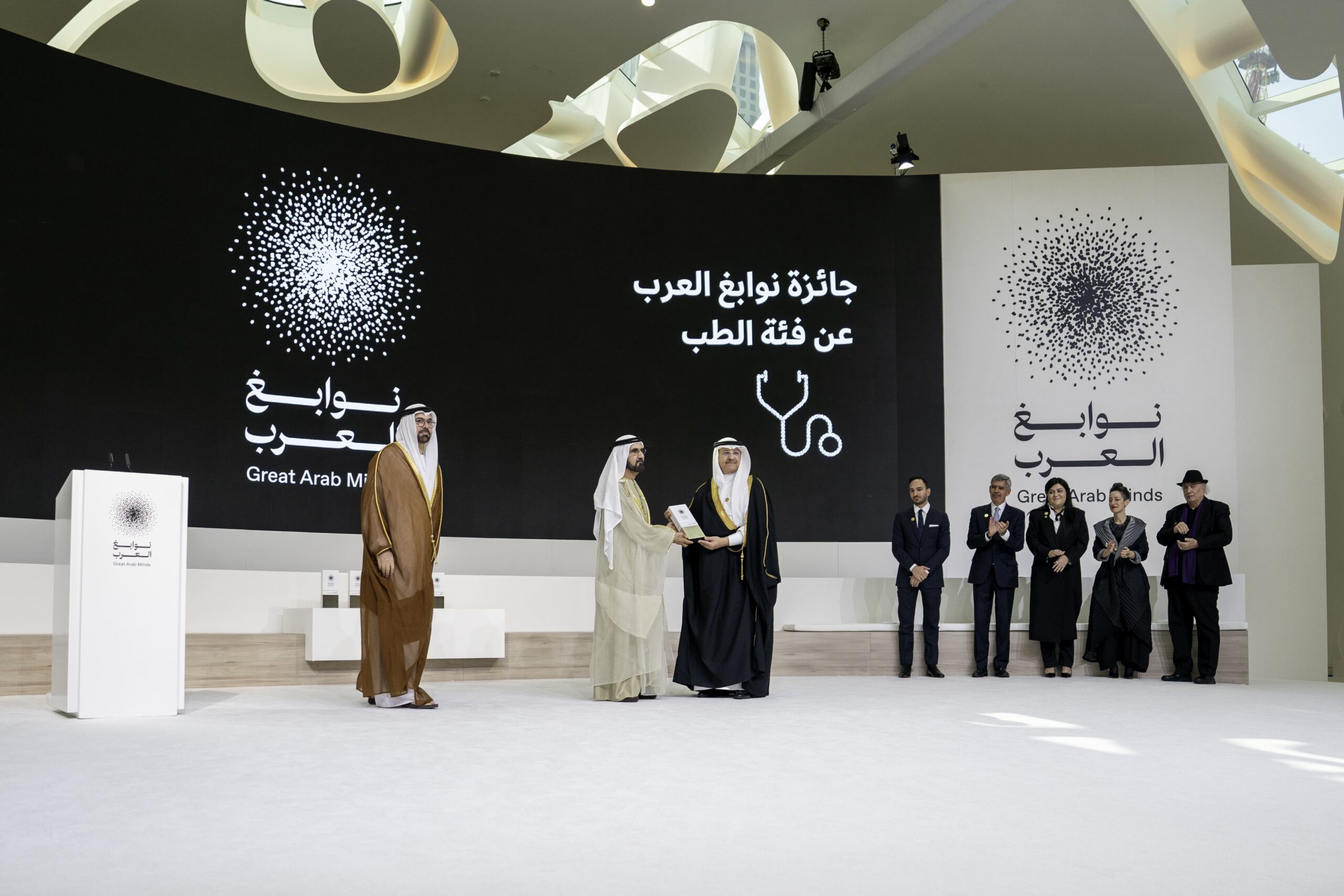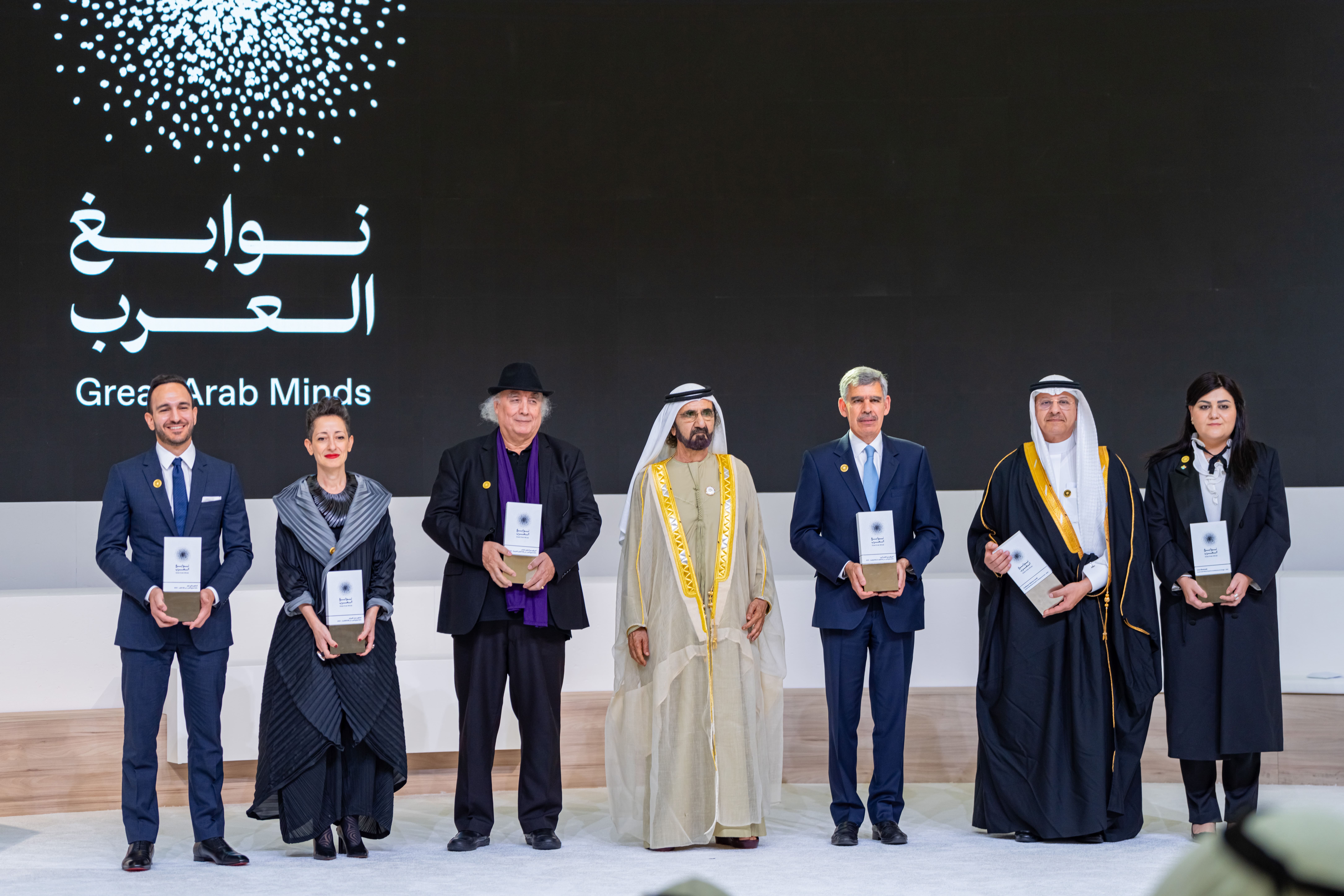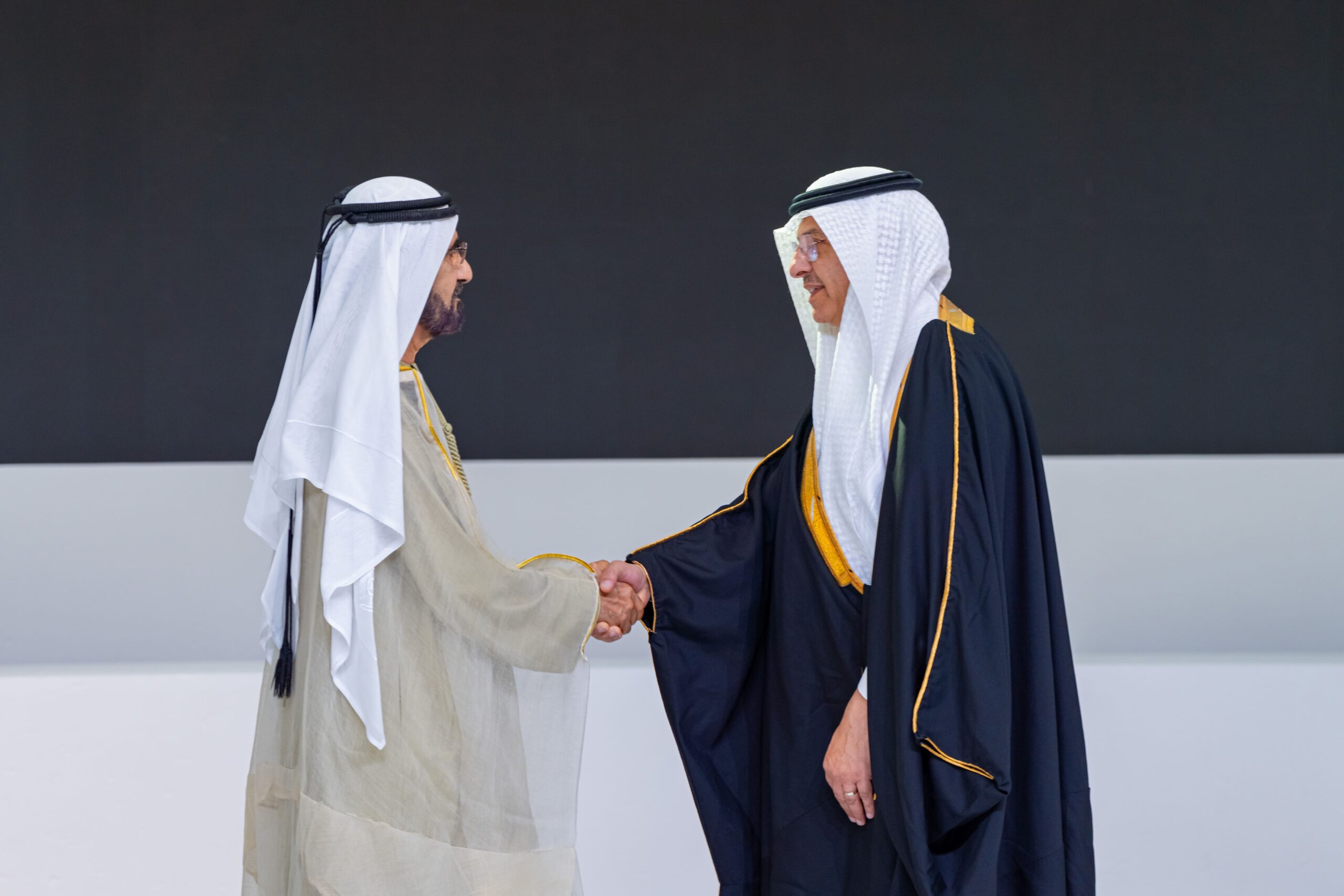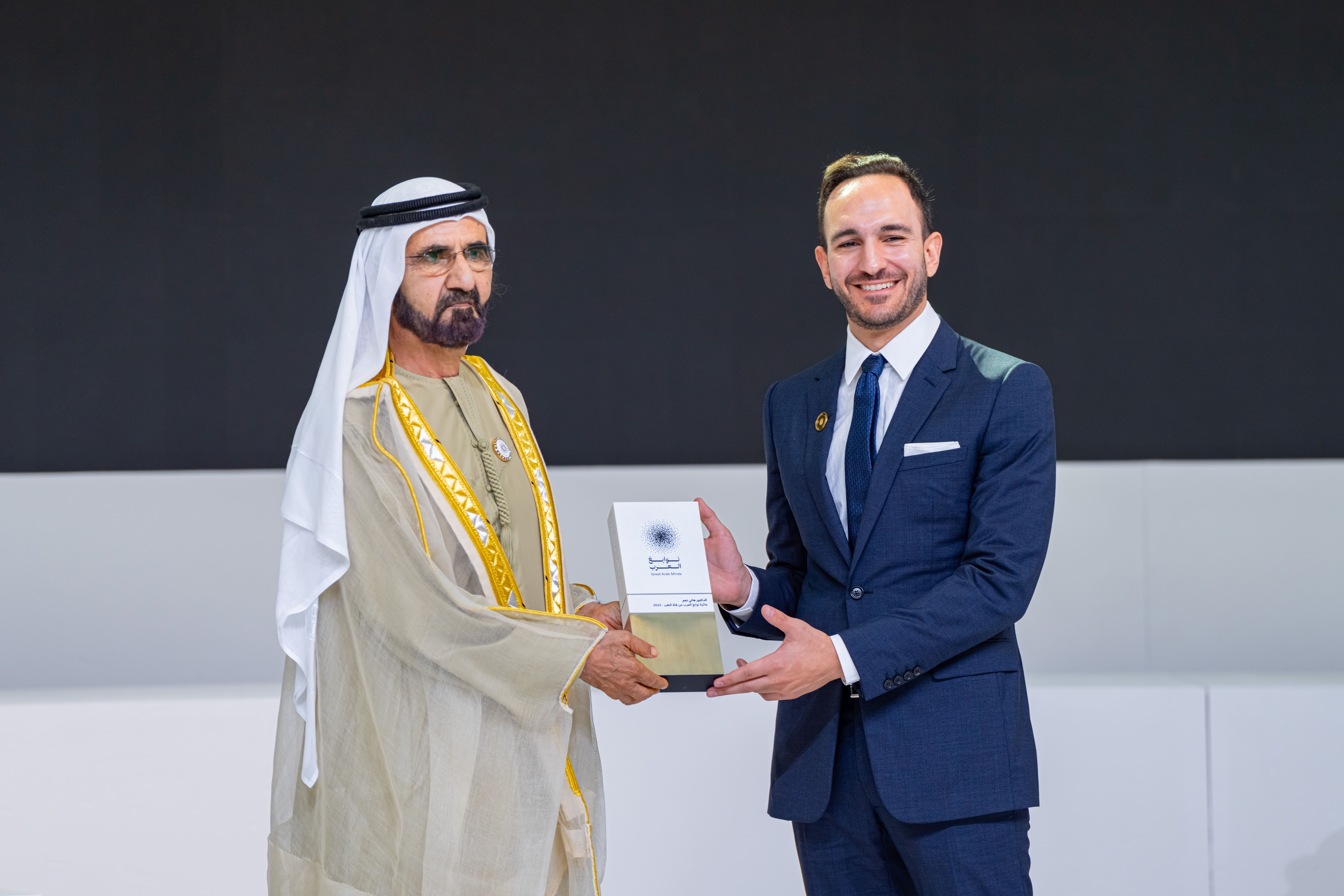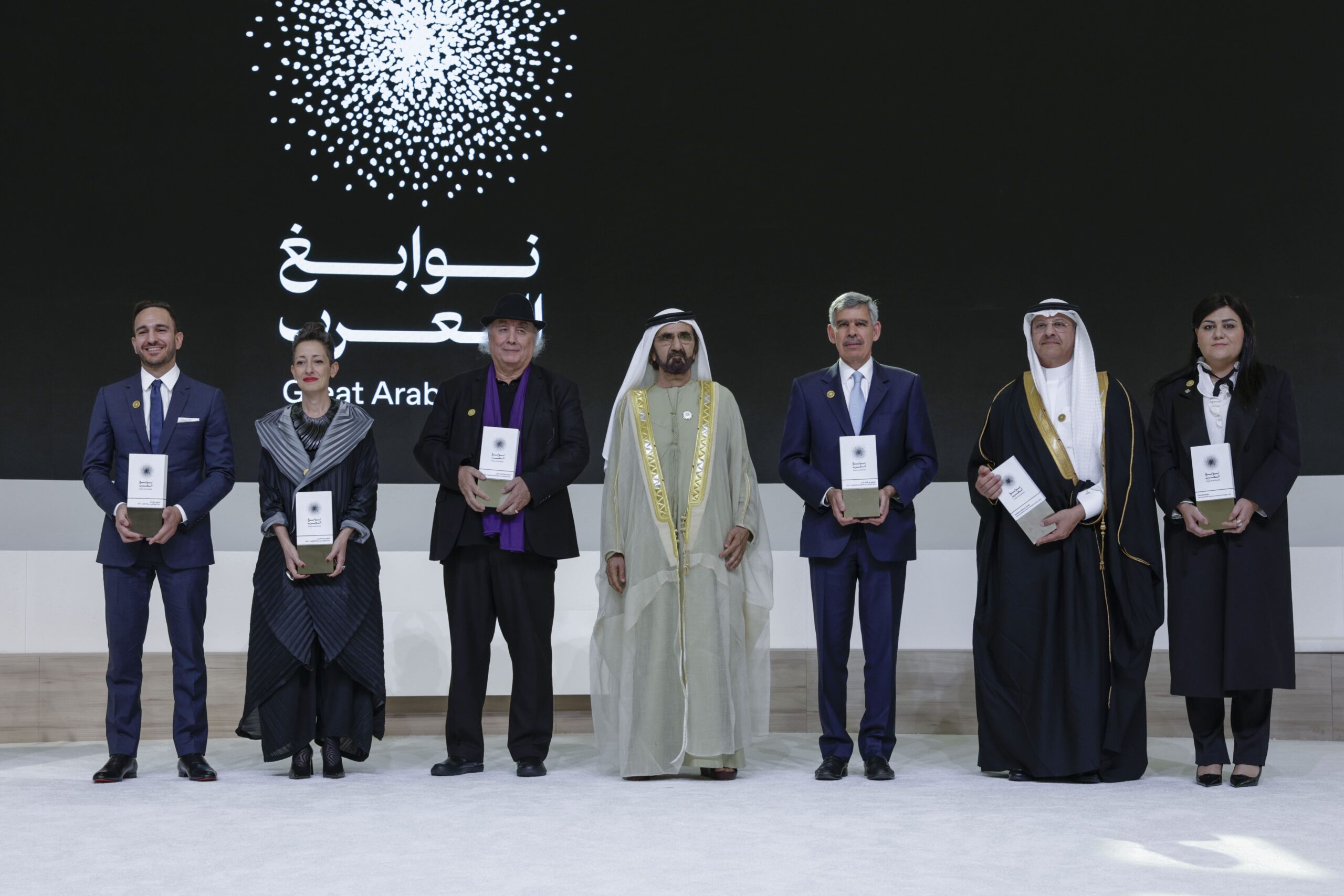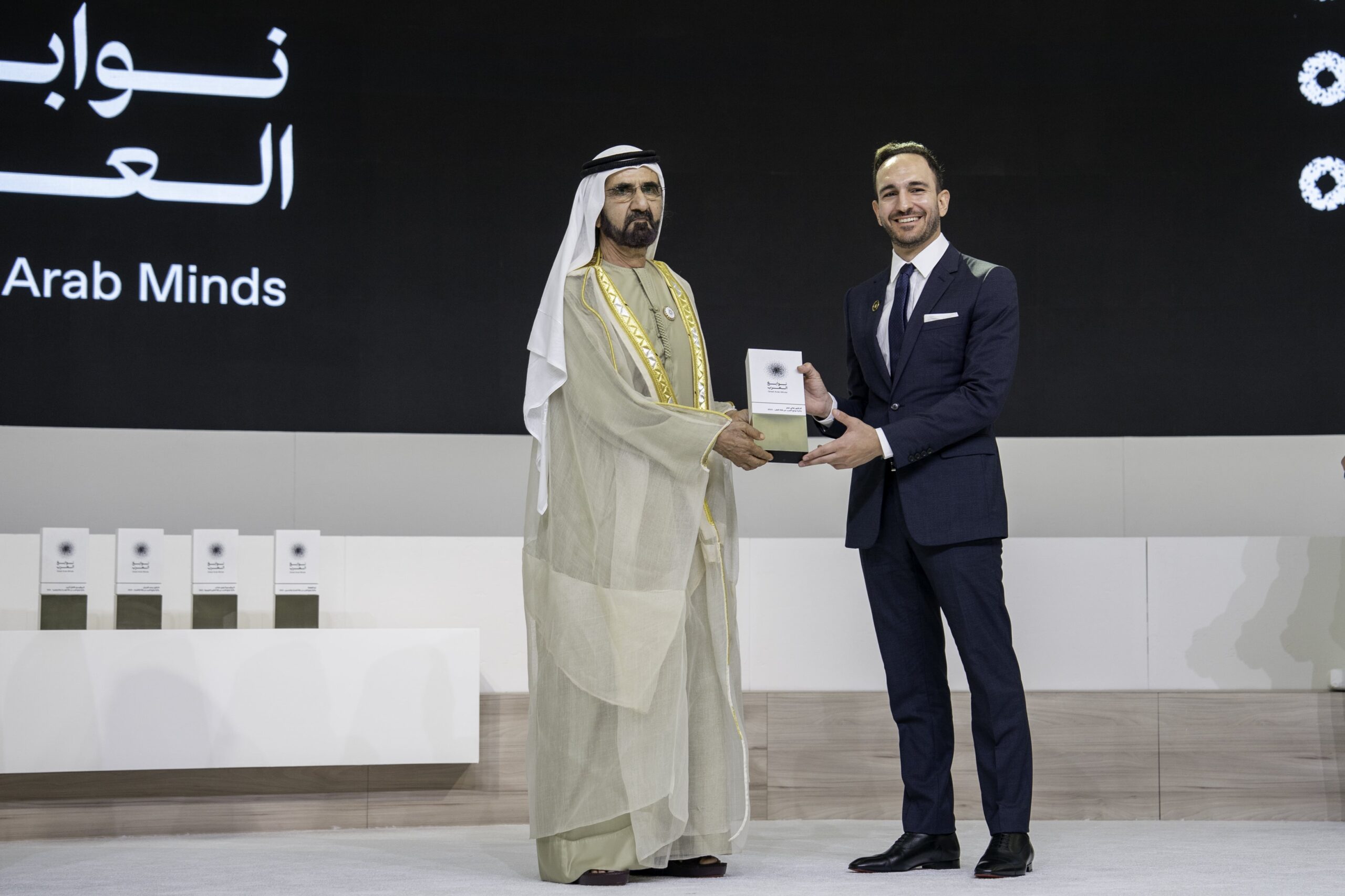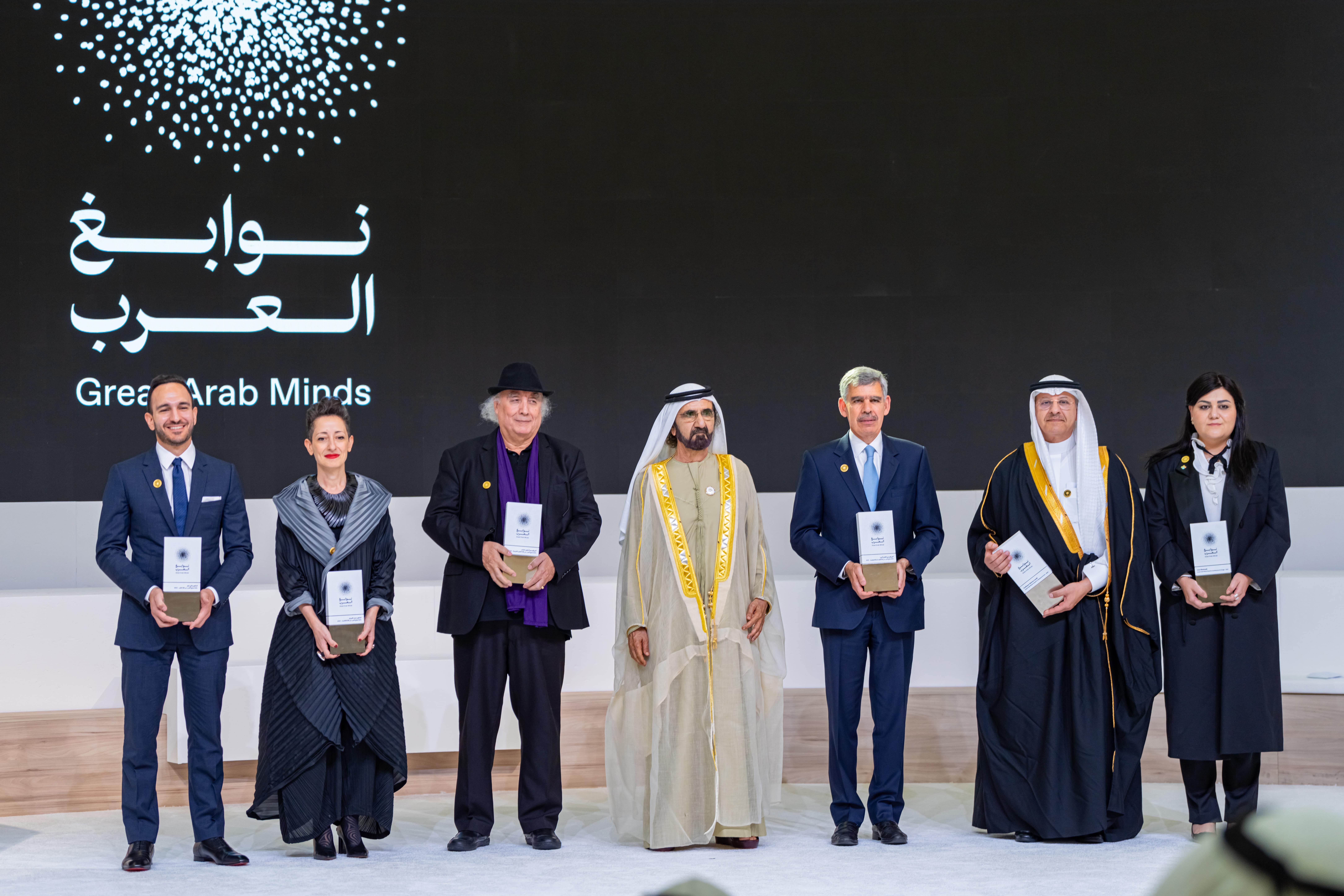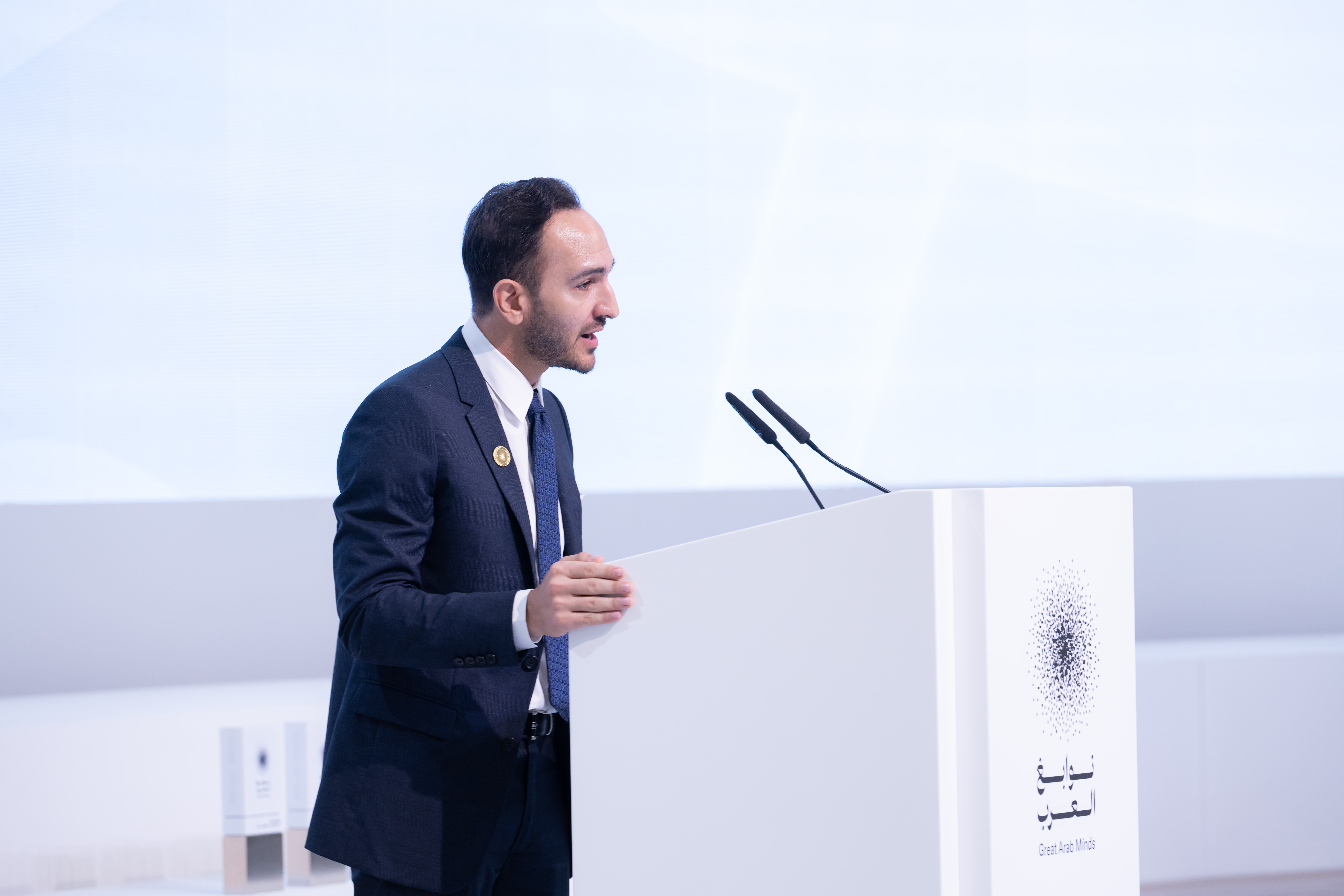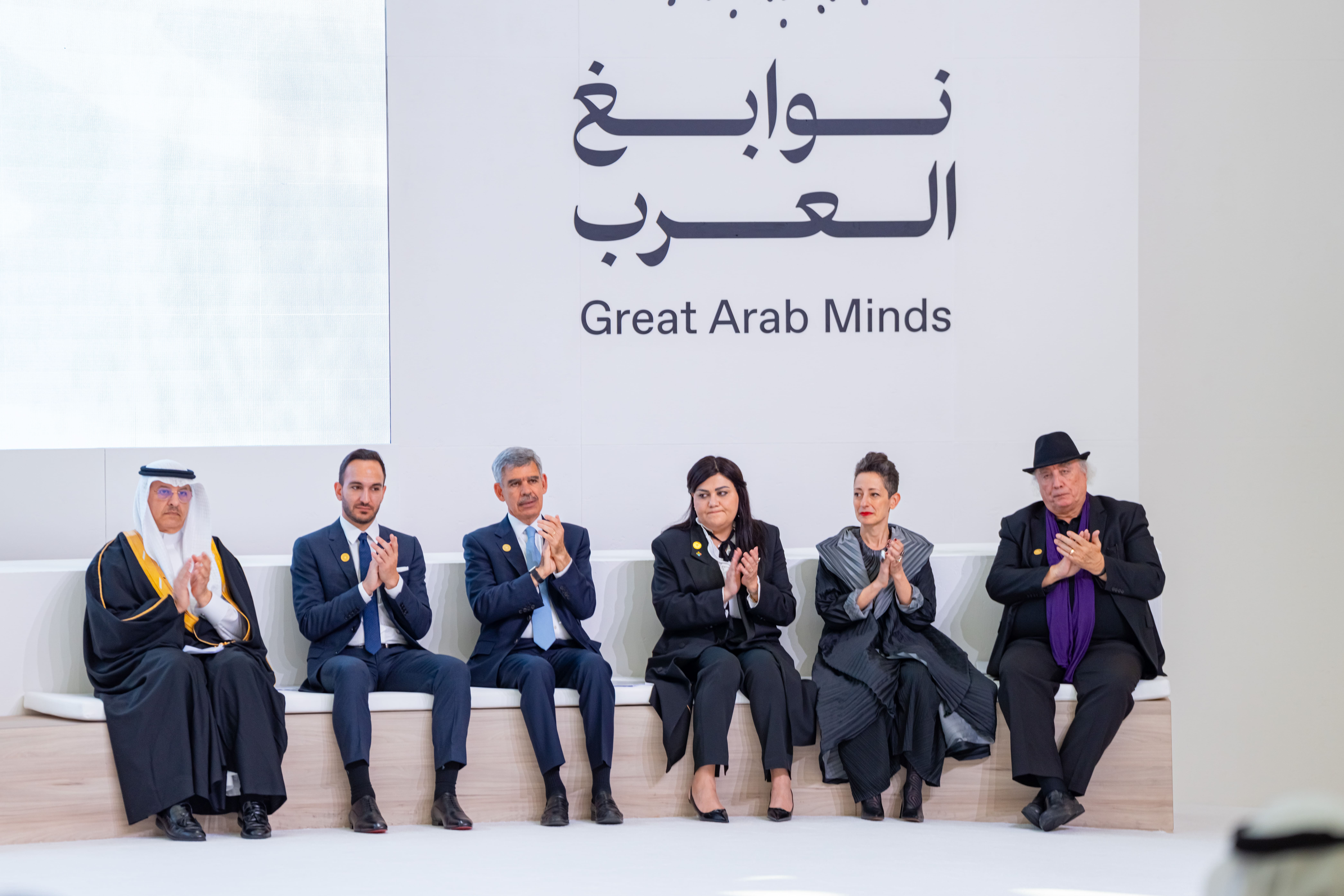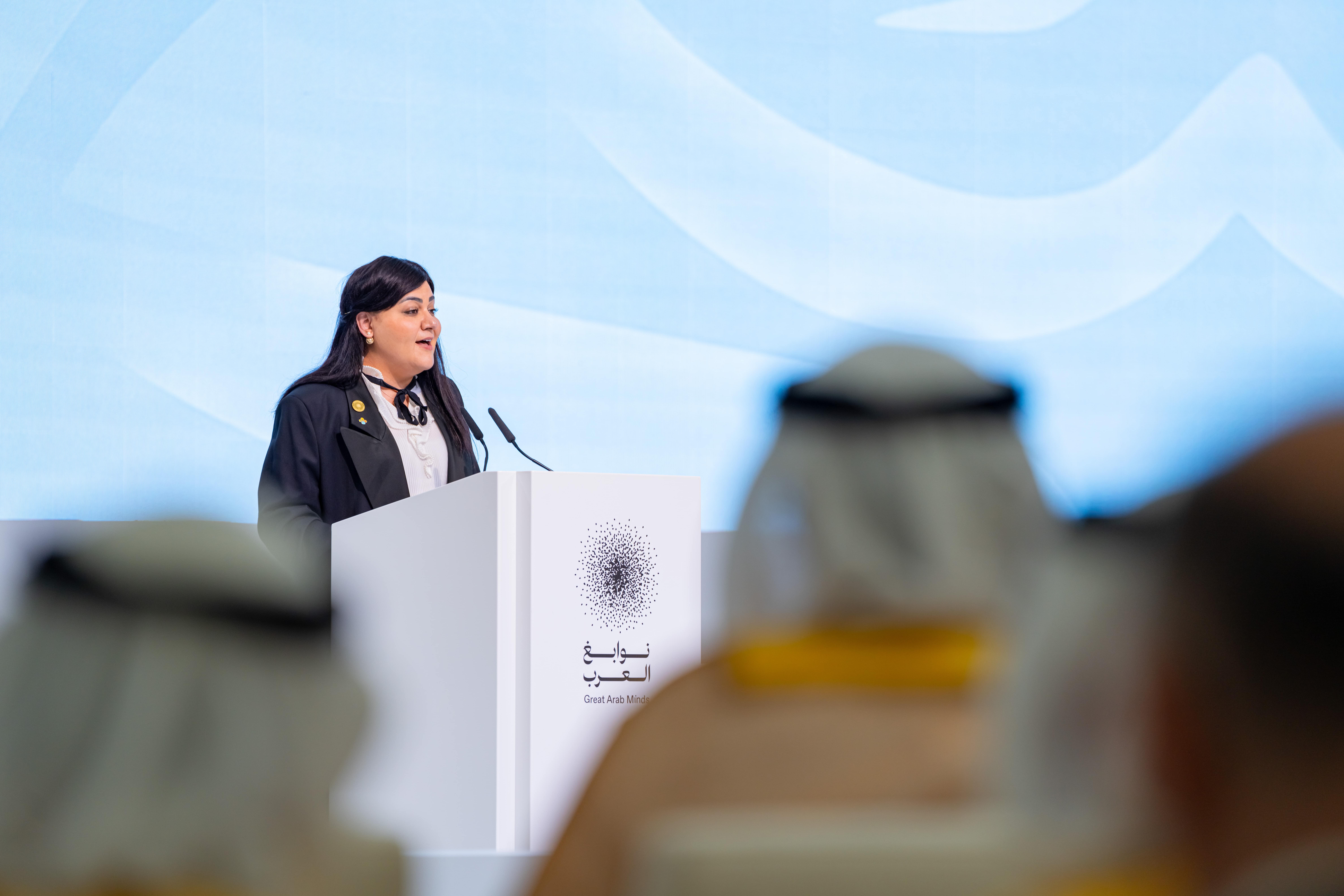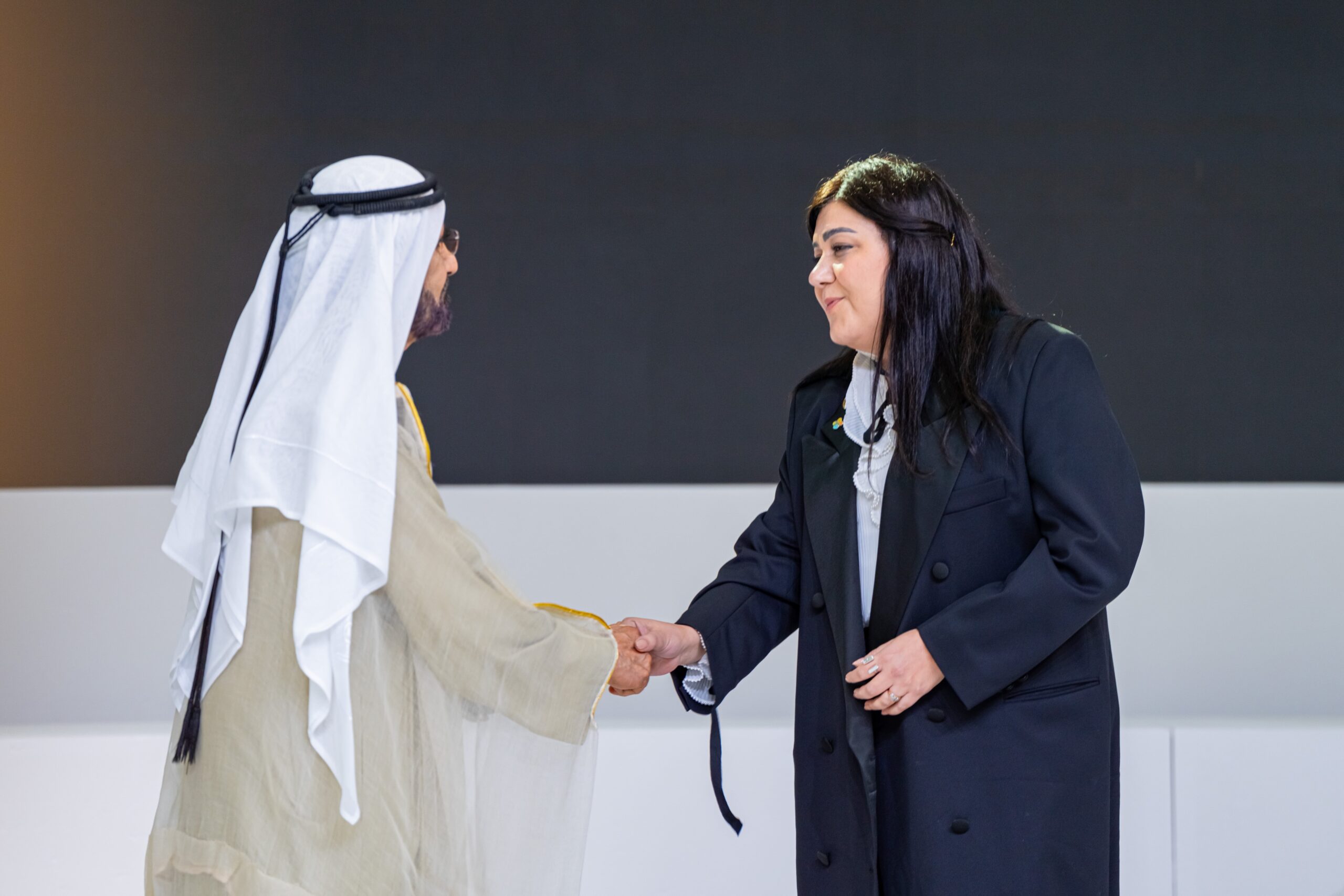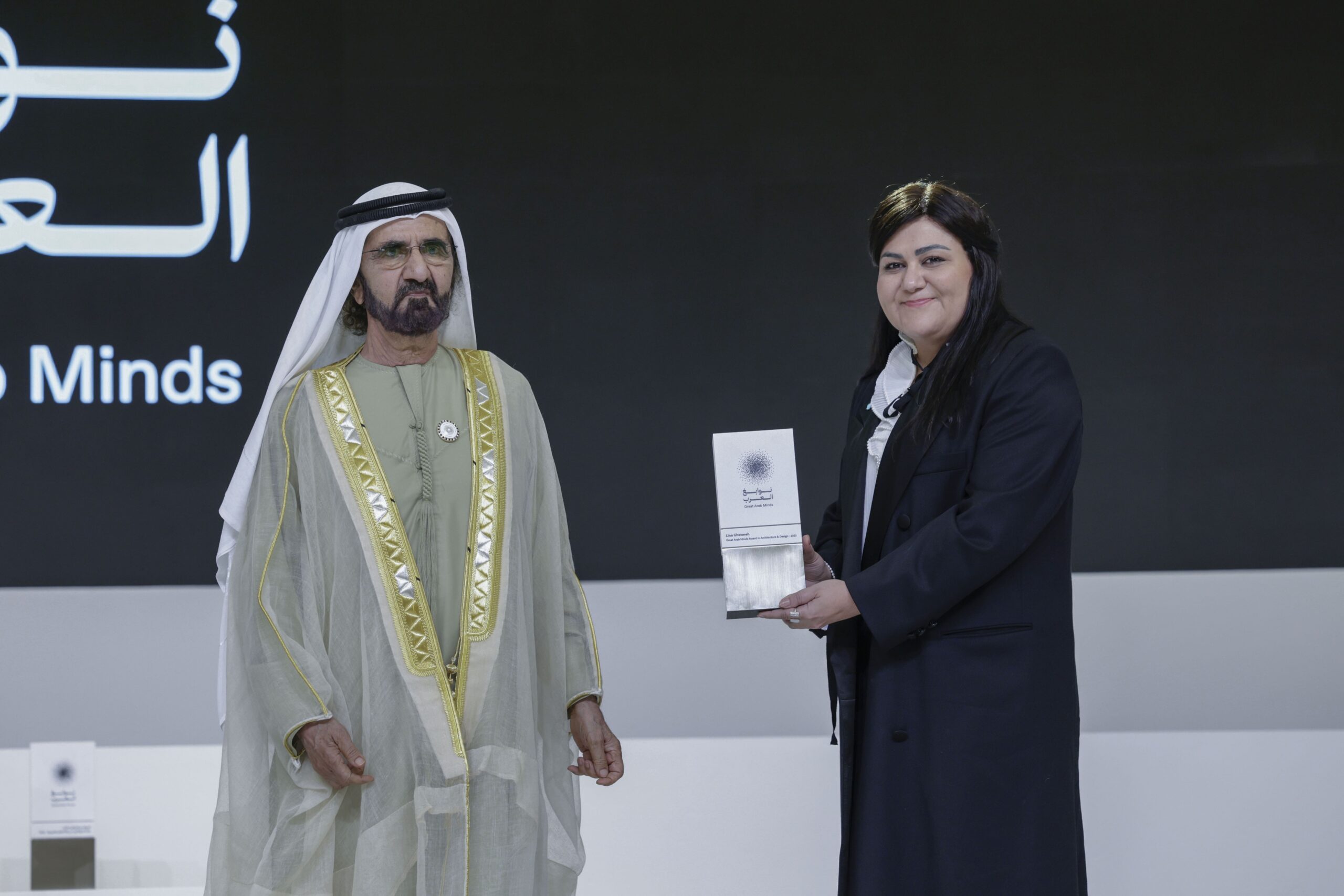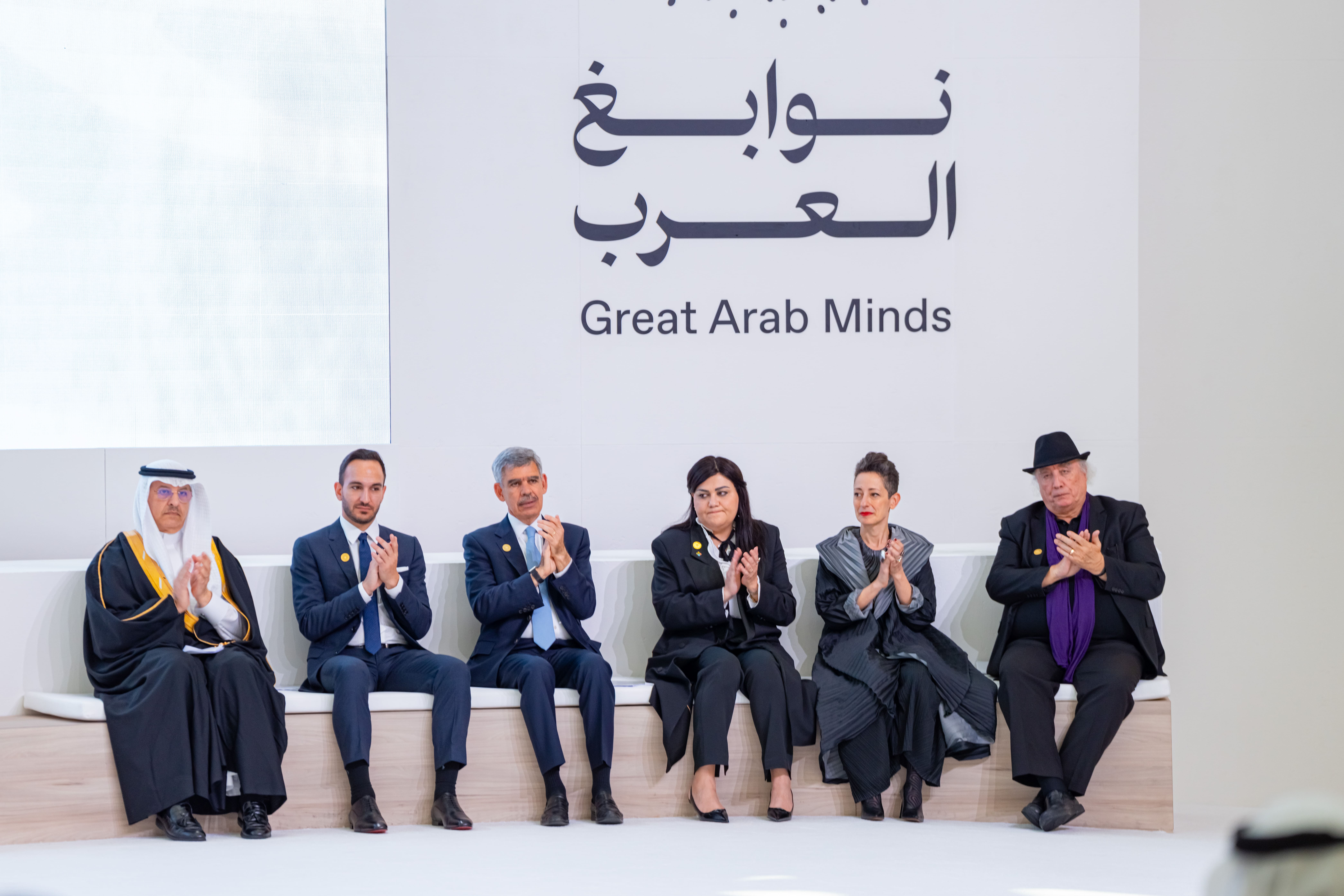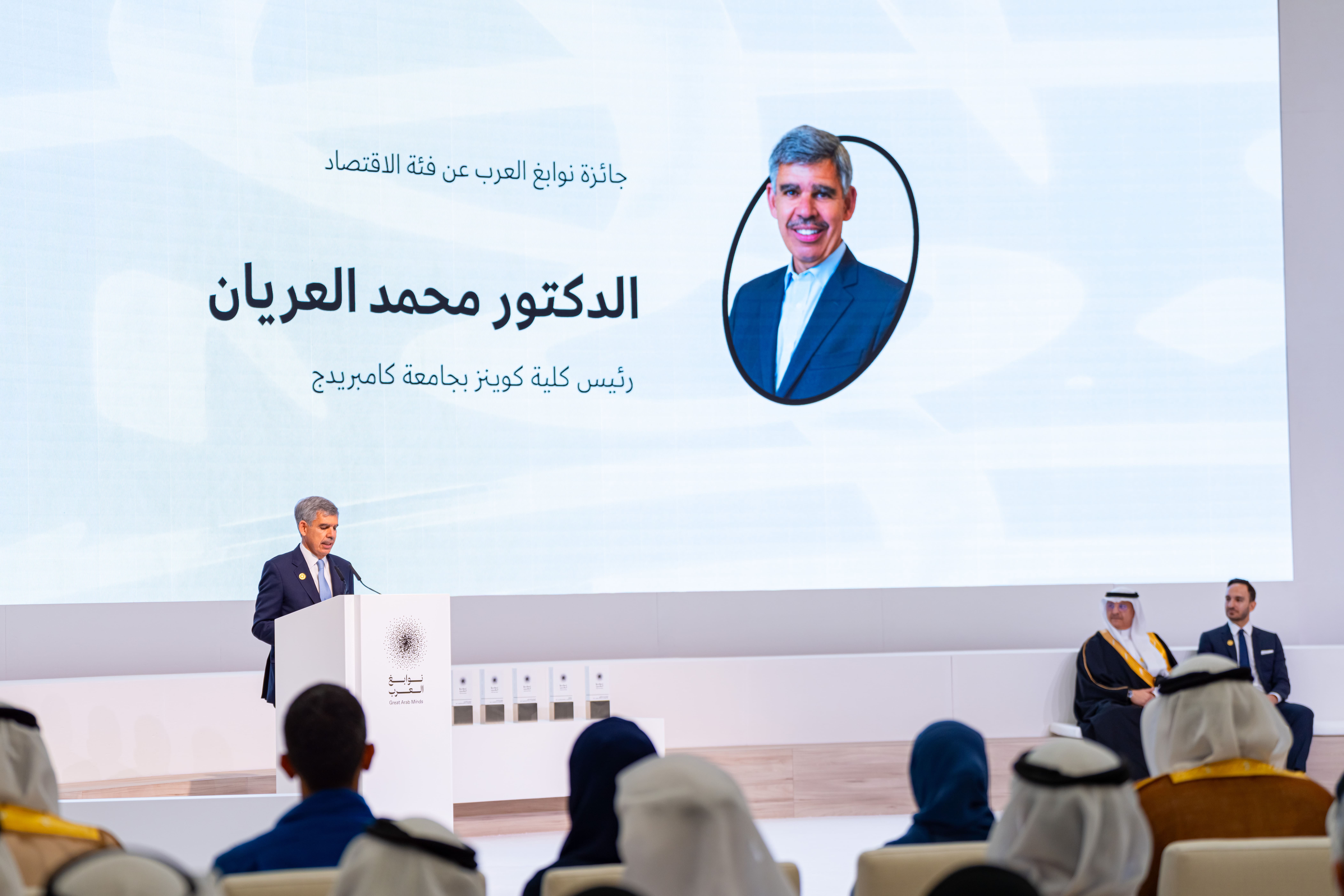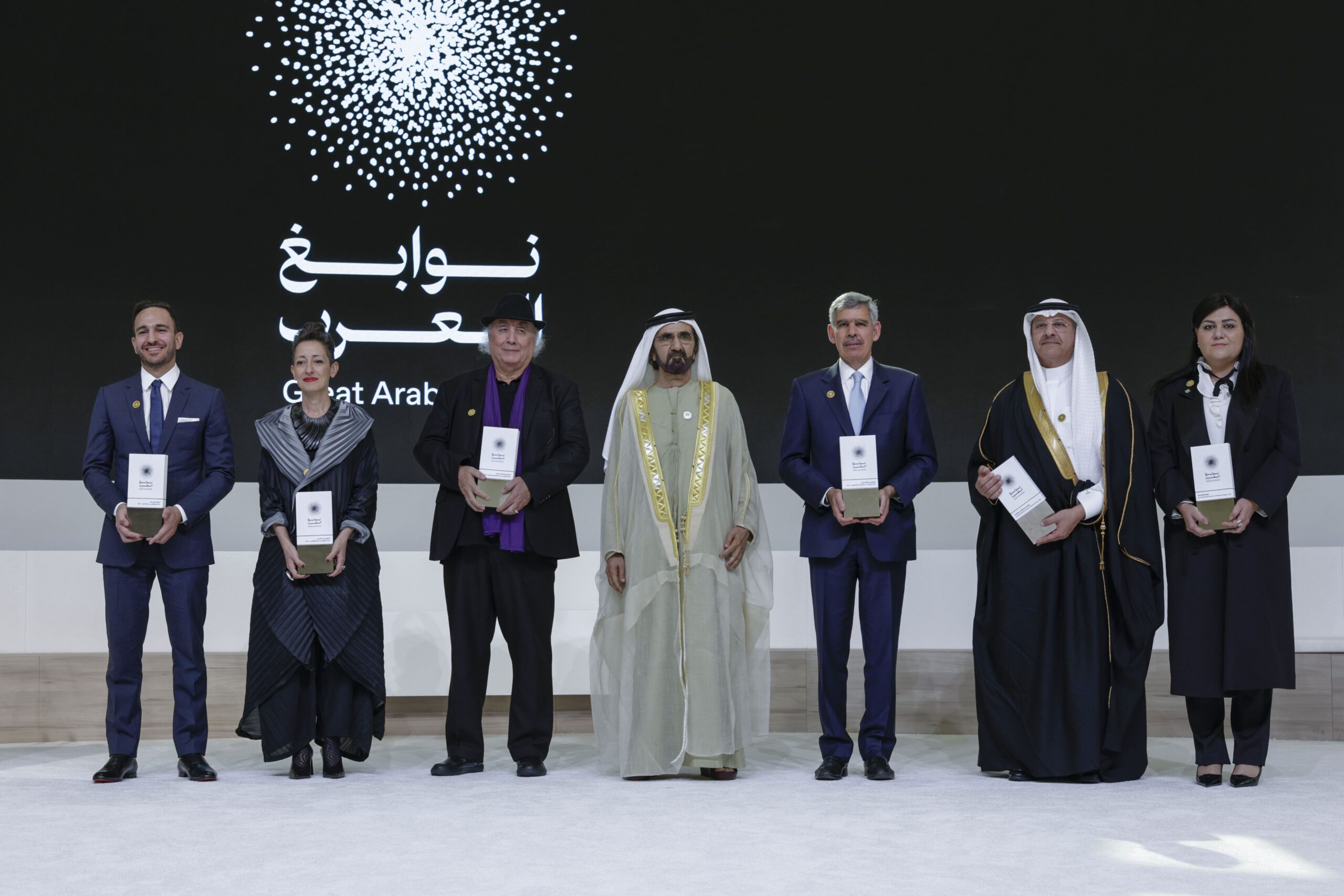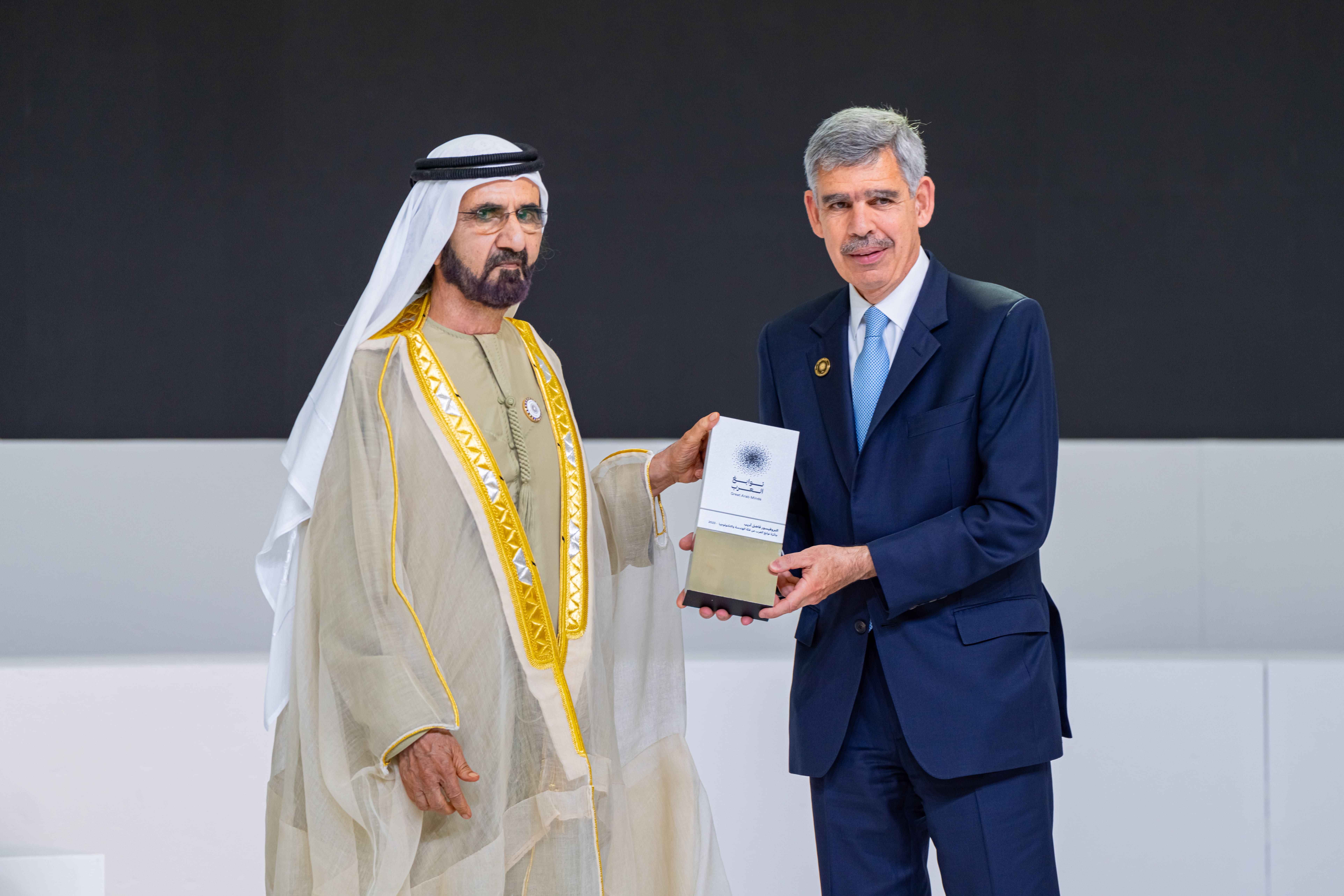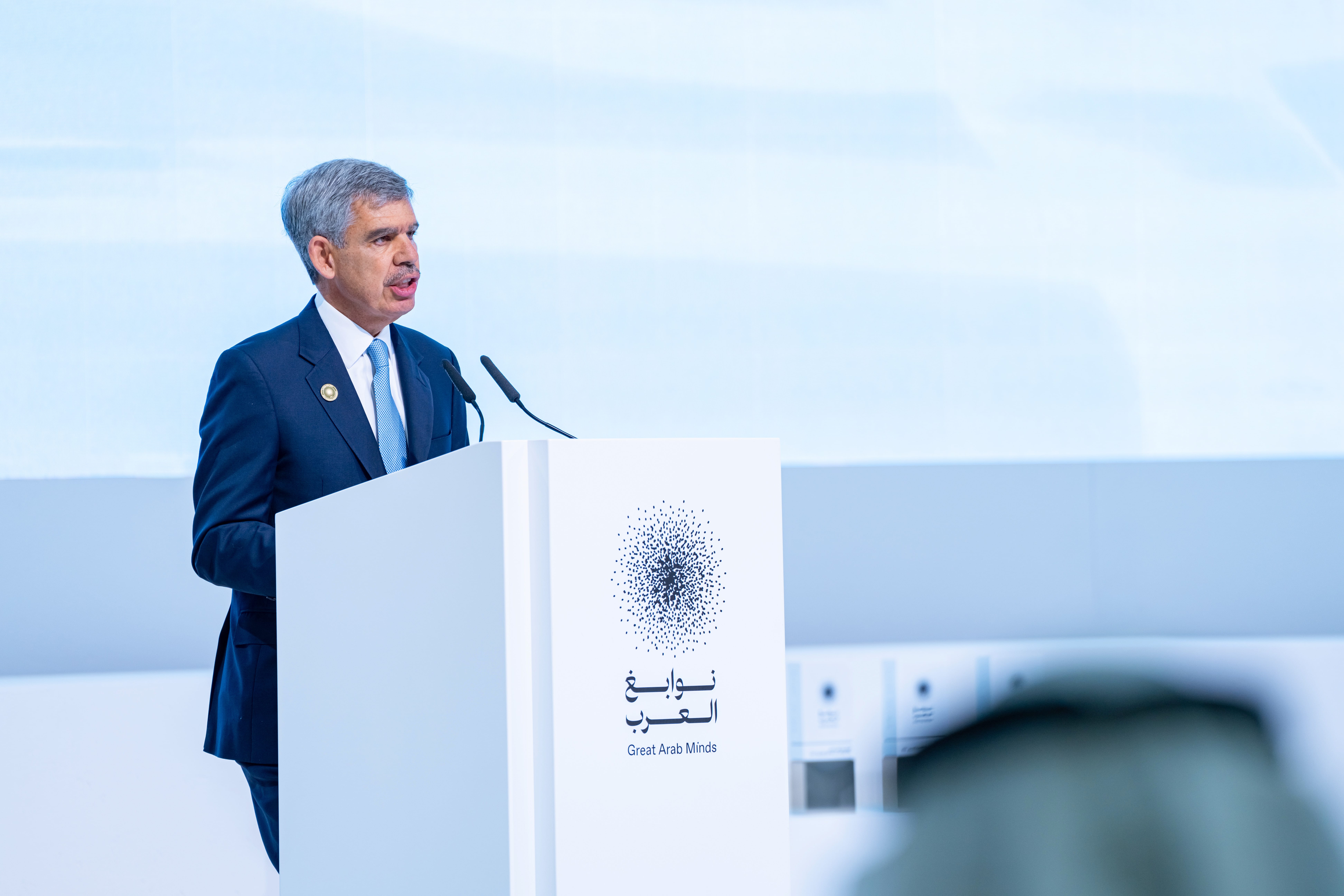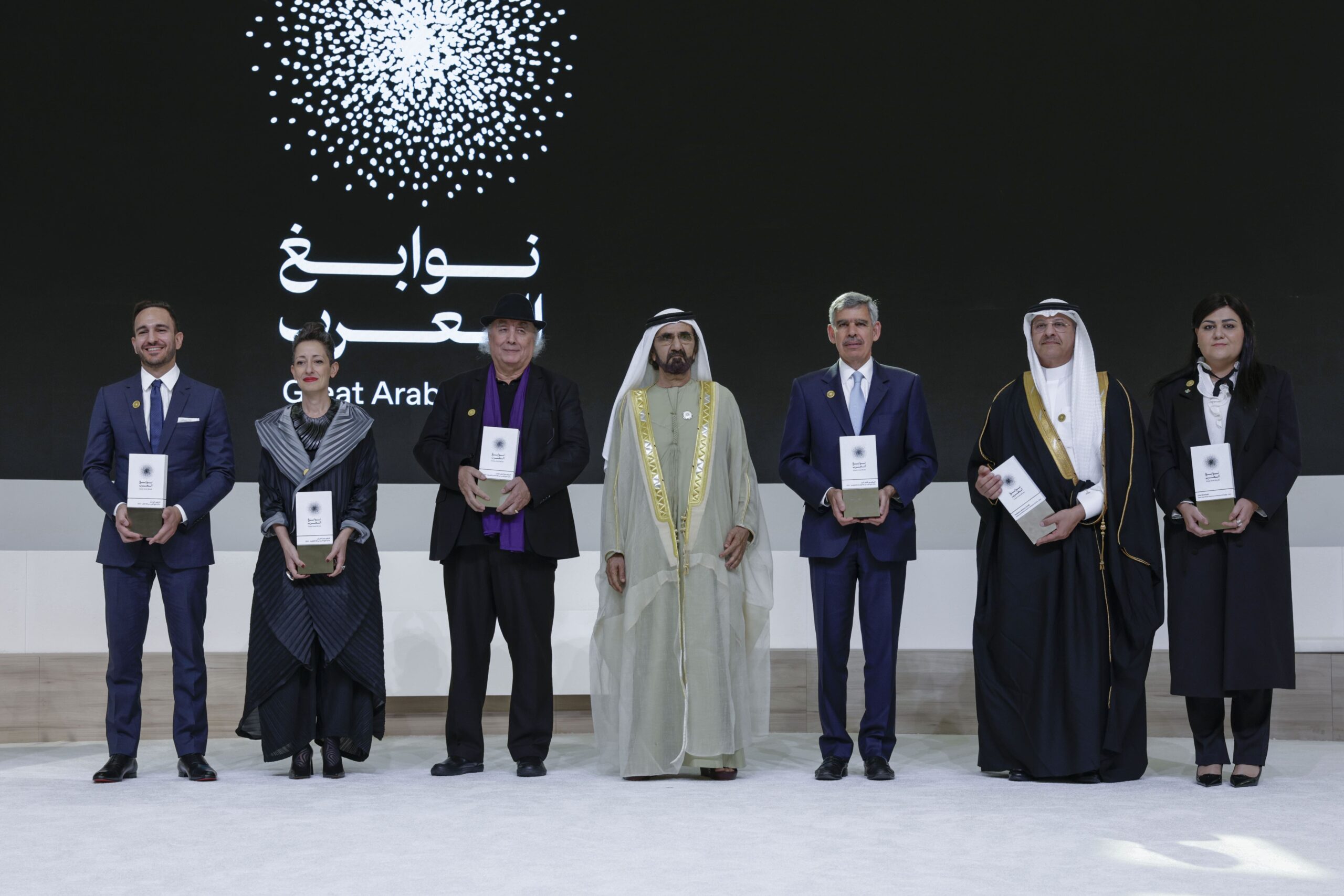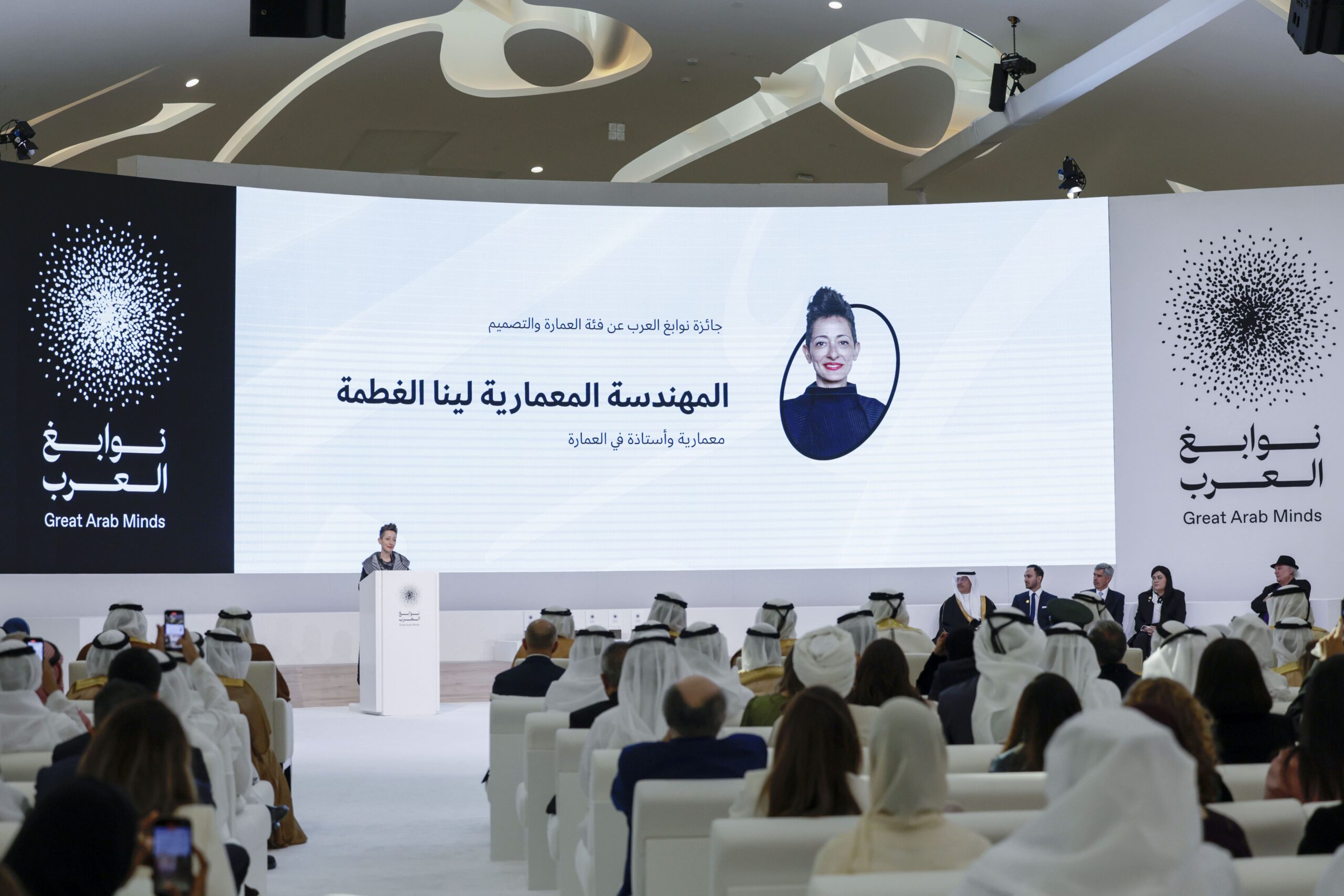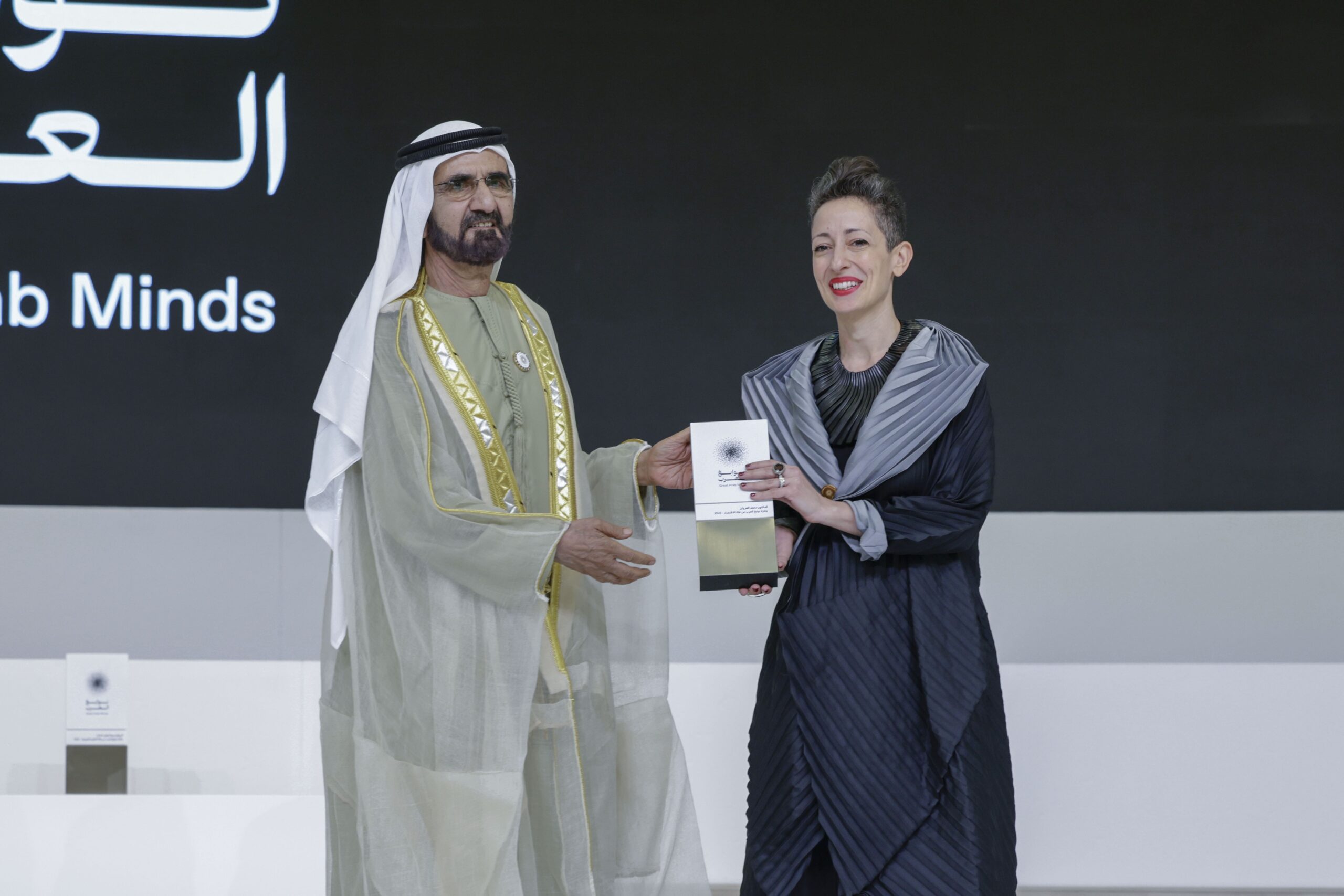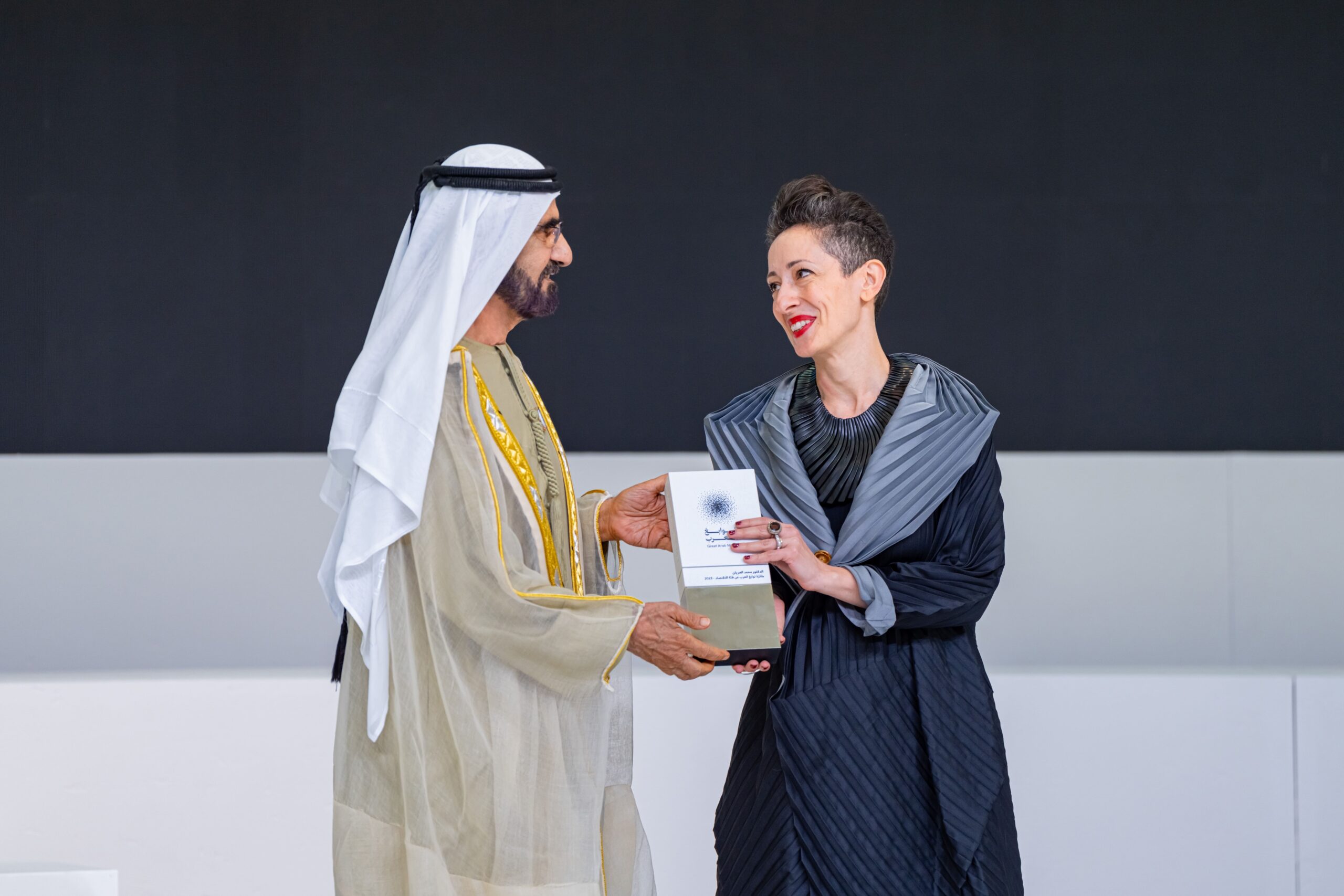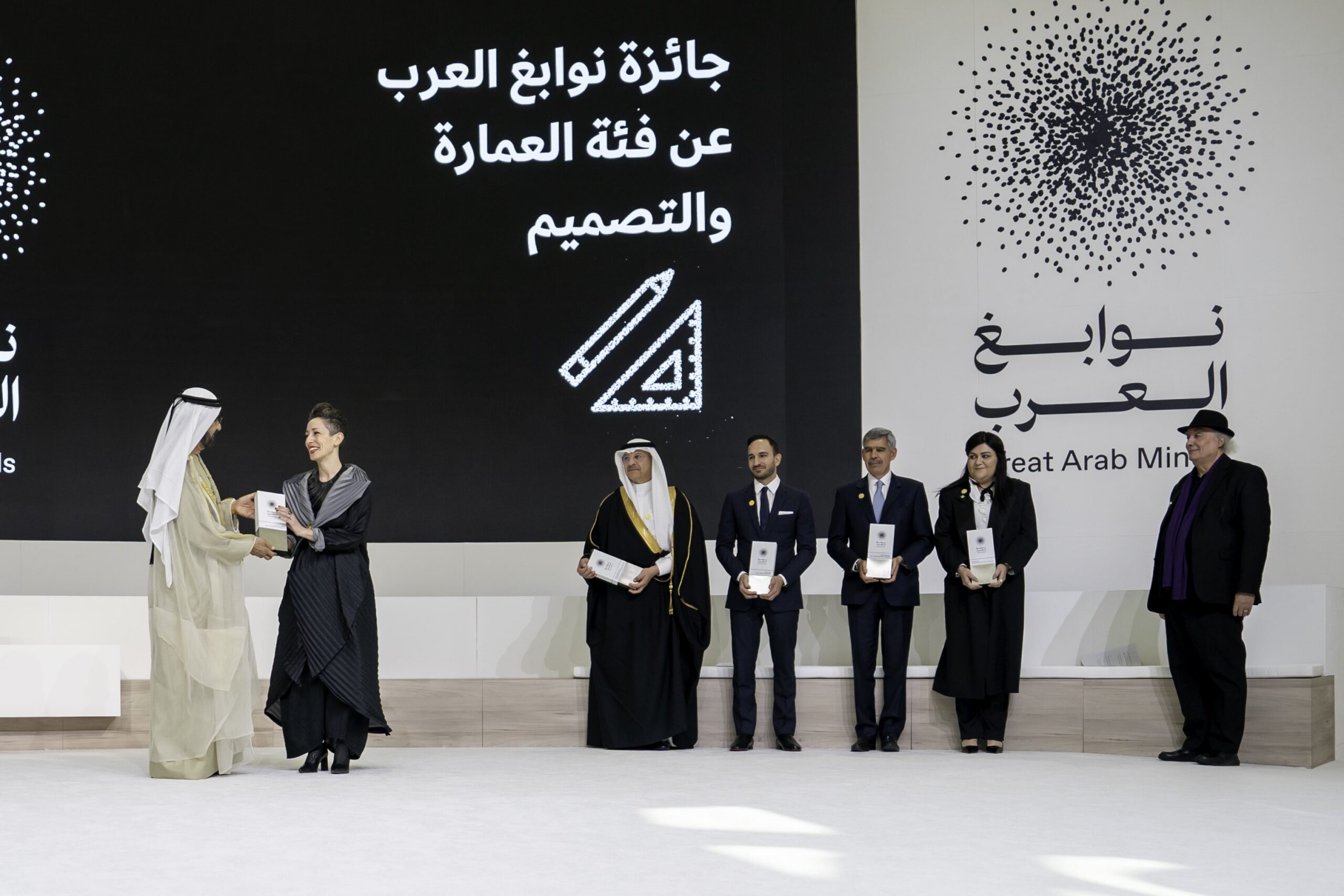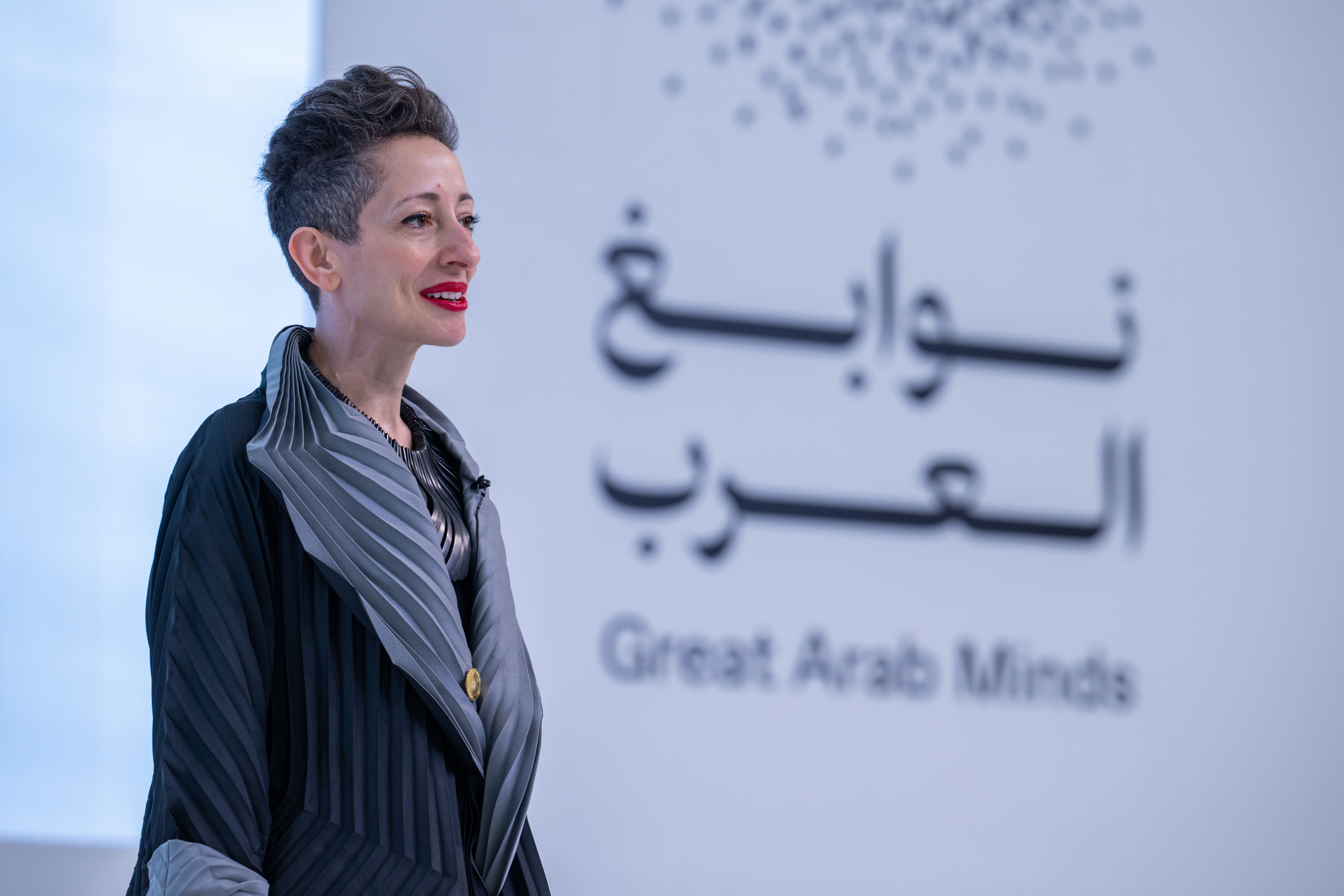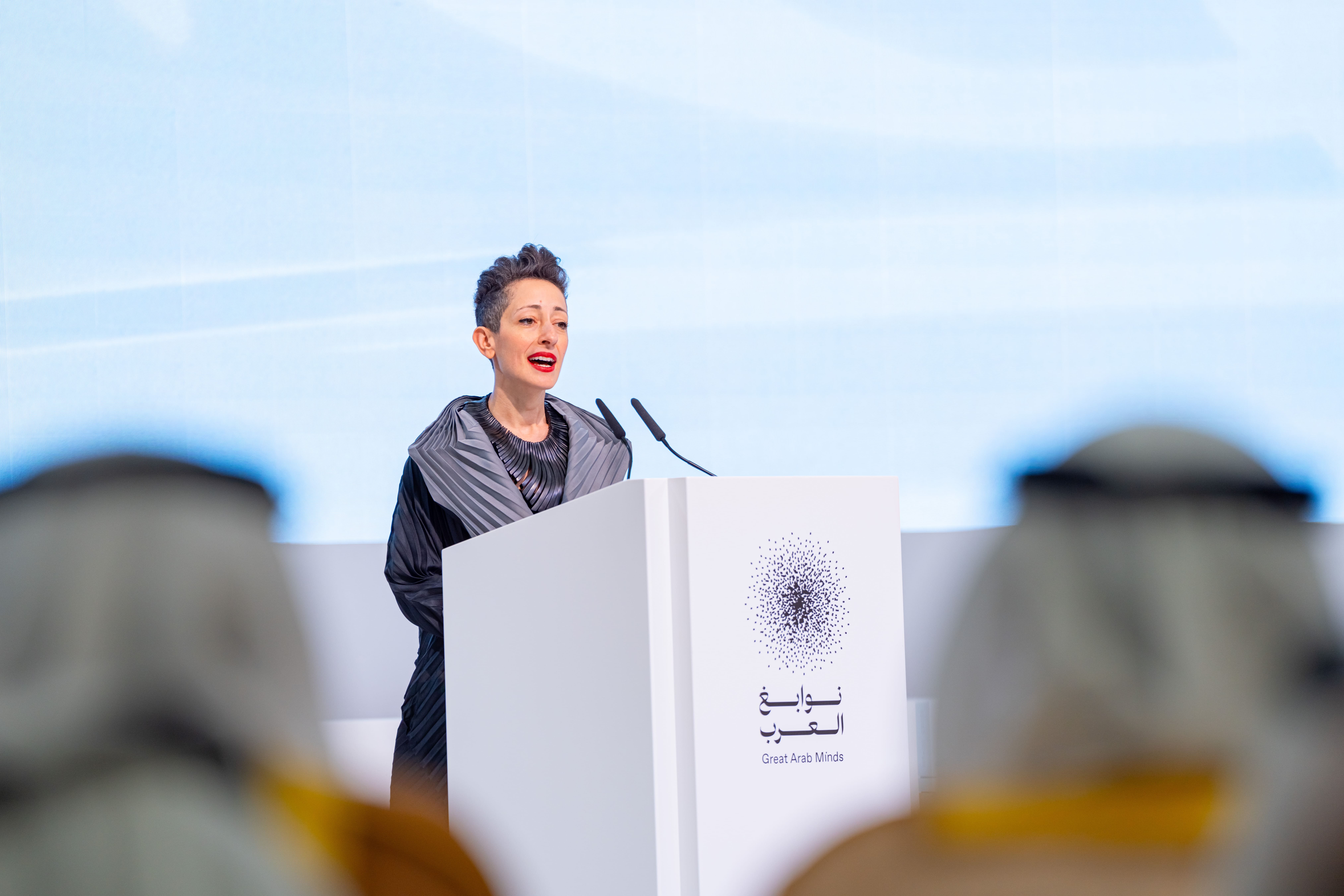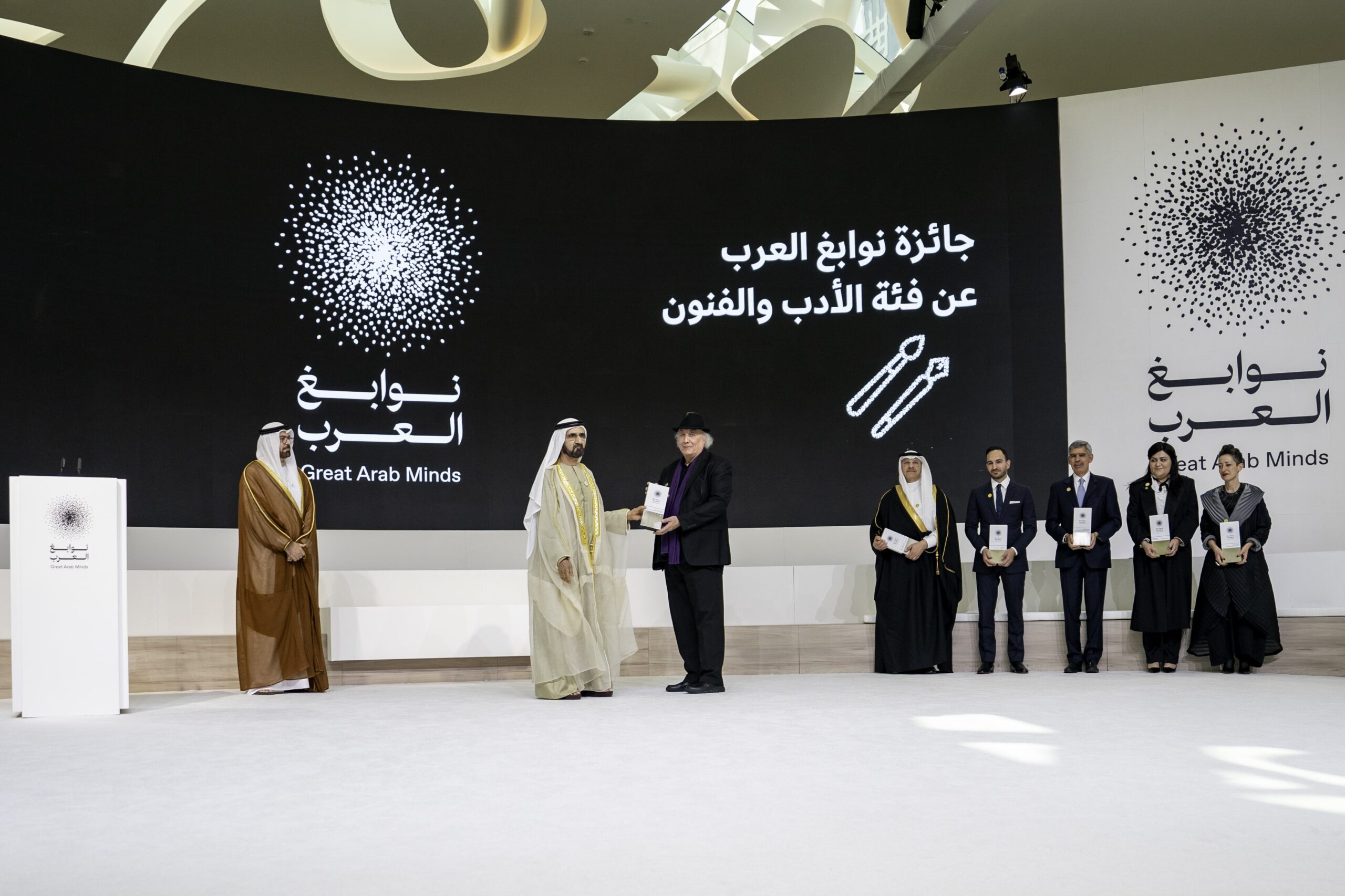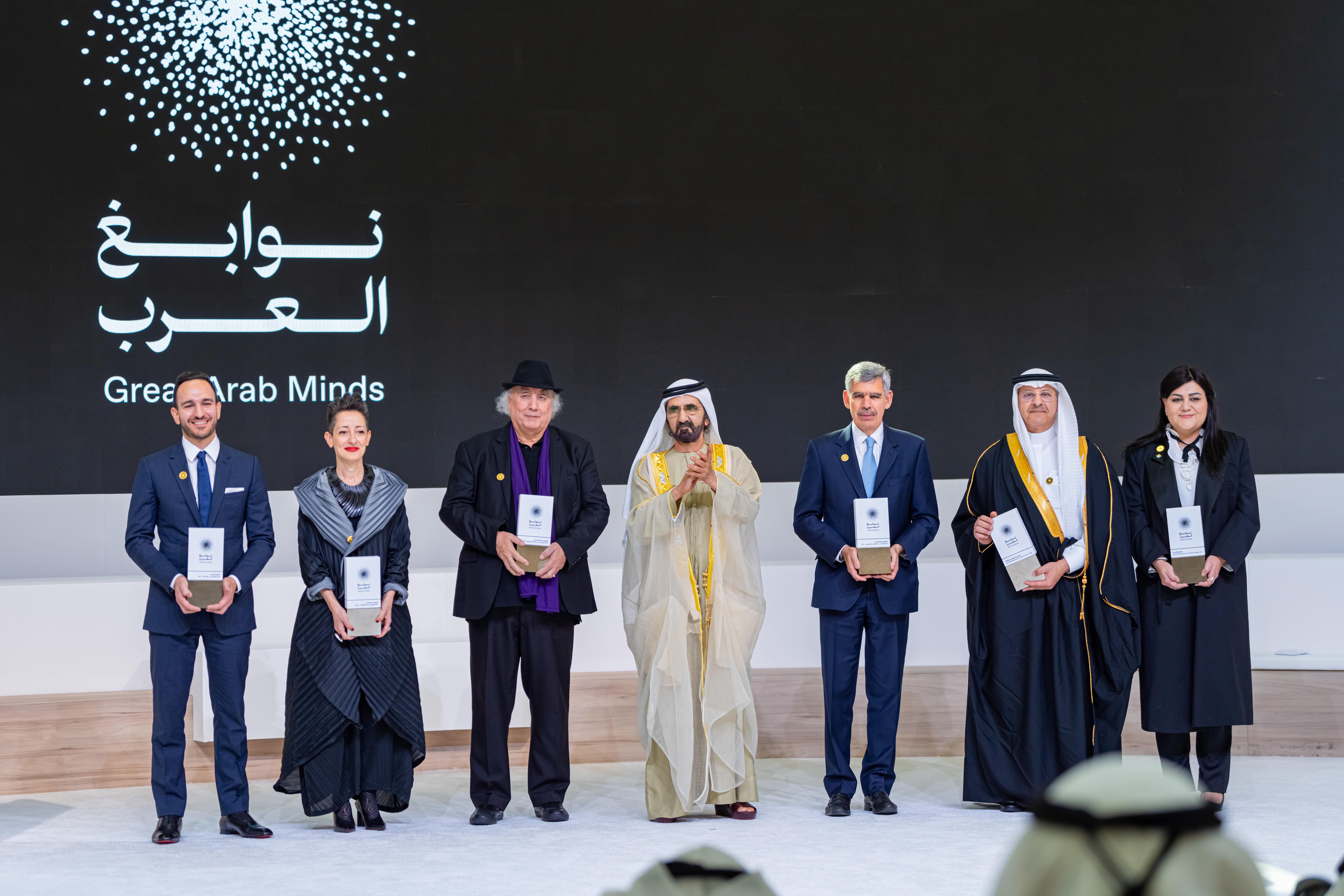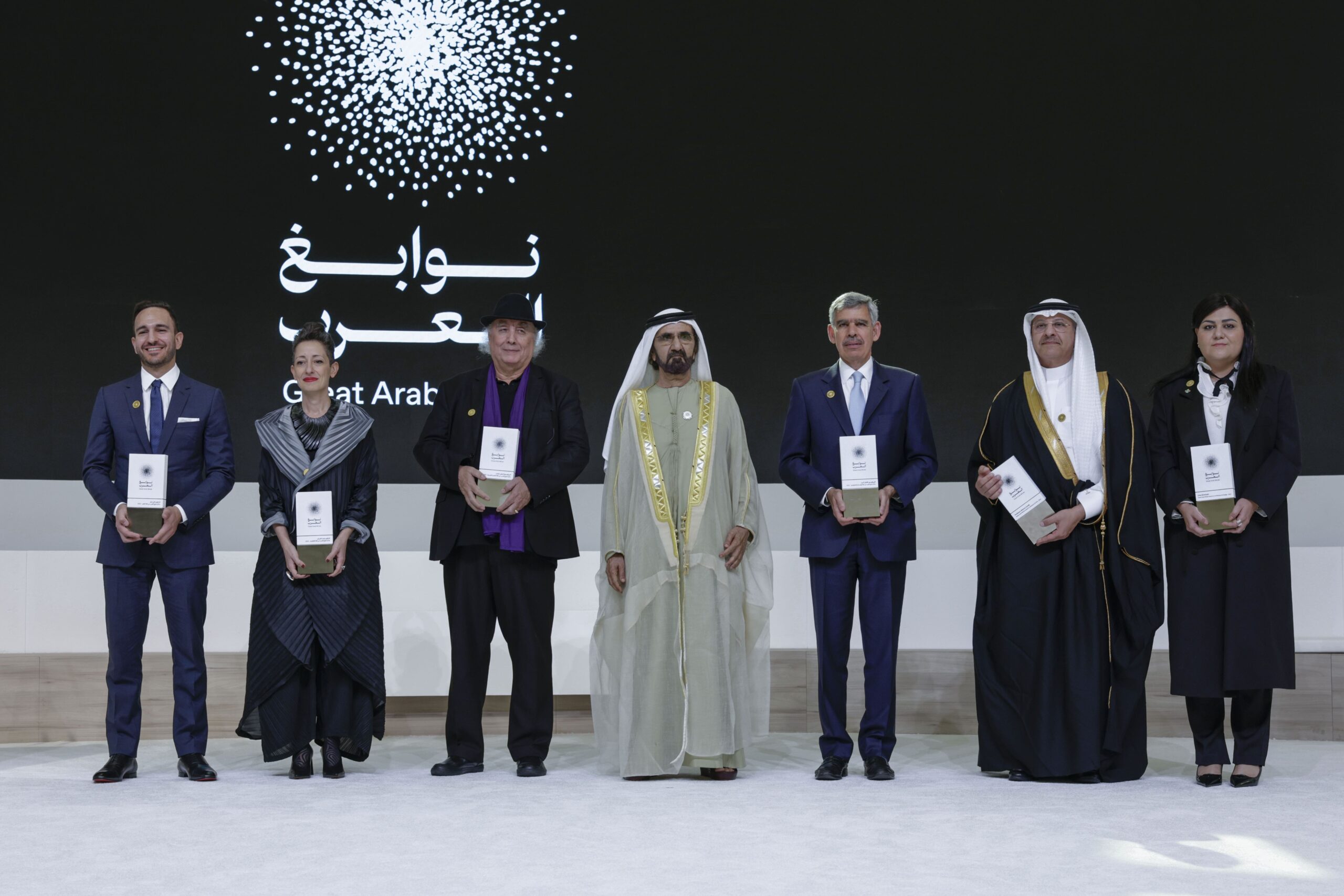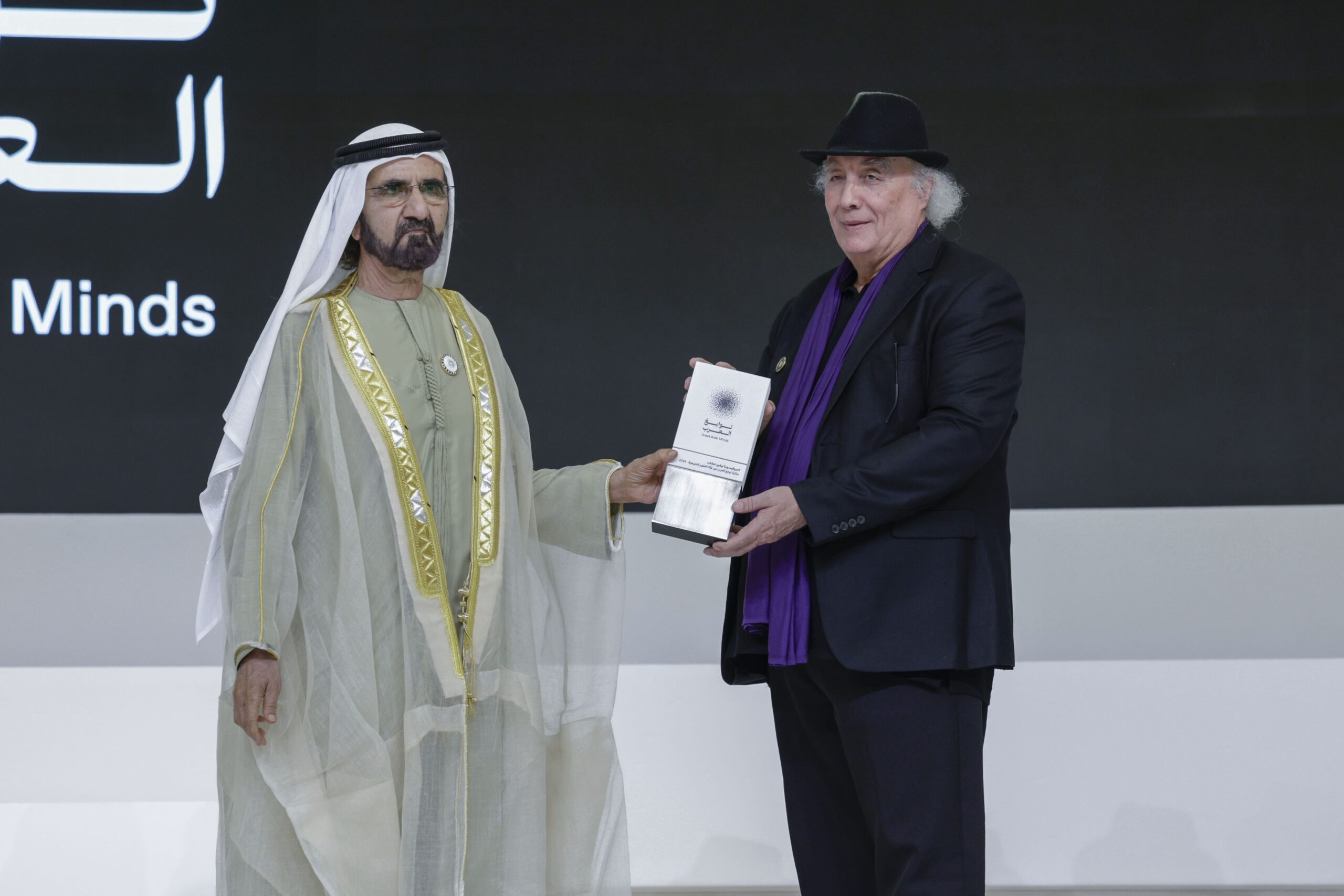Awards Recipients - 2025
His Highness Sheikh Mohammed bin Rashid Al Maktoum announced the winners of the Great Arab Minds Award in its third edition. The winners are Doctor Nabil Seidah recipient of the Great Arab Minds in Medicine, Professor Majed Chergui recipient of the Great Arab Minds in Engineering and Technology, Professor Badi Hani recipient of the Award in Economics, Professor Majed Chergui recipient of the award in Natural Sciences, and Doctor Suad Amiry in the field of Architecture and Design, and lastly Professor Charbel Dagher recipient of the award in Literature and Arts.
The Great Arab Minds initiative aims to honor outstanding individuals in the Arab world and highlight their supportive roles in reigniting the Arab region's civilization drive. The initiative provides support to Arab Great Minds to enhance their outreach and their achievements locally, regionally, and globally
The Great Arab Minds initiative aims to honor outstanding individuals in the Arab world and highlight their supportive roles in reigniting the Arab region's civilization drive. The initiative provides support to Arab Great Minds to enhance their outreach and their achievements locally, regionally, and globally.
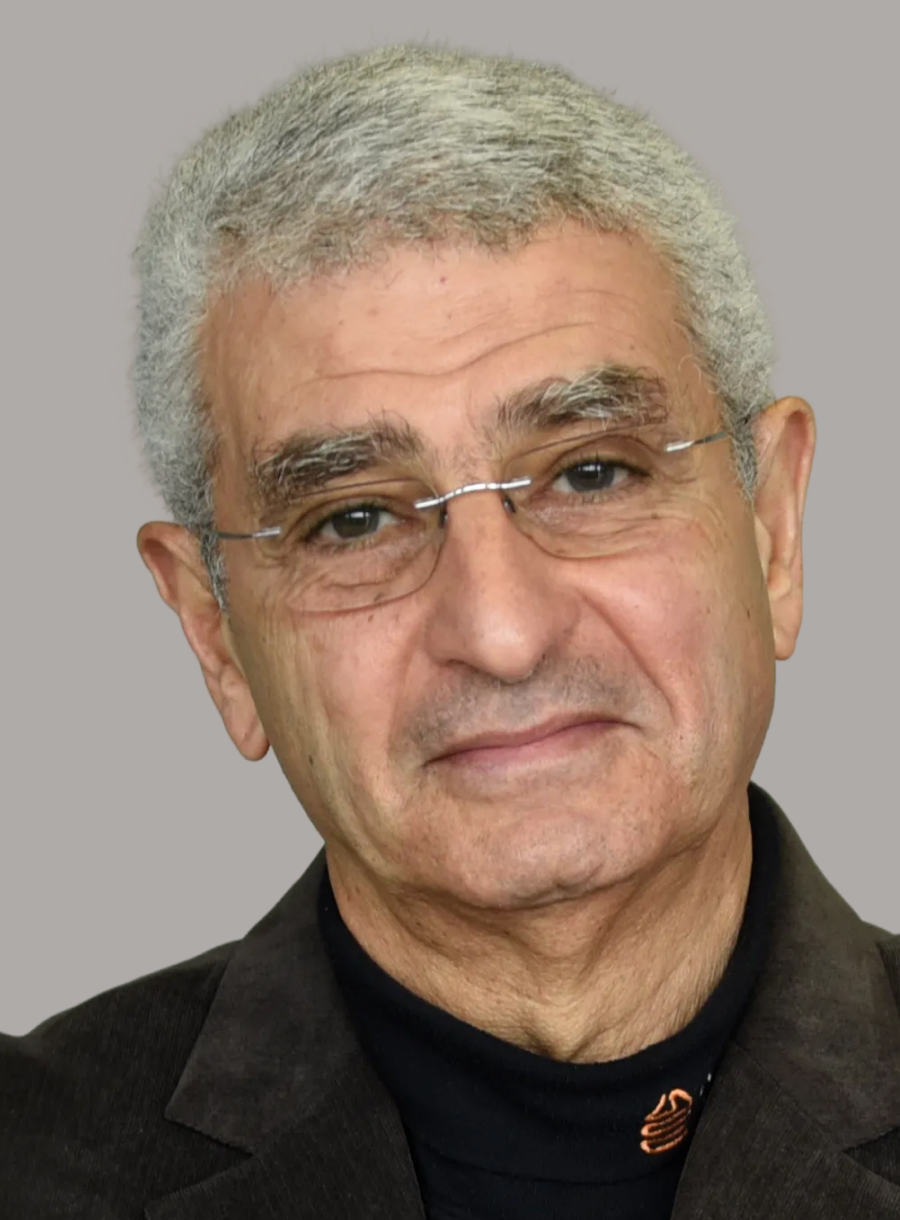
Doctor Nabil Seidah

Director, Biochemical Neuroendocrinology Research Unit Montreal Clinical Research Institute
The Great Arab Minds Award in Medicine for 2025 is ,awarded to Dr. Nabil Seidah in recognition of his ,pioneering contributions to improving heart health and ,understanding how the body regulates cholesterol. He ,has focused on key biological processes that determine ,how the body handles fats, work that helped reduce ,heart attack and stroke risks.,A major milestone in his work was the discovery of ,PCSK9, an enzyme that plays a major role in controlling ,“bad” cholesterol in the blood. He found that its ,overactivity raises cholesterol to dangerous levels. This ,discovery enabled the development of PCSK9 inhibitors, ,medications that lower cholesterol and reduce heart ,disease risk.,With more than 820 publications, Dr. Seidah’s work also ,advanced understanding of fatty-liver disease, obesity, ,cancer, and viral entry into cells, paving the way for new ,medical treatments.,
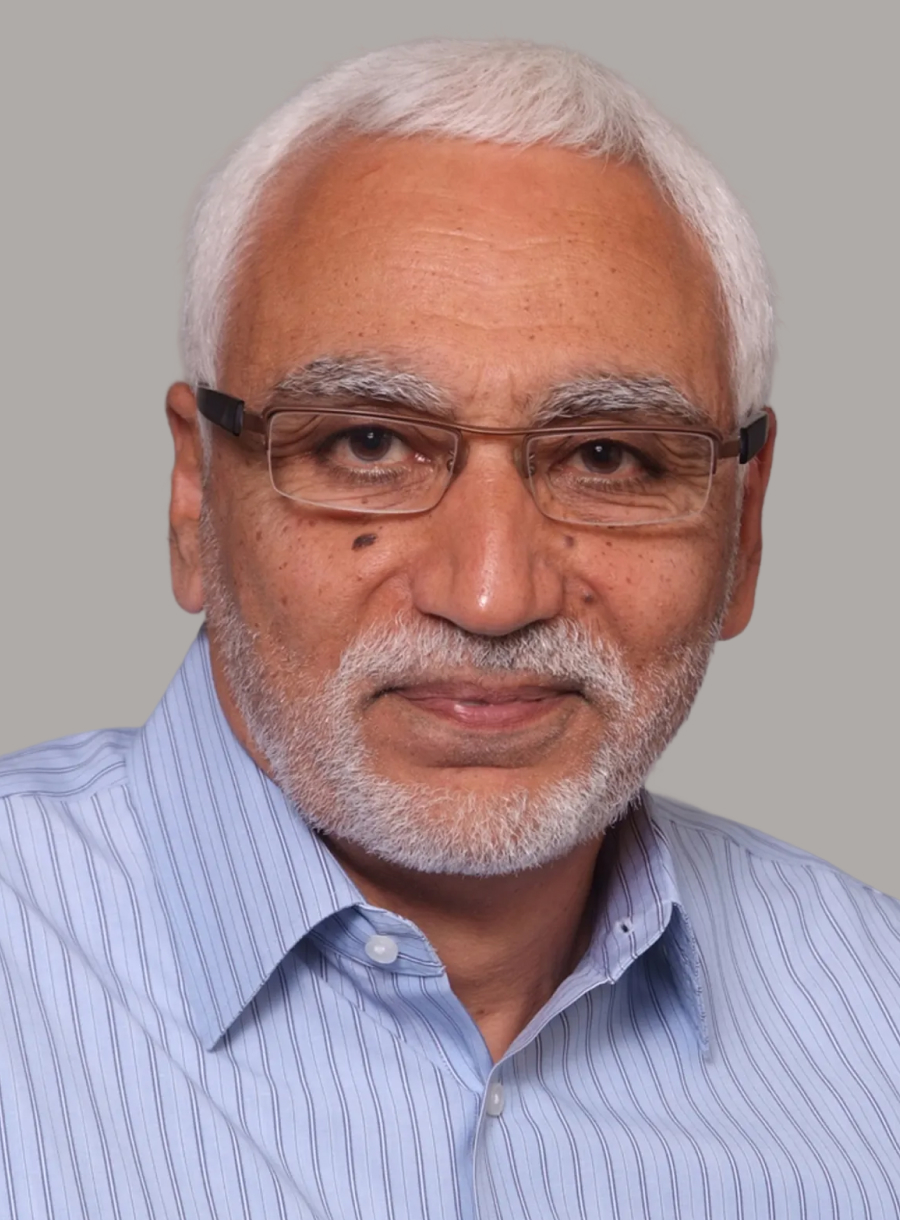
Professor Abbas El Gamal

Hitachi America Professor in the School of Engineering at Stanford University
The Great Arab Minds Award in Engineering and ,Technology for 2025 is awarded to Professor Abbas El ,Gamal in recognition of his contributions to Network ,Information Theory, which advanced the understanding ,of digital communications and contributed to modern ,network research worldwide.
Professor El Gamal led key developments in Field ,Programmable Gate Arrays (FPGAs), driving progress in ,circuit design and computing. He also contributed to ,Routing Architecture used in FPGA systems and played a ,leading role in developing CMOS image sensors, the core ,technology behind smartphone cameras and modern ,imaging devices. His work has helped develop ,technologies that support digital sensing, computing, ,and communication systems.
He has published more than 230 research papers and ,authored influential works, including Network ,Information Theory, widely used by students and ,researchers globally.
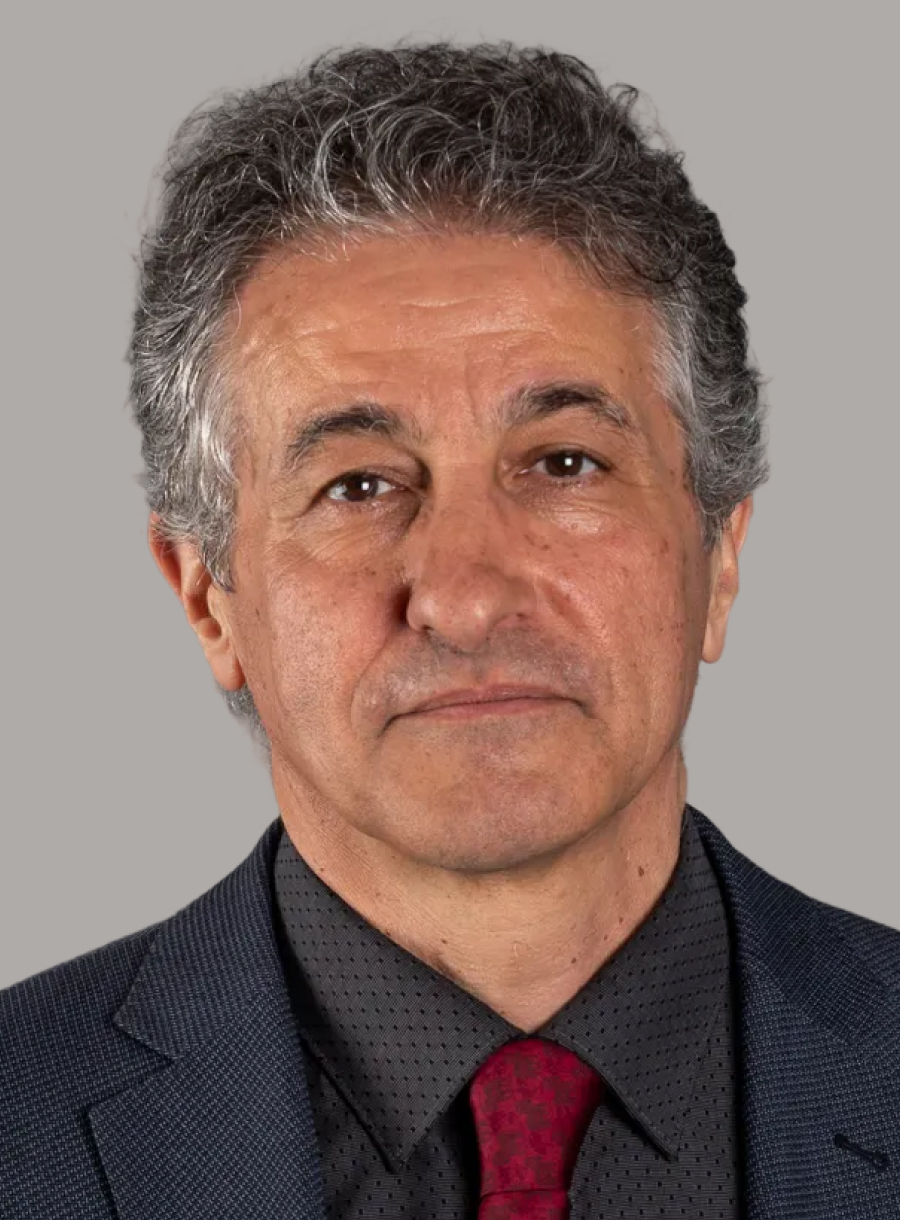
Professor Majed Chergui

Emeritus Professor at the Swiss Federal Institute of Technology in Lausanne (EPFL)
The Great Arab Minds Award in Natural Science for 2025 ,is awarded to Professor Majed Chergui in recognition of ,his major contributions to advancing the field of ,light–matter interactions, and for developing advanced ,techniques that enabled scientists to observe ultrafast ,atomic-scale motion with great precision. He focused on ,molecular dynamics at femtosecond scales, enabling ,deeper scientific exploration.
He helped develop ultrafast X-ray techniques, advancing ,global insight into photo-induced processes and ,opening new horizons in physics, chemistry, materials ,science, and renewable energy research. He also ,contributed to developing powerful experimental tools ,such as ultrafast two-dimensional ultraviolet ,spectroscopy and ultrafast circular dichroism ,spectroscopy.
Professor Chergui has published more than 450 ,scientific publications, with over 23,000 citations, ,covering ultrafast spectroscopy, molecular behavior, and ,materials science.,
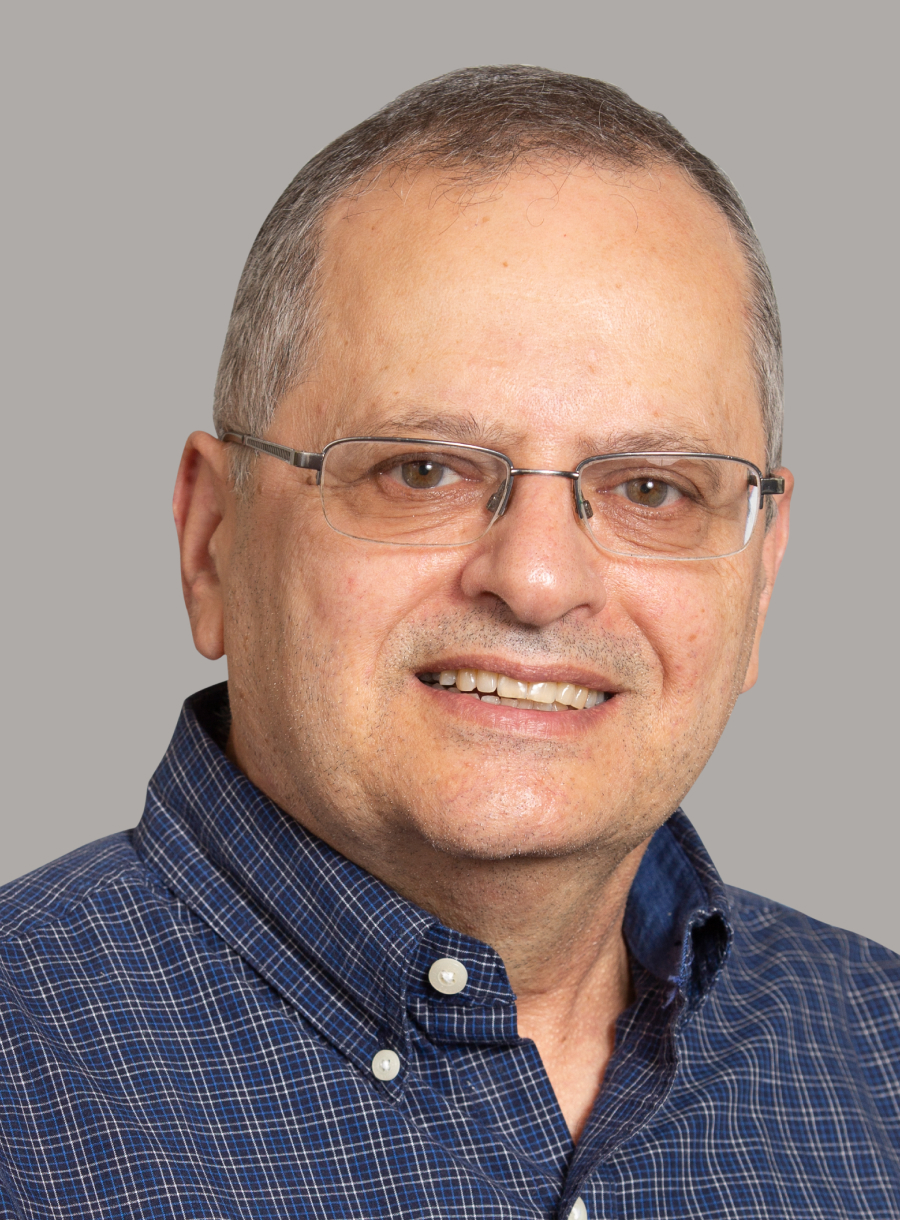
Professor Badi Baltagi

Professor of Finance and Economics at Princeton University
The Great Arab Minds Award in Economics for 2025 is ,awarded to Professor Badi Baltagi in recognition of his ,pioneering contributions to econometrics and economic ,analysis, particularly in the field of panel data ,econometrics. His work enabled deeper and more ,accurate economic analysis by combining data across ,time and sources.,Professor Baltagi’s research has helped establish the ,theoretical and applied foundations of panel data ,econometrics, which advanced economic analysis in ,areas related to wages, health, and economic ,forecasting.,He has published more than 200 research papers and ,authored influential academic books, most notably ,Econometric Analysis of Panel Data, considered a ,reference for researchers in economics worldwide, and ,has conducted numerous studies examining the effects ,of economic policies on healthcare services, wage levels, ,and economic development.
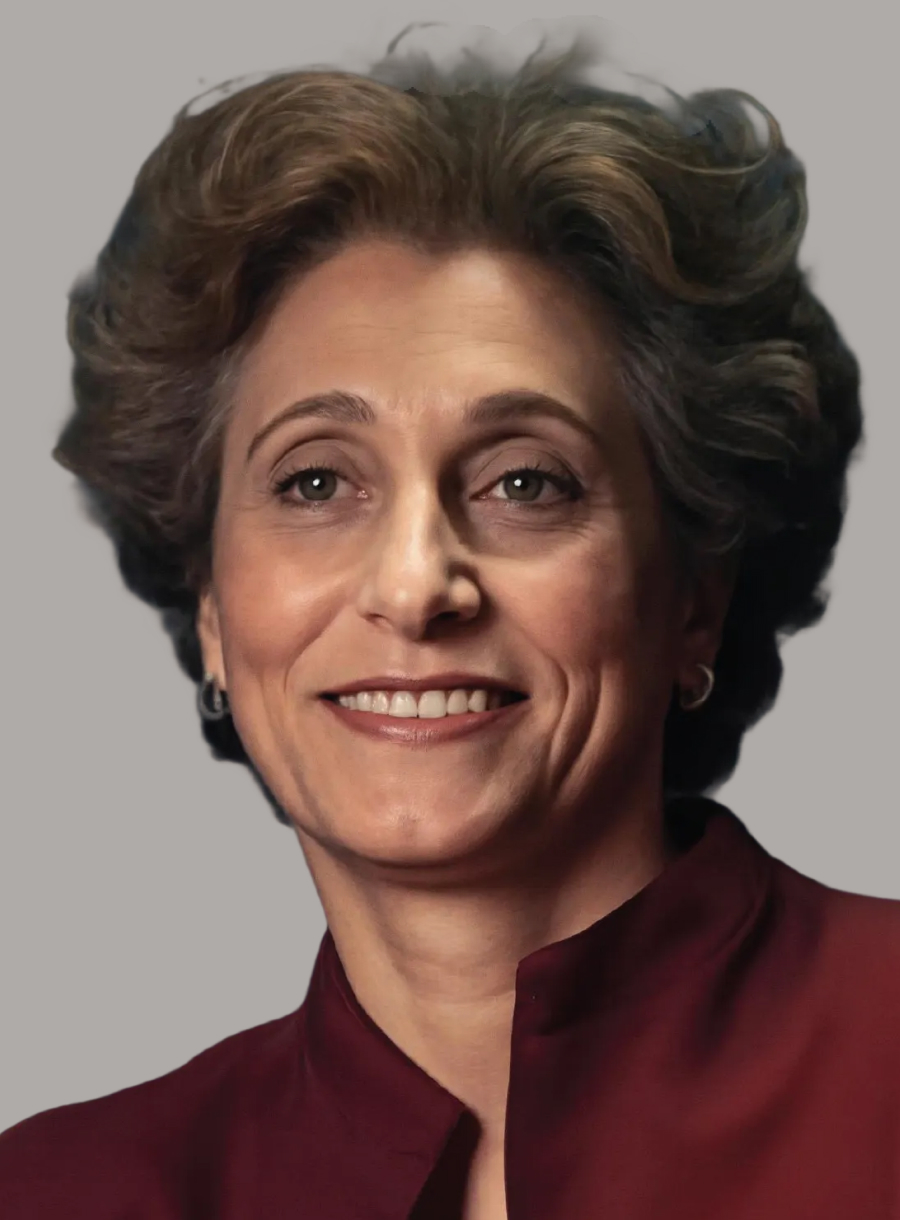
Doctor Suad Amiry

Founder and Director of Riwaq Center
The Great Arab Minds Award in Architecture and Design ,for 2025 is awarded to Dr. Suad Amiry, in recognition of ,her work in preserving Palestinian architectural heritage, ,and in documenting, restoring, and reusing historic ,buildings in ways that serve communities and reinforce ,cultural identity. Her efforts were central to protecting ,heritage through the restoration of many historic ,structures.,Dr. Amiry took part in one of Palestine’s largest ,documentation projects, creating a registry of over ,50,000 historic buildings, reviving 50 historic centers, ,and providing work opportunities while training ,craftsmen in traditional building materials. She also led ,projects to revive villages and involve residents in ,restoring their homes.,She has also produced important research on ,Palestinian architecture, documenting traditional ,houses with exceptional detail, including stonework, ,flooring, decorative elements, and architectural layouts.
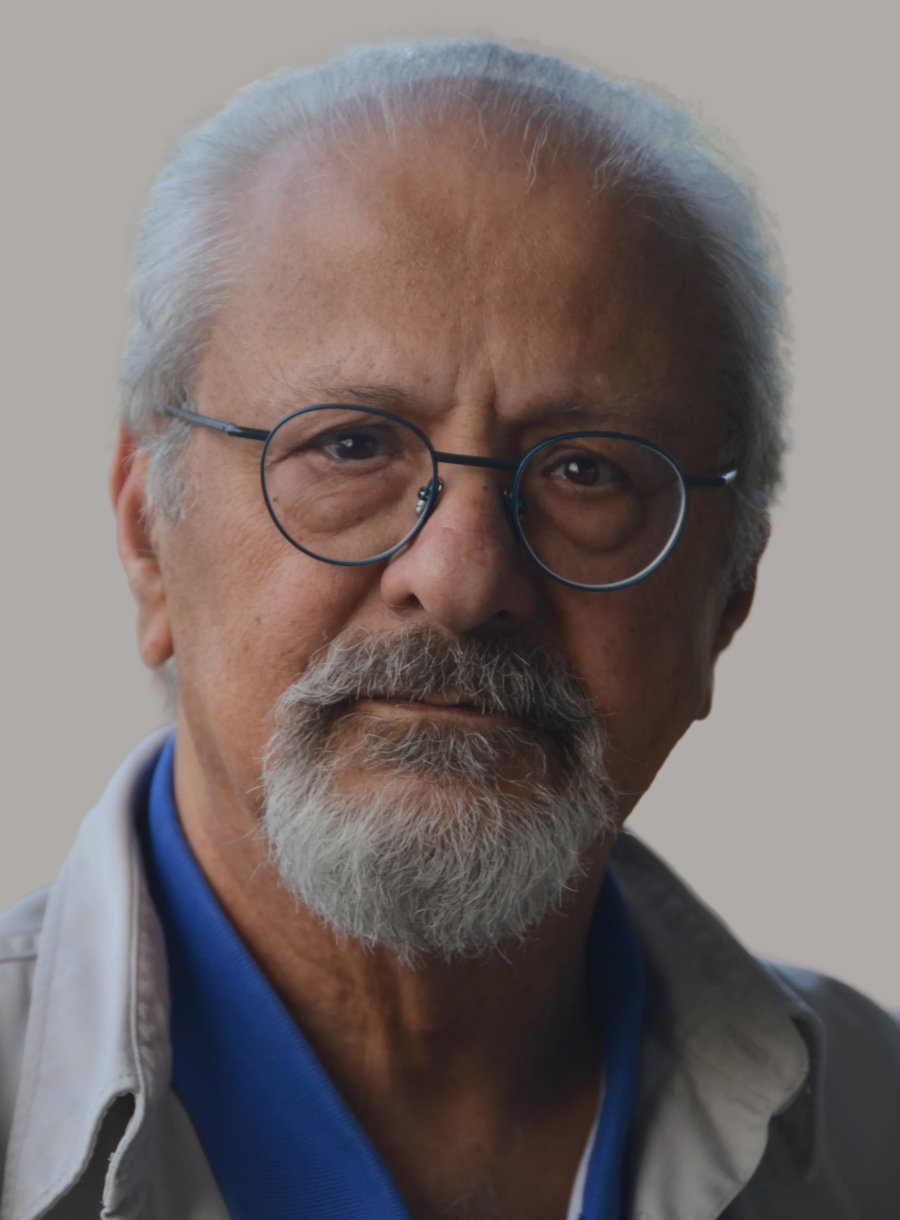
Professor Charbel Dagher

Professor of Arabic Literature
The Great Arab Minds Award in Literature and Arts for 2025 is ,awarded to Professor Charbel Dagher in recognition of his ,significant contributions to the study of Arabic literature and Arab ,art. His work has deepened understanding of Arab cultural heritage ,within its cultural and artistic contexts.,Professor Dagher has published more than ninety books across ,poetry, the novel, literary studies, and Arab art. His work explores ,Arabic literature and art as evolving expressions shaped by ,historical, social, and cultural contexts, highlighting modern Arabic ,poetry, the early Arabic novel and theatre, and major artistic ,transformations.,Professor Dagher’s studies form a key contribution linking Arabic ,literature and art to broader civilizational contexts, while expanding ,the global reach of Arab culture.
Awards Recipients - 2024
His Highness Sheikh Mohammed bin Rashid Al Maktoum announced the winners of the Great Arab Minds Award in its seccond edition. The winners are Professor Yasmine Belkaid recipient of the Great Arab Minds in Medicine, Professor Oussama Khatib recipient of the Great Arab Minds in Engineering and Technology, Professor Yacine Aït-Sahalia recipient of the Award in Economics, Professor Omar Yaghi recipient of the award in Natural Sciences, and Architect Sahel Al Hiyari in the field of Architecture and Design, and lastly Artist Dia al-Azzaw recipient of the award in Literature and Arts.
The Great Arab Minds initiative aims to honor outstanding individuals in the Arab world and highlight their supportive roles in reigniting the Arab region's civilization drive. The initiative provides support to Arab Great Minds to enhance their outreach and their achievements locally, regionally, and globally.
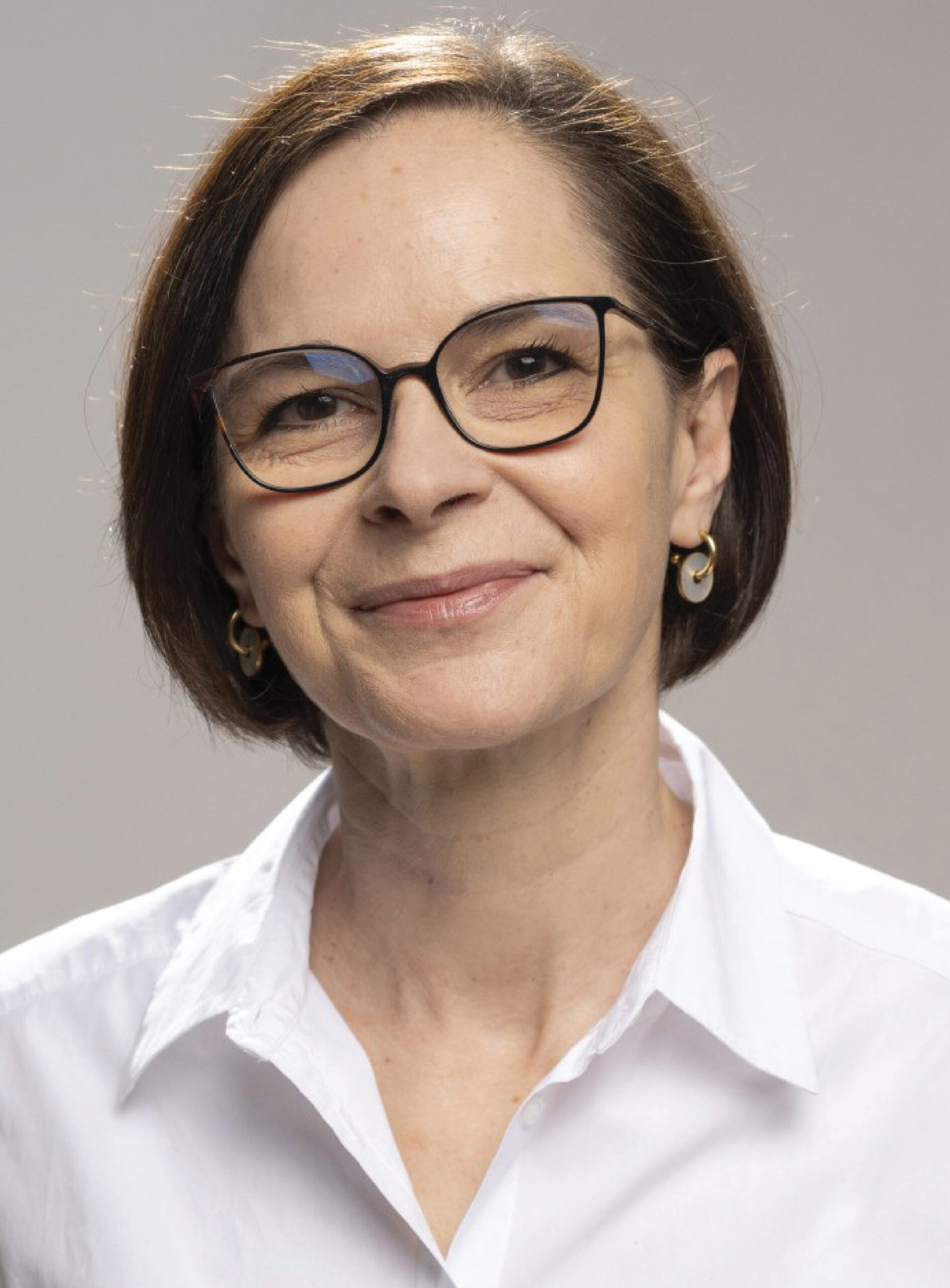
Professor Yasmine Belkaid

President of Institute Pasteur
Born and educated in Algiers, Algeria, Professor Yasmine Belkaid excelled in her academic journey. She graduated from the University of Science and Technology Houari Boumediene with a bachelor’s and master’s degree in biochemistry before obtaining a Master of Advanced Studies (DEA) from Paris-Sud University. She later earned her PhD in immunology from the Institut Pasteur in Paris, focusing on innate immune responses to leishmania infection.
Following the completion of her studies, Professor Belkaid moved to the United States, where she held a postdoctoral fellowship at the National Institutes of Health (NIH) in Bethesda, Maryland, focusing on immune regulation during infection. In 2002, she joined the Children's Hospital Research Foundation of Cincinnati to establish her research program. She later joined the National Institute of Allergy and Infectious Diseases (NIAID) in 2005, where she initially served as department chair of the Laboratory of Host Immunity and Microbiome before becoming the Director of the NIH Center for Human Immunology. In 2024, she was appointed President of the Institut Pasteur, a prestigious non-profit foundation dedicated to the study of biology, micro-organisms, diseases, and vaccines in Paris, France.
After years of pioneering research in immunology and microbiology, Professor Belkaid has become an internationally recognized expert in host-microbe interactions. She has published more than 220 scientific papers on infection, immunity, microbiota, and nutrition, with her research revolutionizing the understanding of microbiota’s role in immunity and chronic inflammatory diseases such as Crohn’s disease and psoriasis. Her contributions have significantly shaped the field, helping to develop therapeutic strategies that harness microbiota to combat immune-related diseases.
Professor Belkaid came to the Institut Pasteur not only with her expertise in immunology but also as a leader in scientific governance. She has served as the Director of the NIAID Microbiome Program, a member of the National Academy of Sciences, and a fellow of the National Academy of Medicine and the American Academy of Arts and Sciences.
She holds numerous memberships in national and international professional organizations and is a widely recognized speaker on the role of microbiota in human health. Her contributions extend beyond research, as she actively advocates for gender equity in science, emphasizing the importance of mentorship and institutional support for young researchers.
Professor Belkaid is an international lecturer in immunology and a collaborator in multiple research projects, including studies on how microbiota influences disease development and immunity. Her discoveries have had a transformative impact on understanding human health, making her one of the most influential scientists in her field today.
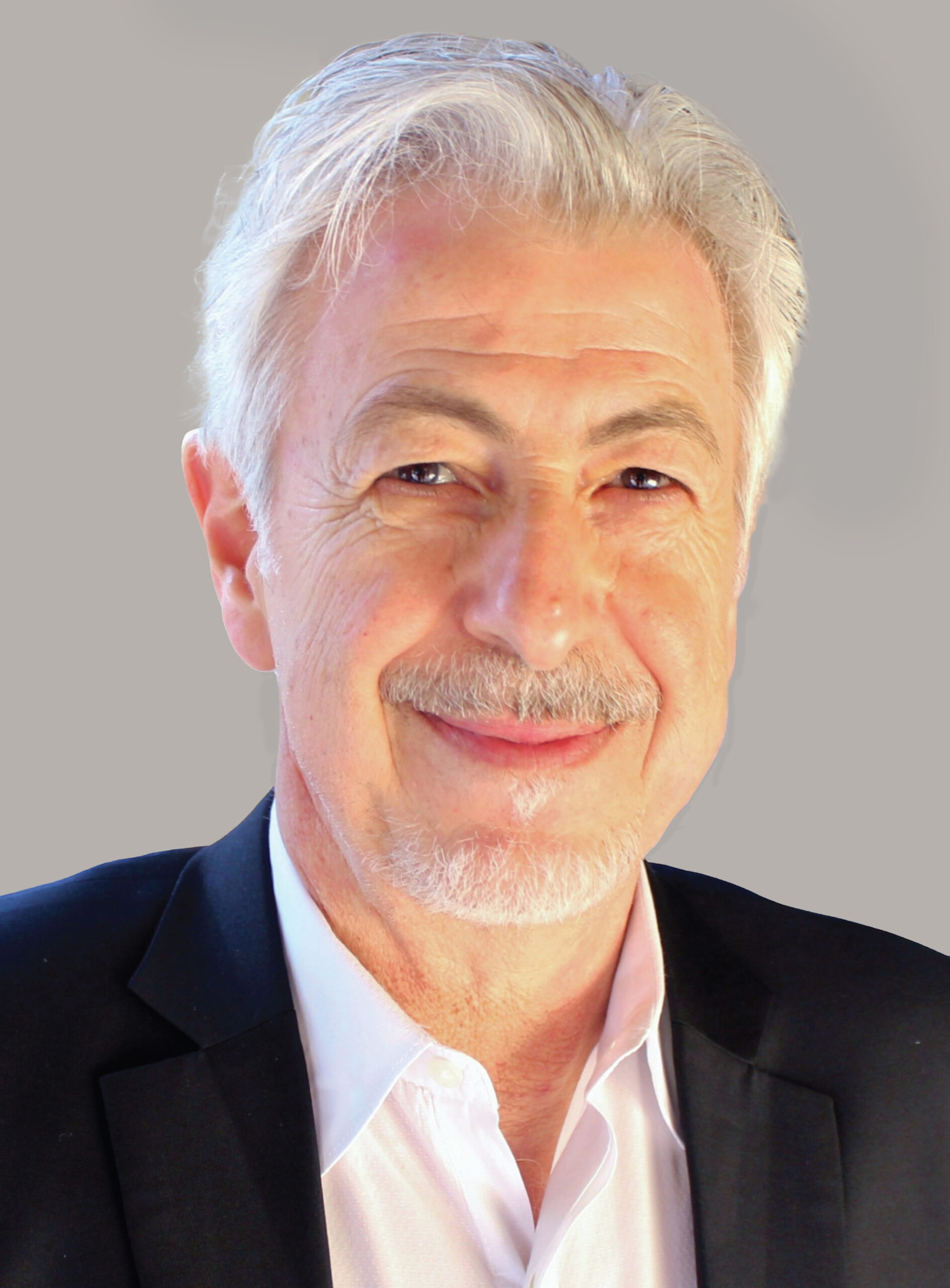
Professor Oussama Khatib

Professor of Computer Science and Director of the Robotics Laboratory at Stanford University
Born and educated in Aleppo, Syria, Professor Oussama Khatib excelled in his academic journey. He completed his higher education in France, earning a Bachelor of Science from the University of Montpellier in 1972, followed by a master’s degree in Electronics, Electrotechnics, and Automation. He then received a Specialized Diploma from Sup’Aero in Toulouse in 1976, where he later earned a PhD in Automation and Systems.
Since 1982, Professor Khatib has been a faculty member at Stanford University, initially joining as a Research Associate in the Computer Science Department. He has served as a Professor since 2000 and currently leads Stanford’s research on robotics as the Director of the Robotics Laboratory. His work has focused on developing robots that interact safely and cooperatively with humans and the physical world. His seminal research introduced novel obstacle avoidance strategies for manipulators and mobile robots, including the artificial potential field concept, which remains influential in the field.
After years of pioneering research, Professor Khatib has become an internationally recognized expert in robotics. His work has led to groundbreaking advancements in elastic band models, operational space formulation, and haptic interaction. His contributions have significantly influenced various applications, including healthcare, smart cities, industry, and deep-sea and space exploration. One of his major achievements is the development of the OceanOne robot, a humanoid robotic avatar for deep-sea exploration that integrates advanced haptics, stereo vision, and bimanual manipulation, enabling robots to mimic human capabilities in underwater environments. His lab also played a key role in the development of holonomic mobile robotic platforms, leading to the commercialized Nomad XR4000.
Professor Khatib is recognized not only for his research but also for his leadership in robotics. He currently serves as President of the International Foundation of Robotics Research (IFRR) and is an IEEE Fellow. He has received numerous prestigious awards, including the IEEE Robotics and Automation Pioneering Award, the IEEE/RAS George Saridis Leadership Award, the Distinguished Service Award, the Japan Robot Association (JARA) Award, the Rudolf Kalman Award, the IEEE Technical Field Award, and the Engelberger Award. In 2018, he was elected to the National Academy of Engineering for his contributions to robotic systems operating in complex, unstructured environments.
Beyond his research, Professor Khatib continues to inspire the next generation of roboticists through teaching and mentorship. He delivers courses such as ‘Introduction to Robotics,’ ‘Experimental Robotics,’ and ‘Advanced Robotics’ at Stanford and has served as a visiting professor in institutions across France, Italy, Japan, Singapore, and Switzerland, ensuring his expertise is shared globally.
Professor Khatib’s visionary research and innovations have redefined human-machine interactions, pushing the boundaries of robotics and shaping the future of automation and artificial intelligence.,
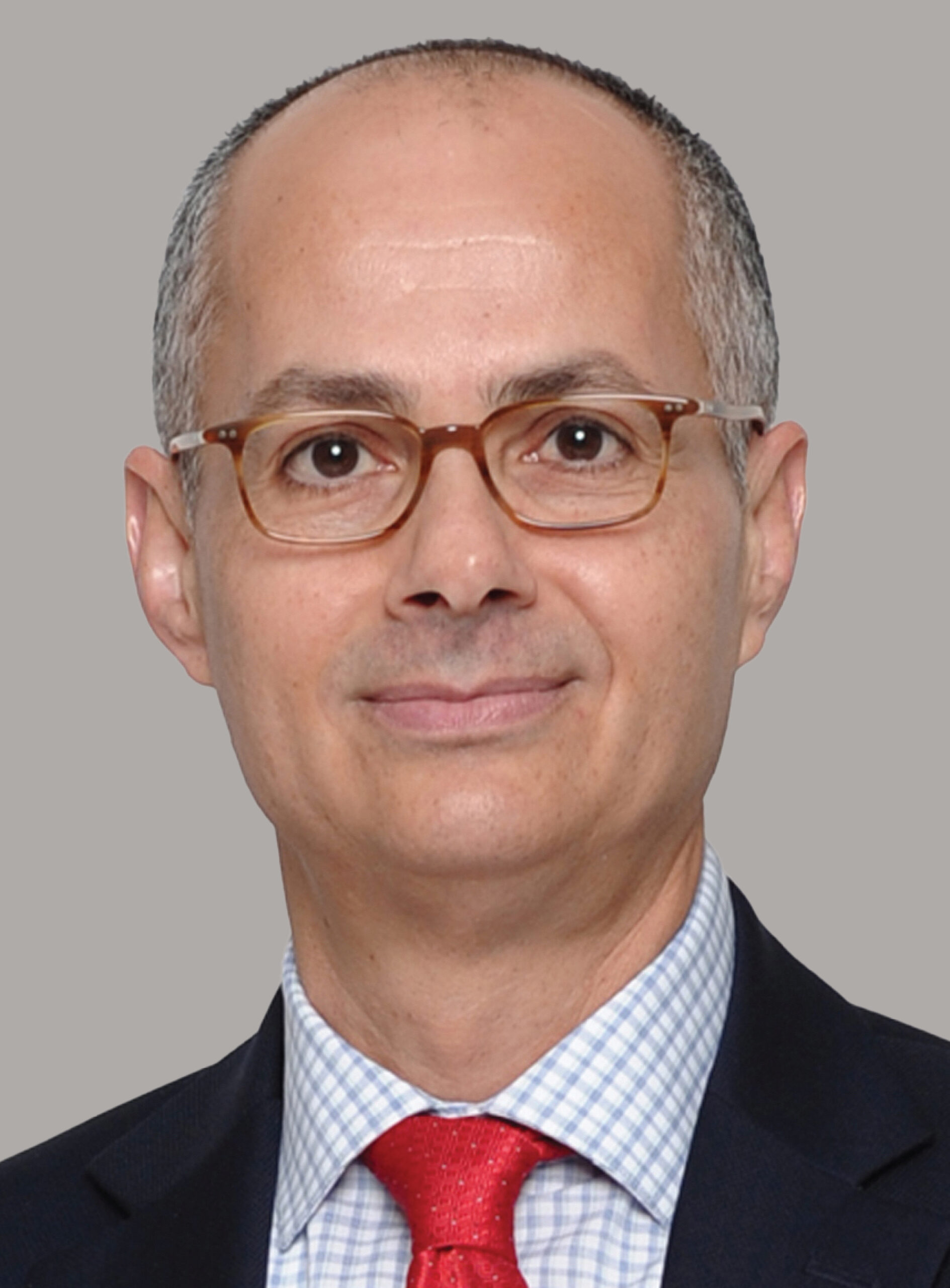
Professor Omar Yaghi

Professor of Chemistry at the University of California, Berkeley
Born and educated in Amman, Jordan, Professor Omar M. Yaghi is a pioneering chemist who has revolutionized materials science. He earned his bachelor’s degree in chemistry from the State University of New York at Albany in 1985, followed by a PhD from the University of Illinois Urbana-Champaign in 1990, where he received the award for best dissertation. He completed a National Science Foundation postdoctoral fellowship at Harvard University before beginning his academic career at Arizona State University. He later held positions at the University of Michigan and the University of California, Los Angeles, before joining the University of California, Berkeley in 2012 as the James and Neeltje Tretter Chair Professor of Chemistry and Co-Director of the Kavli Energy NanoSciences Institute.
After years of groundbreaking research, Professor Yaghi has become an internationally recognized expert in the field of Reticular Chemistry, a branch of chemistry focused on linking molecular building blocks into open frameworks. He is best known for his work in designing and synthesizing metal-organic frameworks (MOFs) and covalent organic frameworks (COFs), which have exceptionally high surface areas, making them valuable for a range of applications, including gas storage, water harvesting, and enzyme stabilization in healthcare. His work has also led to advancements in hydrogen storage through his company H2MOF, as well as the development of MOFs capable of capturing water from air at humidity levels as low as 10%.
Professor Yaghi’s contributions extend beyond MOFs and COFs to the development of zeolitic imidazolate frameworks (ZIFs), materials with exceptional porosity, stability, and structural order, making them ideal for applications in catalysis and separation processes. His research has resulted in more than 300 publications, over 257,000 citations, and an H-Index of 192, with extensive contributions in top scientific journals, including Nature, Science, and Journal of the American Chemical Society. He also holds over 45 patents in the United States, demonstrating the real-world impact of his discoveries.
Professor Yaghi has collaborated with institutions worldwide, playing a key role in advancing sustainable materials science. He has led research centers such as the Center for Reticular Materials in Japan, the Carbon Capture and Conversion Group in Saudi Arabia, and the Foundry for Reticular Materials for Sustainability in Malaysia. In addition, he has mentored over 70 PhD students, 76 postdoctoral fellows, and 50 visiting scholars, ensuring that his pioneering work continues to inspire future generations.
Recognized globally for his contributions, Professor Yaghi is a member of the US National Academy of Sciences and the German National Academy of Sciences. He has received numerous prestigious awards, including the Wolf Prize in Chemistry, the Prince Sultan Bin Abdulaziz International Prize for Water, and the Albert Einstein World Award of Science. He has also been named a Highly Cited Researcher in Chemistry by Clarivate Analytics and honored by the Materials Research Society and the American Chemical Society.
Professor Yaghi’s pioneering work in Reticular Chemistry has transformed the field of molecular frameworks, offering innovative solutions to global challenges in energy, water, and sustainability. His research continues to shape the future of materials science, solidifying his position as a leading figure in chemistry.

Professor Yacine Aït-Sahalia

Professor of Finance and Economics at Princeton University
Born and educated in Algeria, Professor Yacine Aït-Sahalia is a leading economist recognized for his contributions to financial econometrics. He earned a degree in Mathematics from École Polytechnique in France in 1987, followed by a master’s degree in Economics and Statistics from ENSAE in Paris in 1989. He then pursued a doctorate in Economics at the Massachusetts Institute of Technology (MIT), completing his PhD in 1993 with a dissertation titled Nonparametric Functional Estimation with Applications to Financial Models.
Following his PhD, Professor Aït-Sahalia began his academic career at the University of Chicago’s Graduate School of Business, where he served as a faculty member from 1993 to 1998. He became a Professor of Finance in 1998 before joining Princeton University’s Department of Economics and the Bendheim Center for Finance the same year. He has held the position of Otto A. Hack 1903 Professor of Finance and Economics since 2002 and was the founding director of the Bendheim Center for Finance, serving from 1998 to 2014.
After years of pioneering research, Professor Aït-Sahalia has become an internationally recognized expert in financial econometrics, particularly in estimating and testing continuous-time models in financial economics. His research has advanced the modeling of high-frequency financial data and volatility estimation, offering innovative econometric techniques to analyze market fluctuations. His influential papers, including Testing Continuous-Time Models of the Spot Interest Rate and A Tale of Two Time Scales, introduced novel methods to minimize microstructure noise, improving risk management and financial analysis. More recently, he has contributed to the development of implied stochastic volatility models for option pricing in collaboration with Chenxu Li and Chen Xu Li.
Beyond research, Professor Aït-Sahalia has played a significant role in the academic community. He served as Co-Managing Editor of the Journal of Econometrics from 2012 to 2018 and as Editor of the Review of Financial Studies from 2003 to 2006. He has also been an Associate Editor for leading journals, including Econometrica, The Journal of Finance, Finance and Stochastics, and the Journal of Financial Econometrics.
He holds numerous memberships in prestigious economic and statistical organizations. Since 2002, he has been a Fellow of the Econometric Society, followed by fellowships at the Institute of Mathematical Statistics in 2004, the American Statistical Association in 2008, the Society for Financial Econometrics in 2023, and the International Association of Applied Econometrics in 2020. He is also a member of the International Scientific Council of the Institut Louis Bachelier. His achievements have been recognized with multiple awards, including the Michael J. Brennan Award (1997), the Cornerstone Research Award (1998), the Annual FAME Research Prize (2001), and the Dennis J. Aigner Award (2003).
Professor Aït-Sahalia’s work has shaped modern financial econometrics, with his methodologies widely regarded in the global economic community. Through his long-standing position at Princeton University and his engagements worldwide, including lectures in Algeria and Egypt, he continues to inspire future generations of economists.
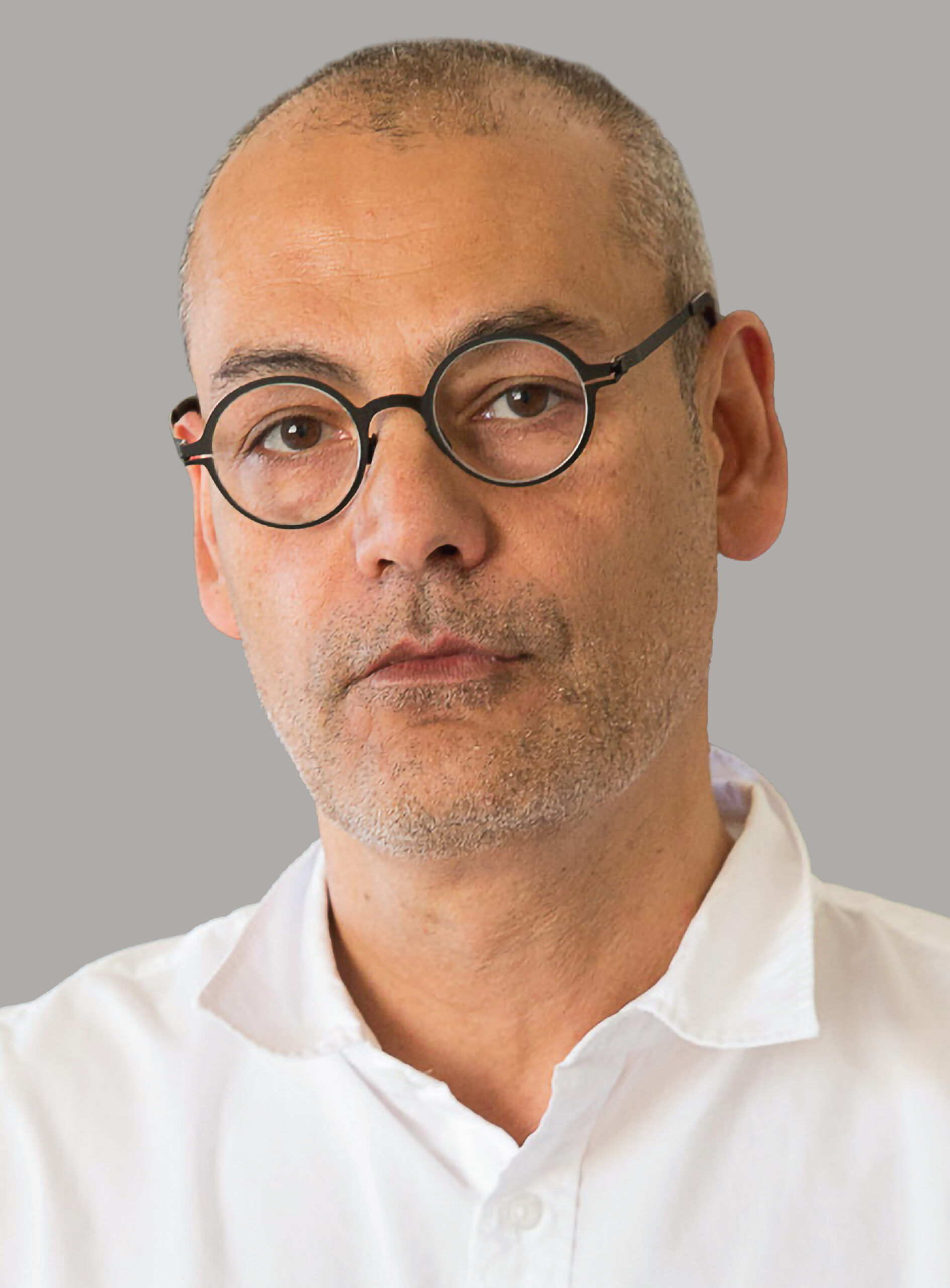
Architect Sahel Al Hiyari

Architect and Urban Designer
Born and educated in Jordan, Sahel Al Hiyari is an architect recognized for his innovative approach to blending contemporary design with traditional architectural elements. He studied Architecture and Fine Arts at the Rhode Island School of Design, earning a Bachelor’s degree, followed by a Master of Architecture from Harvard University’s Graduate School of Design. He later pursued post-graduate work and teaching at the University of Venice in Italy.
Since establishing his Amman-based architectural practice, the Office of Sahel Al Hiyari for Architecture (OSAA), he has led projects that integrate modern design with cultural heritage and natural landscapes. His firm works across disciplines, including urban design, interior and furniture design, and exhibition design. Al Hiyari approaches each site as an independent entity rather than part of the broader urban fabric, aiming to reintegrate lost traditional styles into Amman’s contemporary architectural scene.
After years of pioneering work, Al Hiyari has become known for projects that seamlessly incorporate buildings into their natural surroundings. Notable examples include Barghouti House and Saket House in Dabbouq, where he designed structures that respond to the landscape. In Barghouti House, he maintained the topography and preserved mature oak trees, while Saket House featured mechanical cladding to balance traditional aesthetics with functional benefits such as moisture control and reduced staining. His designs reflect a synergy between materiality, technique, and cultural context, creating architecture that fosters diversity, transformation, and a deep connection to place.
Beyond his architectural practice, Al Hiyari is deeply involved in architectural education. He has taught at "Arch Lab," a design studio organized by the Centre for the Study of the Built Environment (CSBE) in collaboration with the Aga Khan Award for Architecture. He has also led studios at Harvard University’s Graduate School of Design, the American University of Beirut, and lectured at Columbia University, ETH Zurich, and other institutions, passing on his expertise to future generations of architects.
He holds numerous accolades, including being the first architect to receive the Rolex Mentor and Protégé Arts Initiative award in 2011. His work has also been nominated for the Arab Architects Awards. Additionally, he has served as a jury member for the Aga Khan Award for Architecture and the Omrania | CSBE Student Award for Architectural Design, reinforcing his standing in the architectural community.
Al Hiyari’s work has been exhibited internationally, with publications featuring his designs in institutions such as The Khalid Shoman Foundation in Jordan and The Center for Architecture in New York. In addition to architecture, he is also a painter, with exhibitions in Jordan, Lebanon, and Italy, showcasing his multifaceted creative abilities.
Through his architectural vision and artistic practice, Sahel Al Hiyari has helped redefine Amman’s architectural landscape, bridging tradition and modernity while inspiring the next generation of architects in the Middle East and beyond.

Artist Dia al-Azzawi

Novelist and Arabic Literature Professor at the University of Algeria and Sorbonne University
Born and educated in Baghdad, Iraq, Artist Dia al-Azzawi is a pioneering multi-disciplinary artist whose work spans painting, sculpture, printmaking, and design. He studied architecture at Baghdad University in the early 1960s before earning a degree from the Baghdad Institute of Fine Arts in 1964. Influenced by Iraqi artistic pioneers such as Faeq Hassan and Hafidh al-Droubi, he developed a style that blends Arab heritage, folklore, and history, bridging traditional and contemporary artistic expressions.
In 1968, Artist Dia al-Azzawi authored Towards a New Vision, a manifesto responding to the decline of pan-Arabism, inspiring cultural initiatives such as the al-Wasiti Festival and the Union of Arab Artists. As a founding member of the New Vision Group, he played a key role in uniting Arab artists through shared cultural and ideological perspectives. Before relocating to London in 1976, al-Azzawi served as Director of the Iraqi Antiquities Department from 1968 to 1976. During this time, he held solo exhibitions at the Al Wasiti Gallery, Gallery One, and the Iraqi Artists’ Society. He was also the first Iraqi artist to exhibit abroad, showcasing his work at the Sultan Gallery in Kuwait and the Arslan Raad Gallery in Lebanon.
After moving to London, al-Azzawi continued to maintain strong ties to the Arab world. He became Artistic Director of the Iraqi Cultural Centre and served as editor of Ur and Funoon Arabiyyah journals. His artwork remained deeply connected to regional political struggles, exploring themes of displacement and injustice. His most notable work, Sabra and Shatila Massacre (1982–83), is a powerful tribute to Palestinian suffering and is housed in Tate Modern. Similarly, his series The Land of Sad Oranges was inspired by the writings of Palestinian author Ghassan Kanafani. His large-scale monochrome painting, My Broken Dream, documents the Iraqi people's suffering following the 2003 invasion through contemporary abstraction.
Al-Azzawi’s artwork is featured in major institutions, including the British Museum, the Library of Congress, Tate Modern, the V&A, and the Bibliothèque Nationale de France. His collections are also housed across the Arab world, including in Iraq, Jordan, Qatar, and the UAE.
Beyond his own artistic practice, Artist Dia al-Azzawi has played a key role in supporting other artists. He has published, collected, curated, and donated more than 100 unique books to public institutions. His ceramics studio in Amman nurtures emerging Arab talent, while his Arabic-language magazine Makou highlights Iraqi modern art. His leadership in international exhibitions and Third World graphic art movements underscores his commitment to artistic freedom and the Arab experience.
Artist Dia al-Azzawi has received numerous accolades, including the Dia al-Azzawi Prize for Public Art, the Nile Prize for Creativity, and an Honorary Doctorate of Arts from Coventry University. With a career spanning six decades, he remains a defining figure in modern Arab art and a custodian of its cultural heritage.
Award Recipients -2023
His Highness Sheikh Mohammed bin Rashid Al Maktoum announced the winners of the Great Arab Minds Award in its first edition. The winners are Doctor Hani Najm recipient of the Great Arab Minds in Medicine, Professor Fadel Adib recipient of the Great Arab Minds in Engineering and Technology, Doctor Mohamed El-Erian recipient of the Award in Economics, Professor Niveen Khashab recipient of the award in Natural Sciences, and Lina Ghotmeh in the field of Architecture and Design, and lastly, Professor Waciny Laredj recipient of the award in Literature and Arts.
The Great Arab Minds initiative aims to honor outstanding individuals in the Arab world and highlight their supportive roles in reigniting the Arab region's civilization drive. The initiative provides support to Arab Great Minds to enhance their outreach and their achievements locally, regionally, and globally.
Download this document to learn more about the Great Arab Minds 2023 award recipients.

Dr. Hani Najm

Chairman of Pediatric and Congenital Heart Surgery, Cleveland Clinic, Ohio
Born and educated in Riyadh, Saudi Arabia, outstanding grades in high school. Graduated from King Saud University medical school 1985. Trained in general surgery, cardiothoracic surgery and pediatric congenital heart surgery in Canada. Returned to Riyadh in 1999 and worked for 17 years until recruited to the Cleveland Clinic as chair of Pediatric and Adult Congenital heart surgery on 2016.
After 17 years of developing the premier Pediatric Heart Center at King Abdulaziz Medical Center in Riyadh Saudi Arabia, Dr. Najm joined the Cleveland Clinic on January 1, 2016 as the chair of pediatric and congenital heart surgery. Dr. Najm is considered an expert in his field of congenital heart surgery as he has personally performed more than 10,000 surgical cases on newborns, children, and adults with the most complex heart disease.
Dr. Najm came to the Cleveland Clinic with not only his clinical expertise in pediatric and congenital heart surgery, but also is the past president of the Saudi Heart Association, Editor – in – Chief, Journal of Saudi Heart Association, Editorial Board Member Saudi Medical Journal and Associate Professor of King Abdulaziz University for Health Sciences.
Dr. Najm holds numerous memberships in national and international professional organizations and currently is a Trustee of the American College of Cardiology.
Dr. Najm is an international lecturer in the field of congenital heart surgery and a collaborator in multiple research projects including a multi-center database as a valuable tool for evidence-based practices in congenital heart disease.

Professor Fadel Adib

Associate Professor at the Massachusetts Institute of Technology (MIT)
Born and raised in Tripoli, Lebanon, Fadel Adib is an Associate Professor in the MIT Media Lab and the Department of Electrical Engineering and Computer Science. He is the founding director of the Signal Kinetics group which invents wireless and sensor technologies for networking, health monitoring, robotics, and ocean IoT. He is also the founder & CEO of Cartesian Systems, a spinoff from his lab that focuses on mapping indoor environments using wireless signals.
Fadel earned his Bachelor’s from the American University of Beirut (2011), which named him a Distinguished Young Alumnus in 2017. He was awarded a presidential fellowship to pursue his graduate studies at MIT, where he received his Master’s (2013) and Ph.D. (2016), winning the best Master’s and best Ph.D. thesis awards in Computer Science at MIT. In 2018, Adib’s Ph.D. thesis won the ACM SIGMOBILE Dissertation Award, recognizing it as the world’s best doctoral dissertation in wireless networks and mobile computing. His Ph.D. work on seeing through walls was named as one of the 50 ways MIT has transformed computer science over the past 50 years. This work has been commercialized by a startup, Emerald Innovations, whose devices have already been deployed in hundreds of homes and are being used by doctors at major US hospitals to monitor patients with Alzheimer’s, Parkinson’s, Multiple Sclerosis, and COVID-19.
Fadel has been named to Technology Review’s list of the world's top 35 innovators under 35 in 2014 and to Forbes’ list of 30 under 30 in 2015. He has also received prestigious faculty honors including the CAREER Award (2019) from the U.S. National Science Foundation, the Young Investigator Award (2019) and the Early Career Grant (2020) from the Office of Naval Research, the Sloan Research Fellowship (2021), the Google Faculty Research Award (2017), and the ACM SIGMOBILE Rockstar Award (2022). His research has won awards for best papers, demos, and highlights at premier academic venues (SIGCOMM, MobiCom, CHI, CACM, Nature Electronics, Nature Communications). Fadel has published over 80 papers and patents.

Professor Niveen M. Khashab

Associate Dean of Physical Science and Engineering Division and Professor of Chemistry at King Abdullah University of Science and Technology, Kingdom of Saudi Arabia
Professor Niveen Khashab, Associate Dean of Physical Sciences and Engineering and Program Chair of the Chemistry Department at King Abdullah University of Science and Technology (KAUST) in the kingdom of Saudi Arabia.
She heads the Smart Hybrid Materials (SHMs) in Saudi Arabia, bringing extensive expertise as a researcher specializing in the development of organic chemistry for smart nanomaterials. She holds a Bachelor's degree from the American University in Beirut (AUB) and Master's and Doctoral degrees from the University of Florida.
In her multifaceted career, Professor Khashab has been part of the Advanced Membranes and Porous Materials Research Center and served on the editorial board of the top 10 scientific journals. Under the guidance of Nobel Prize winner Fraser Stoddart, she has made significant contributions to advancing the fields of chemistry, bioengineering, and biology. Her laboratory work focuses on synthesizing and applying nanomaterials for medical, pharmaceutical, industrial, and environmental purposes.
With over 275 scientific papers to her credit, her groundbreaking research has profoundly impacted organic chemistry and nanoscience, particularly in the field of nanomedicine, where she developed innovative nanoparticles that self-decompose upon exposure to light. Notably, her research and studies have resulted in the creation of drug delivery systems for proteins and genetic materials (biological materials) in a safe and accurate manner, making significant contributions to nanomedicine.
In addition to her notable achievements that have earned her acclaim in natural sciences, her research has opened new horizons in medical sensing, drug delivery, and therapeutic treatments. Furthermore, she has pioneered developments in industrial nanocompounds, coatings, and environmentally sustainable agricultural solutions, promising transformative advancements for human health and well-being.

Dr. Mohamed El Erian

President of Queens' College, Cambridge University
An economist with an undergraduate degree from Queens' and a DPhil from Oxford, Mohamed El-Erian is President of Queens’ College, Cambridge University. He previously served as chief executive officer and co-chief investment officer of Pimco, Deputy Director at the International Monetary Fund, Chair of President Obama’s Global Development Council and President of Harvard Management Company.
Throughout his career, Dr. El-Erian has been involved with universities and think tanks around the world, including his roles at the University of Pennsylvania as the Rene M. Kern Professor of Practice at the Wharton School of and Senior Global Fellow at the Lauder Institute.
After years of dedicated learning and professional experience, he emerged an outstanding consultant providing services to prestigious financial institutions such as Allianz and Gramercy Funds Management. Additionally, he has been an active contributor to several non-profit organizations, including the National Bureau of Economic Research.
Dr. Mohamed El-Erian's impact on the field of economics extends beyond his corporate and institutional work. His written works and research have yielded a wealth of advice, insights, and economic concepts, establishing them as key references in economics, finance, and business. Among his well-known books are 'When Markets Collide' (2008), 'The Only Game in Town' (2016), and his latest collaborative work, 'Permacrisis: A Plan to Fix a Fractured World' co-authored with esteemed economic experts. Furthermore, Dr. Mohamed El-Erian is recognized as a prominent contributor and editor for Financial Times and Bloomberg. Owing to his intellectual prowess, he has been named one of the 'Top 100 Global Thinkers' for four consecutive years by 'Foreign Policy' magazine.
In addition to presenting innovative theories on global economic matters, Dr. El-Erian is widely acknowledged as a leading expert in the realm of global capital markets. He is notably credited with introducing the concept of the "new normal", a term characterizing the state of the global economy post the global financial crisis.

Architect Lina Ghotmeh

An Architecture, and Founder of Lina Ghotmeh - Architecture, Paris
A pioneering architect, Lina Ghotmeh leads her architectural practice in Paris, France. She graduated from the American University of Beirut (AUB) and holds a Master's in Landscape Architecture from the School of Environmental Design at the University of Georgia in the USA.
Ghotmeh has served in significant roles, including as an Associate Professor at the École Spéciale d’Architecture, and has given inspiring lectures at prestigious institutions such as the Royal College of Art, the Royal Academy of Arts, the Bartlett School of Architecture, and the Museum of Architecture and Heritage in France.
Architect Lina Ghotmeh employs a unique approach known as 'Archaeology of the Future,' ensuring that all her projects are evolved and practical outcomes of her research on coexisting with nature and the surrounding environment, revealing the essence of the raw materials used in their construction. Among her notable works is a building near the industrial port in Beirut, her birthplace, designed using local materials that resonate with the surrounding environment, and incorporating the results of her innovative research and techniques in architecture based on studies of the region's architectural history. Furthermore, she has conducted several studies and research projects focused on the relationship between architecture and the environment, the use of natural and local materials suitable for projects in various settings, and the study of historical architecture in these areas, forming the basis for designing modern and sustainable projects.
Committed to environmental stewardship, her various projects reflect a dedication to building sustainable and healthier communities, seamlessly integrating her academic knowledge with practical application to make a profound impact on the field.
Recognized as a humanist architect and renowned for her bold and contemporary designs, Lina Ghotmeh has expertly managed over 65 global architectural projects, including worldwide museums, exhibitions, and cultural designs.

Professor Waciny Laredj

Novelist and Arabic Literature Professor at the University of Algeria and Sorbonne University
A distinguished professor of Arabic literature at both the University of Algiers and Sorbonne University in Paris Waciny Laredj is an acclaimed novelist and academic. He completed his undergraduate studies at the Faculty of Literature,Arts and Foreign Languages at the University of Oran Algeria and earned his master's degree in Arabic Novel Trends and a Ph.D. in Hero Theory in the Arabic Novel from Damascus University.
Additionally he holds a Ph.D. from Sorbonne University specializing in the Language of the Arabic Novel. Professor Laredj leads the Arabic Track within the Department of Applied Languages at Sorbonne University's Faculty of Languages, Arts and Civilizations of Foreign Societies. He has served as a Chair Professor at the University of Algiers since 1985 and was previously a Chair Professor at Setif University.
Having authored more than 30 novels Professor Laredj's works profoundly engage with the cultural and social aspects of Arab communities establishing connections with universal human values and the diversity of global cultures. His literary work translated into over 20 languages has been adopted by universities worldwide and adapted into various theatrical and film productions.
Notably his innovative approach to novel writing has introduced new linguistic expressions significantly expanding the horizons of Arab narrative and imaginative storytelling. With his extensive academic background Professor Laredj has been instrumental in guiding research teams in studies related to the Arabic novel narrative styles and literary practices. He played a key role in founding and managing the Terminology Laboratory at the University of Algiers and Sorbonne University overseeing numerous narrative and translation research projects.
Professor Laredj's literary portfolio aligns with a modern school of thought characterized by its relentless pursuit of evolving expressive methods leaving a lasting mark on both Algerian and Arabic literature. His unique writing style masterfully blends myth with reality transforming mythological symbols into tangible narratives. Furthermore he has innovated in novel writing by integrating artistic elements like music and painting into his distinctive storytelling approach.

